

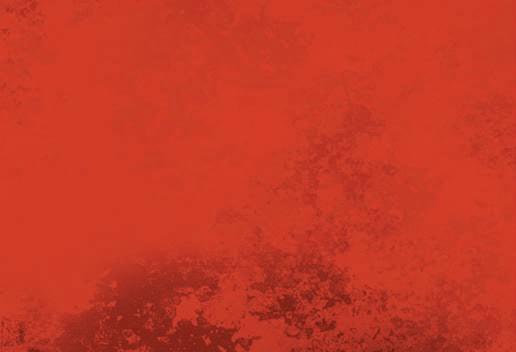

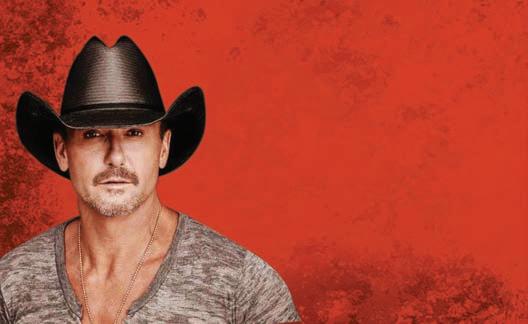

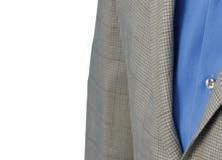



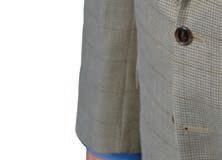




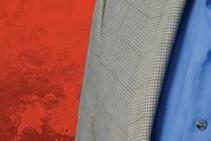







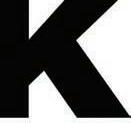
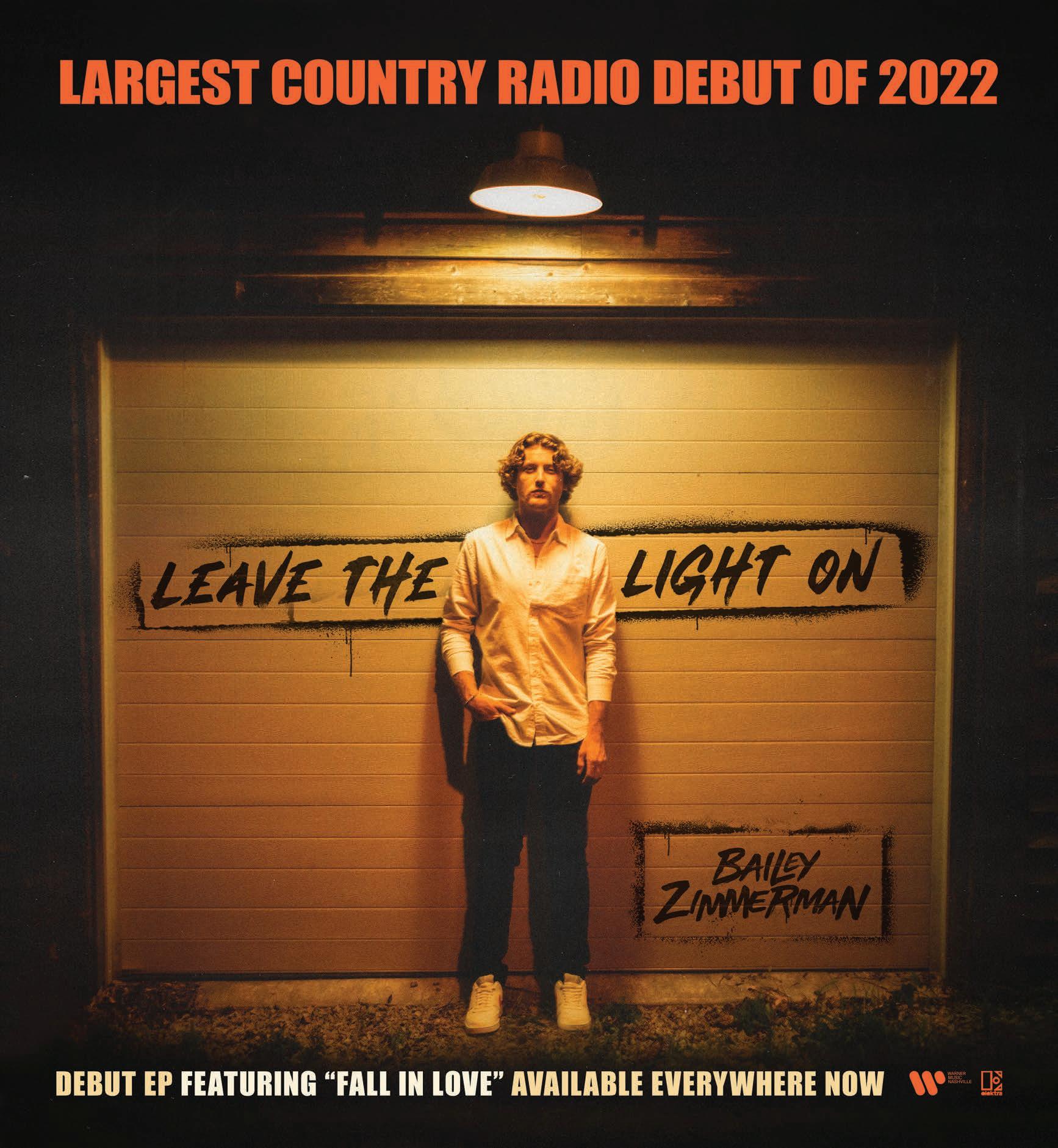
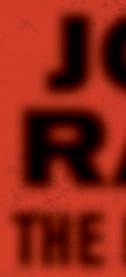
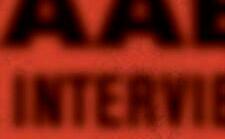

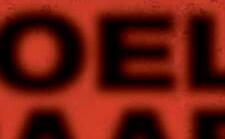















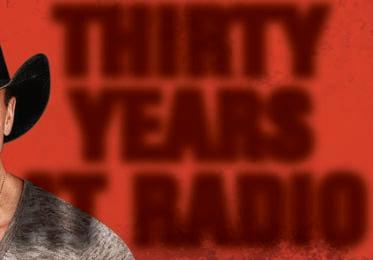
JOEL RAAB THE INTERVIEW ESPO LOOKS AHEAD 31 POWERTIM M C GRAW THIRTY YEARS AT RADIO

T he reader-voted Power 31 – in Airplay/Exposure and Artists/Music categories – returns with a daunting proposition: Given a radio station to program, who are the on-air personalities? Past or present, real or imaginary, the no-boundaries answers run the gamut.
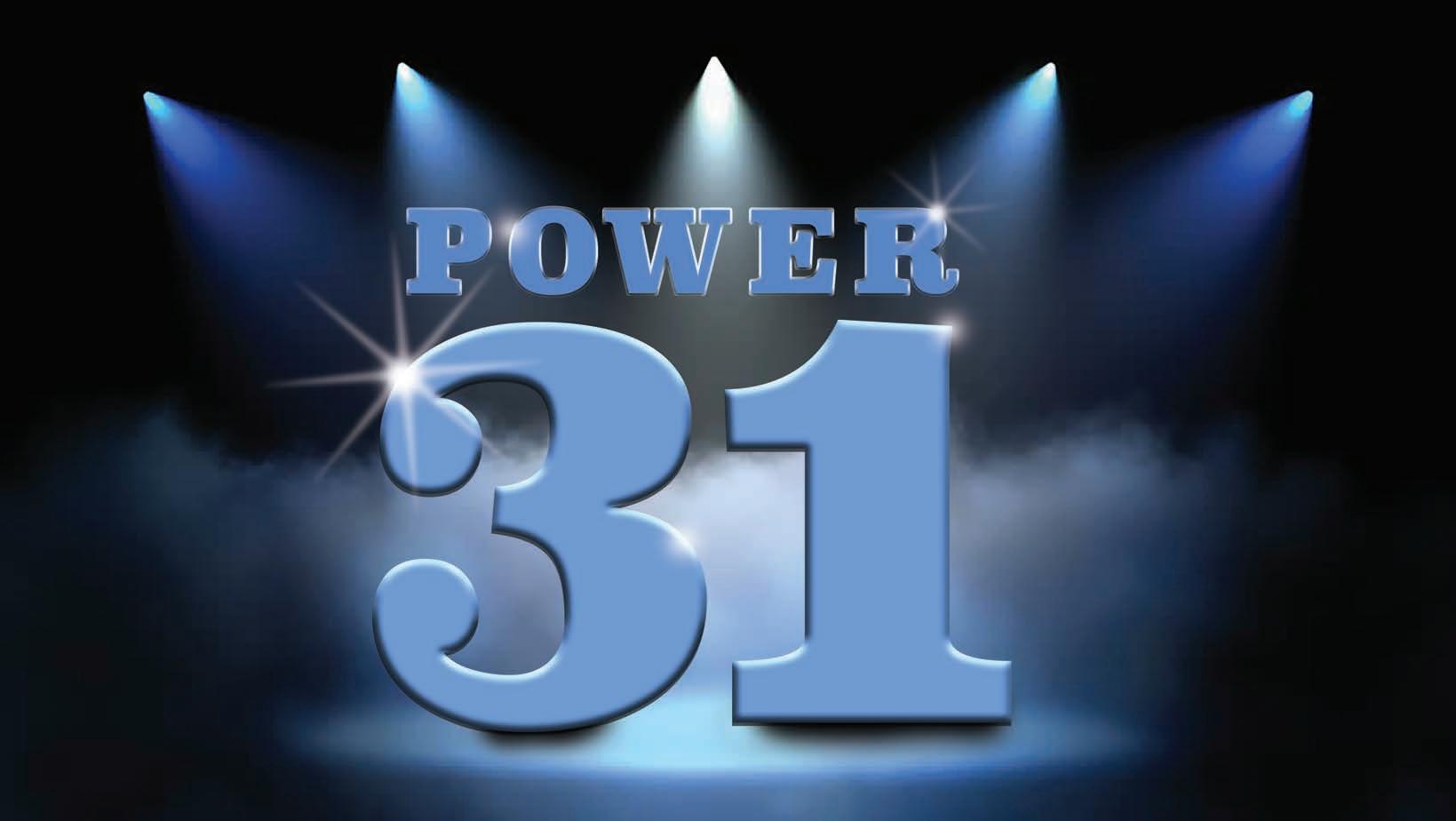
& MUSIC
1RoyceRisserUMG/Nashville EVP/Promotion
Morning Show: Van Haze and Miranda McDonald
Tumbleweed And The Chimp Morning Zoo Crew . The whole purpose is to facilitate bets on how long they last before being kicked off the air. The line is one week, and I’ll take the under for all bets. This will require insurance for FCC fines.
I’d take afternoons. I’ve never been on the air but have always been told that Royce Risser is obviously a radio name (which, of course, it’s not). I’d probably need someone to help –would be a good co-host and mentor, right? I’d have ins as the guy with all the gossip in Nashville, and Shindler would have a daily segment telling stories of working records in the ‘70s. This would also require FCC insurance.
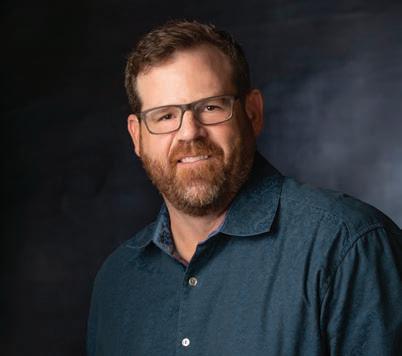
Evenings: Scott “Frogman” Donato and Dandalion (Gwyneth Seese She was a big influence on him and so many people over the years. I sure miss her and know Scott would absolutely love the opportunity to work with a legend. Overnights: Rod Phillips, for sure.
2Rod Phillips
iHeartMediaEVP/Country Programming Strategy
Morning drive, The Bobby Bones Show syndicated Country radio show of all time will start my Laurie DeYoung if she promises to do the morning show version of her brand. We’ll go back-to-back morning shows! PM drive, George McFly to do it Chicago-style and make it all rhyme. Nights, if she promises to cancel her Costa Rica plans and stay in the iHeartCountry studio. Best wishes, Cindy! You are the best.Overnights, we’re bringing Gator Harrison back on the air just so he can win every Country Aircheck award and piss off everyone else.Weekends,
3
Audacy VP/Country
In mornings, Detroit morning man (WOMC, CKLW-AM, WKNR-AM, WXYZ-AM, WCZY), who is beyond a legend. He raised millions for the Salvation Army and the local children’s hospital single handedly. PBS just did a documentary on his amazing career with accolades from Tim Allen and Ted Koppel (who he trained in college). His cast included his daughter Rebekah Rhodes, Gene Taylor others. He’s a Radio Hall of Famer who personally booked the Beatles to play a gig in the ‘60s.
In middays, Gerry House & the House Foundation Famer and Nashville’s No. 1 all-time morning talent.Since Dick is doing mornings, we’re going to dominate with Gerry in the midday. In afternoons, “Broadway Bill” Lee, the WCBS/New York legend and incoming Radio Hall of Famer. Is there anyone who can talk up a record like Broadway Bill? At night, John “Records” Landecker of WLS-AM/Chicago. He inspired legions of radio talent and was famous for the nightly Yeah, he’s doing the countdown on weekends, but we want every single night with Bob at the helm. Finally, weekends are WYCD/Detroit – CMA, ACM, Marconi winners and drive time dominators.
Mike Dungan
UMG/Nashville Chairman/CEO
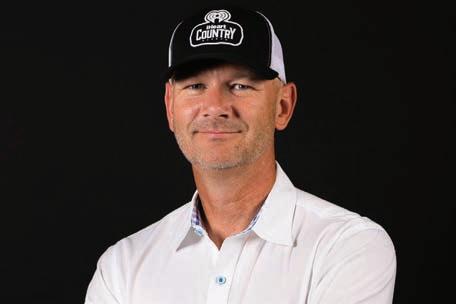
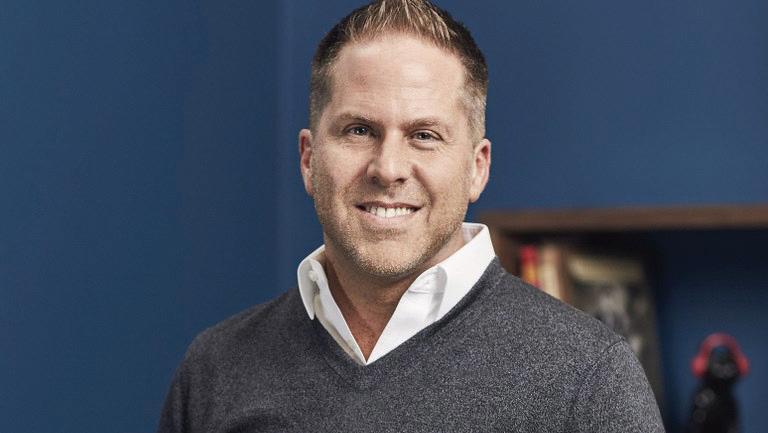
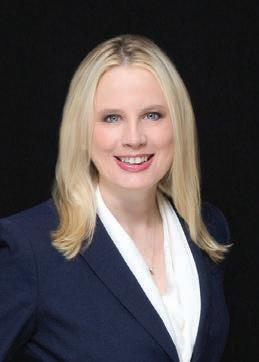
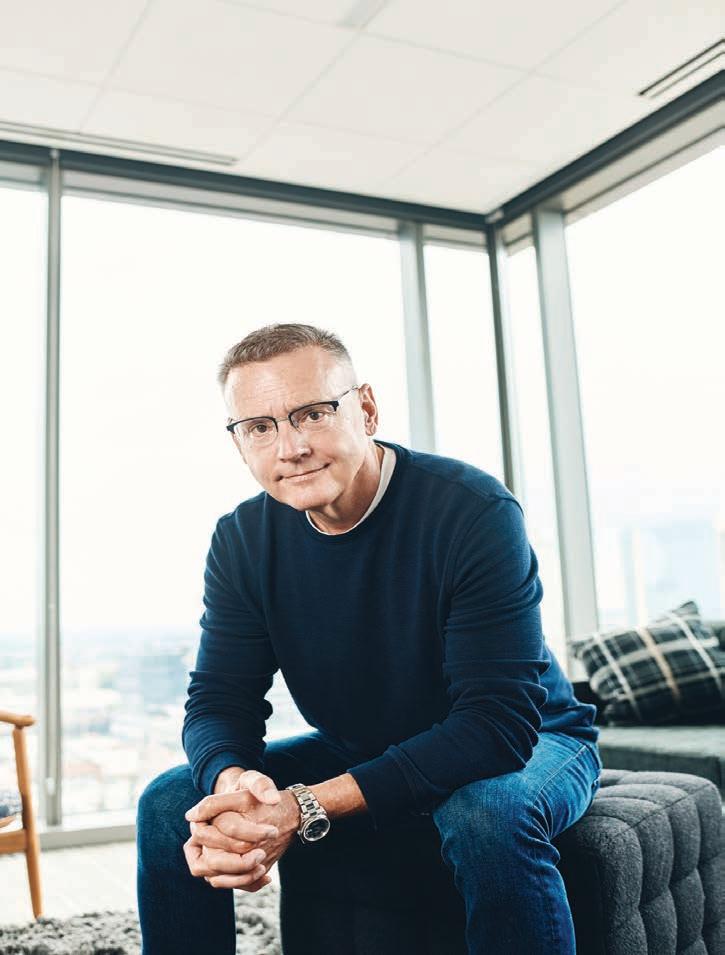
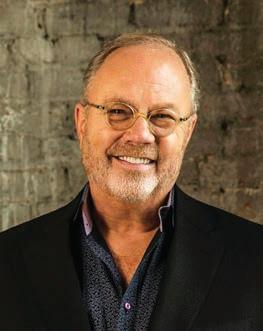
KFKF/Kansas City’s Dale Carter in mornings. Denton from WEBN/Cincinnati in the ‘70s doing middays. Lisa Dent in afternoons, Coyote Calhoun at night and SiriusXM’s Steven Van Zandt for overnights.
Scott Borchetta
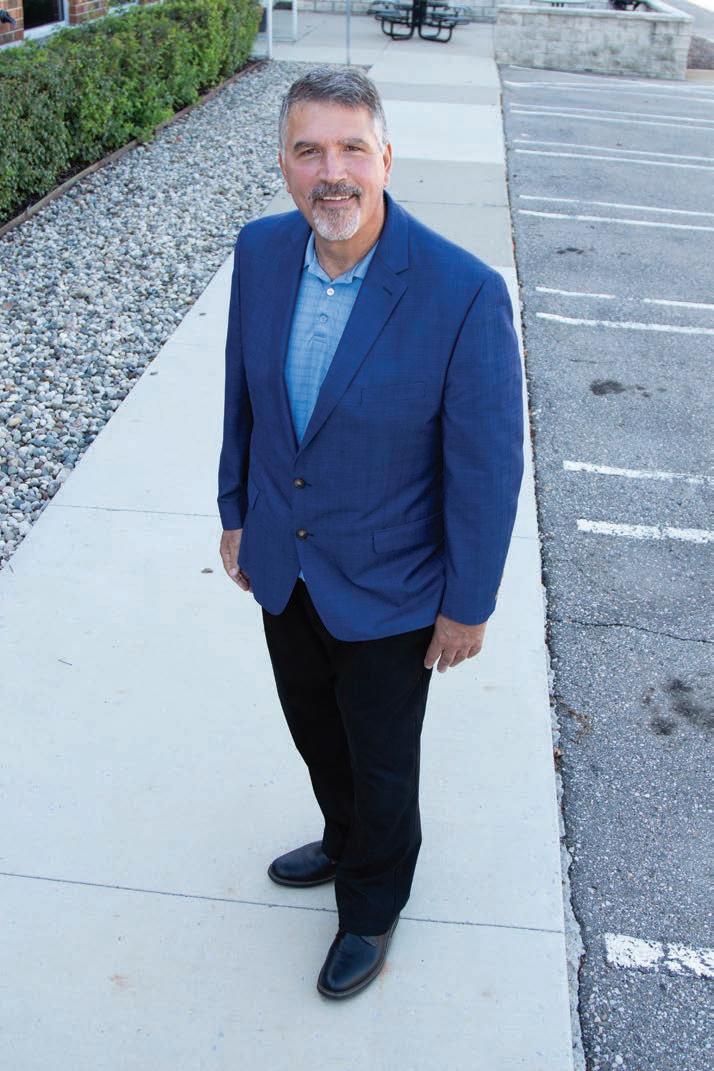
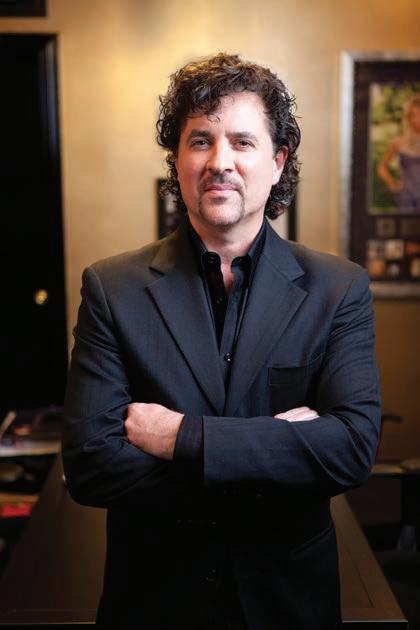

Big Machine Label Group President/CEO
My earliest radio DNA is ’60s Boss Radio and ’70s Los Angeles FM Rock. From 6-10am, I’d have the biggest superstars of all-time Frazier Smith from KMET. KHJ-AM’s and the man himself, my opinion, and it ought to be yours. From 10am-3pm, – the clashing of two cultures. Afternoons are two of the coolest ever to crack B. Mitchell Reed. If the radio wasn’t on it was complete FOMO ... Rockline! The is 7pm-midnight. No drugs needed; tune in and drop out. Overnights is Rodney
. Would somebody please bring him a Tab?! And please play the latest record by X and the Ramones. Saturday would be whatever Top 40 my mom was playing while we were running would be in here somewhere, ’s American Country Dick Haynes At The Reigns Charlie Kendall with Metal Shop. Turn
with two of the most welland
: When you settle in at work and need a soothing, encouraging voice to make it through your midday, it’s “People will forget what you said, people will forget what you did, but people will never forget how you made them
. Forget the frustrations of your workday and the commute home by tuning in and ! “Gooooood Afternoon, America!” Evenings: No peanut butter nights, just Jelly. He’s the new Delilah. Nobody speaks to and connects with the daily struggles of your audience better than the people’s . He will have them laughing, crying, loving and dealing with the leaving five nights a week. Kennedy at nights, your natural caffeine. Who better to keep you awake than a volatile, moody, insane but hilarious former radio and records executive?
PAGE 3 • OCTOBER 2022
AIRPLAY ARTISTS
Sony/Nashville Chairman/CEO
Kristen Williams Warner Music SVP/Radio
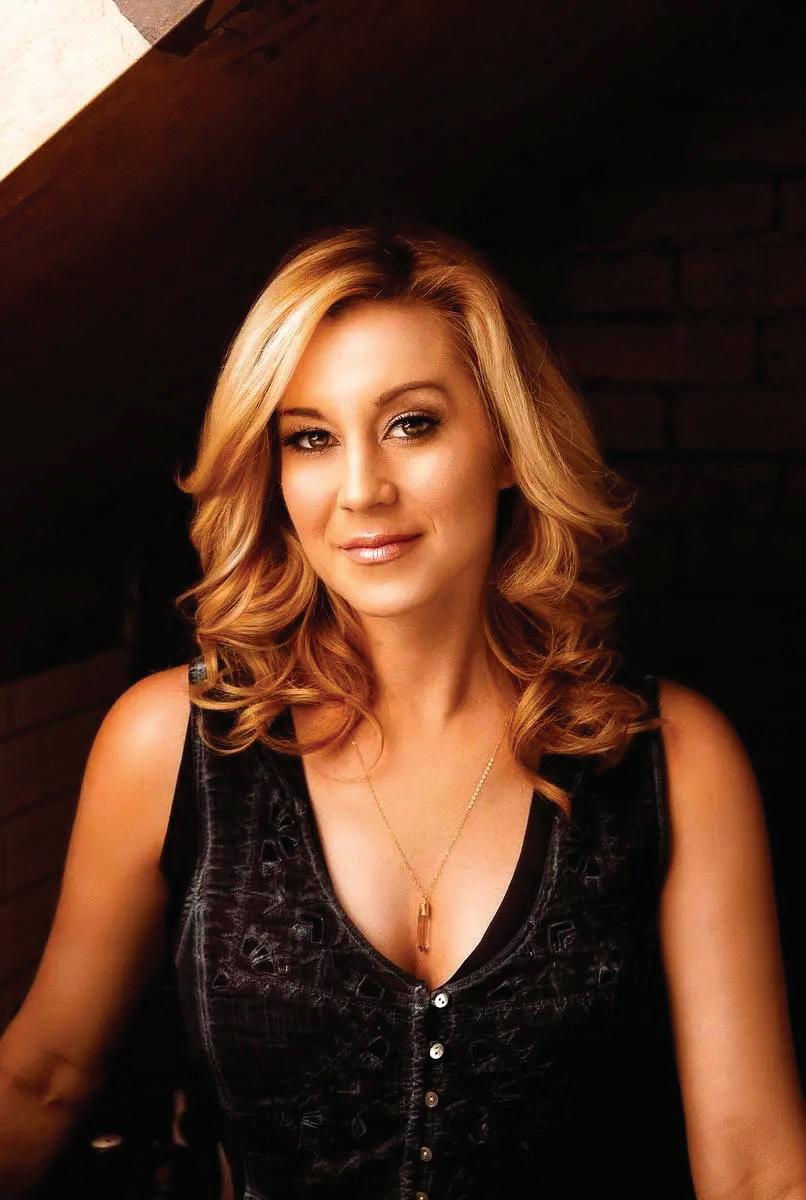
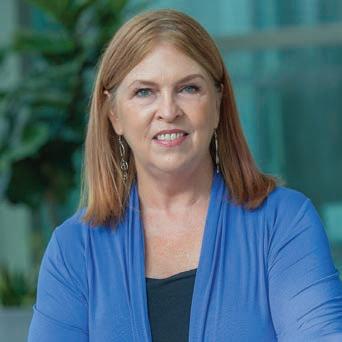

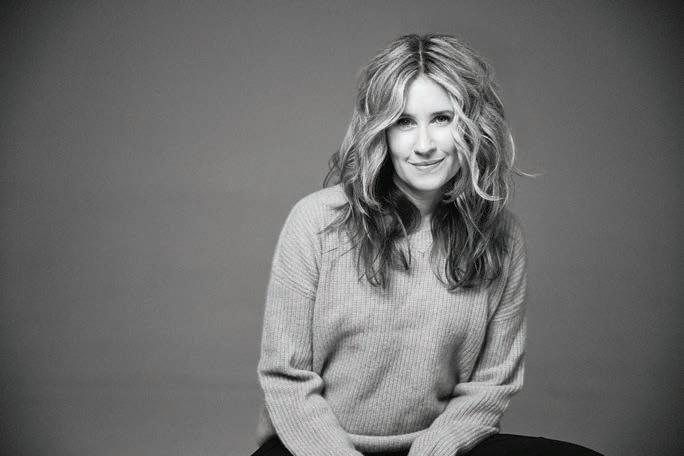
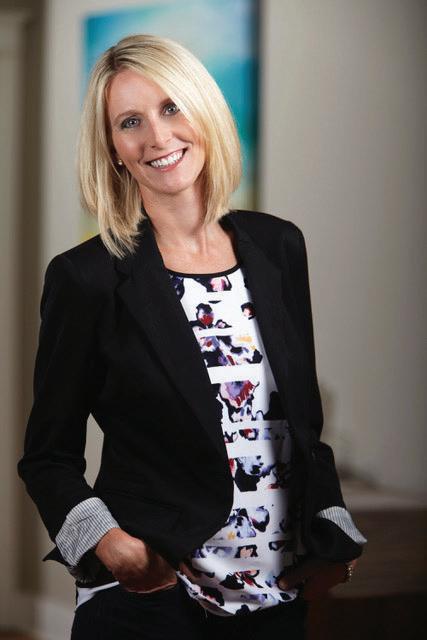
Blake Shelton. Start your day the Shelton Way with “The Voice” of the nation.
. Bringing the west to the rest,
. Afternoons: Ashley McBryde
Your afternoon ride with Ashley McBryde. Evenings: Dan + . The perfect way to end your day. Overnights: DJ Otto (no one is listening anyway).
Sony Music EVP/Promotion & Artist Development

Don Imus put together a tremendous team and always had great content whether it be music, politics, or sports. One of the most well-rounded, entertaining morning shows I’ve ever , the consummate pro at entertaining the radio audience. Again, music and sports! . Most people won’t know this name, but David was an Arkansas radio legend. Super smooth delivery and a super human being who I had the pleasure of working with for a few short years. Nights: Wolfman Jack
from WXYZ-AM and CKLW-AM/Detroit. I grew up listening to him – a real model to follow. Funny, community-oriented, an icon in the market. In middays, JP McCarthy. He did mornings forever and had a daily program 12:15pm to 1pm on WJR-AM/Detroit. I was plucked from the audience one day to be interviewed when my high school class visited the show. I told him I was interested in radio, and when I later got into the business, he sent me a note congratulating me. I wish I was that nice and considerate; maybe it’s not too late for me.
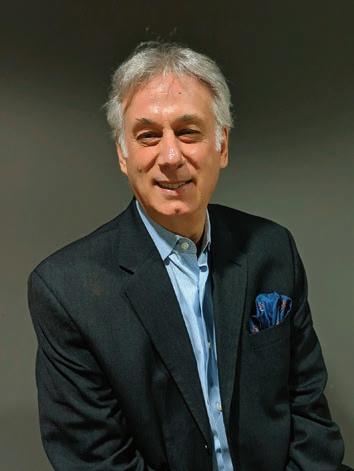
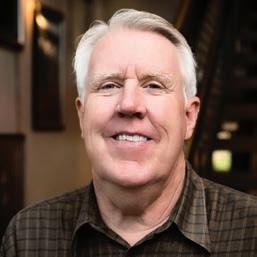
In afternoons, Del DeMontreux from WHN-AM/New York. I worked with Del, who was the perfect afternoon host for New York City – tight and bright. Had a great “new yawk” lilt to his voice and loved the city. In evenings, either Johnny Williams or Tom Clay from CKLW-AM. It wasn’t radio that they taught me – they were part of the music that built my foundation for loving music today. Honorable mention to Detroit
Dave Shafer and Robin Seymour. So many in radio were blessed to grow up in cities that had legendary stations with the best talent. I can still hear how they brought the music and the city to life for a kid listening to radio 10 hours a day, just like today.
in mornings. The most local, hilarious morning man ever. If you didn’t live in Nashville, you didn’t get it, but if you did, no one compares. A close second is Larry Stevens from WHHY/Montgomery, AL. He had so many offers from major markets but loved his hometown and never left. How do you not respect that? In middays, WLWI/Montgomery’s Don Day, the most comfortable on-air personality ever and a wonderful, honest person. No ego, no airs about him. If he was on a remote, you never had to come up to him, he came to you! And in afternoons, , the most misunderstood and one of the most talented jocks I ever worked with. He is special.
8
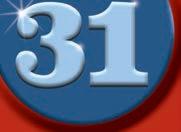
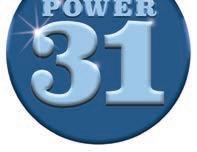
Stacy Blythe
Big Loud SVP/Promotion

Mornings: Howard Stern. My husband listens to him more than he listens to me. If Howard says it, it’s the bible. And I agree, he is the best interviewer. Middays: Diego’s John Flint and Tammy Lee. They were in Madison when I started in the business, and I’ve always admired their connection with listeners. They set the bar for me, and I still stream their show often (you’re welcome, Kevin Callahan).
Afternoon Drive: Jimmy Roach. I grew up listening to WDSY/Pittsburgh, and his voice will always remind me of home. Bruce Logan, because I would like him to lose as much sleep as he causes me to lose. Weekends: Bob Kingsley. Is there any other voice you should hear on weekends? I would give anything to hear his voice on the countdown again on the way to church.
9

Kurt Johnson
Townsquare SVP/Content & Programming



Afternoons: Lauren “LT” Thomas. Nights: “Slammin’” Jimmy Harnen. I’d listen to them all day… wait, I already do! Or ... Mornings: Johnny Fever & Les Nessman (WKRP In Cincinnati). Middays: Shirlee Kenyon (Dolly Parton’s character in Straight Talk). Afternoons: Frasier Crane (Frasier). Nights: Venus Flytrap (WKRP In Cincinnati).
10
AM Drive: John “Records” Landecker & grew up listening to WLS/Chicago, and John was a major influence in my decision to be in radio. His Americana Panorama bits were always entertaining. Kellie is one of the funniest, most passionate people I know in observing life, love, and music. I hear the two of them being a perfect balance of real life and crazy fun. Middays: Laurie . This woman knows how to connect with listeners, artists and the community with her unique finesse, flair and style. Every daypart needs to be as strong as a morning show, and Laurie will make middays come to . Another major influence from the early days of WLS. Clever, funny, and memorable whenever he cracked the mic.
11
Byron Kennedy will either help those hard-working, sleep-deprived essential workers make it until the sun comes up or encourage them to do what he did: say “fuck it” and run headlong into a new career with hours they prefer. Warning: FCC fines likely to be incurred with this hire along with an increase in quiet-quitting.
6
Seth England Big Loud Partner/CEO
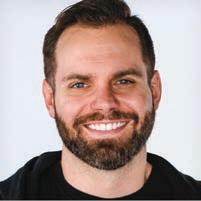
Gerry House, the GOAT; The Warren Brothers, for obvious reasons, but the FCC stopped our fun; and Craig Wiseman: the one, the only. Couldn’t imagine who would get a word in with these four men on one radio station.
Gregg Swedberg
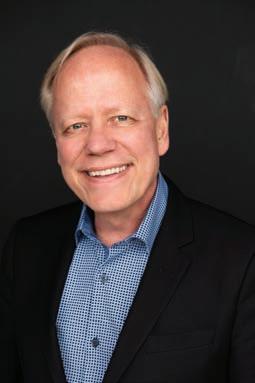
iHeartMedia/Minneapolis SVP/Programming
Mornings would be a show I could have put together on K102 but didn’t. Stupid me. I’d pair my current morning guy Chris Carr with John Hines 6-9am. Hines is in the Minnesota Broadcasters Hall of Fame; Carr will be. I’d have Gino “The New Guy” as their stunt guy/sidekick. Gino created the
Shane McAnally SmackSongs CEO Monument Records Co-President
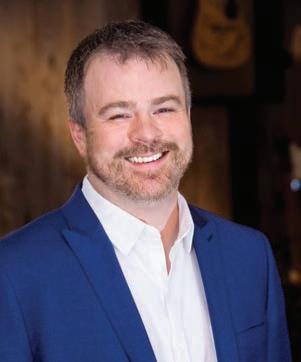
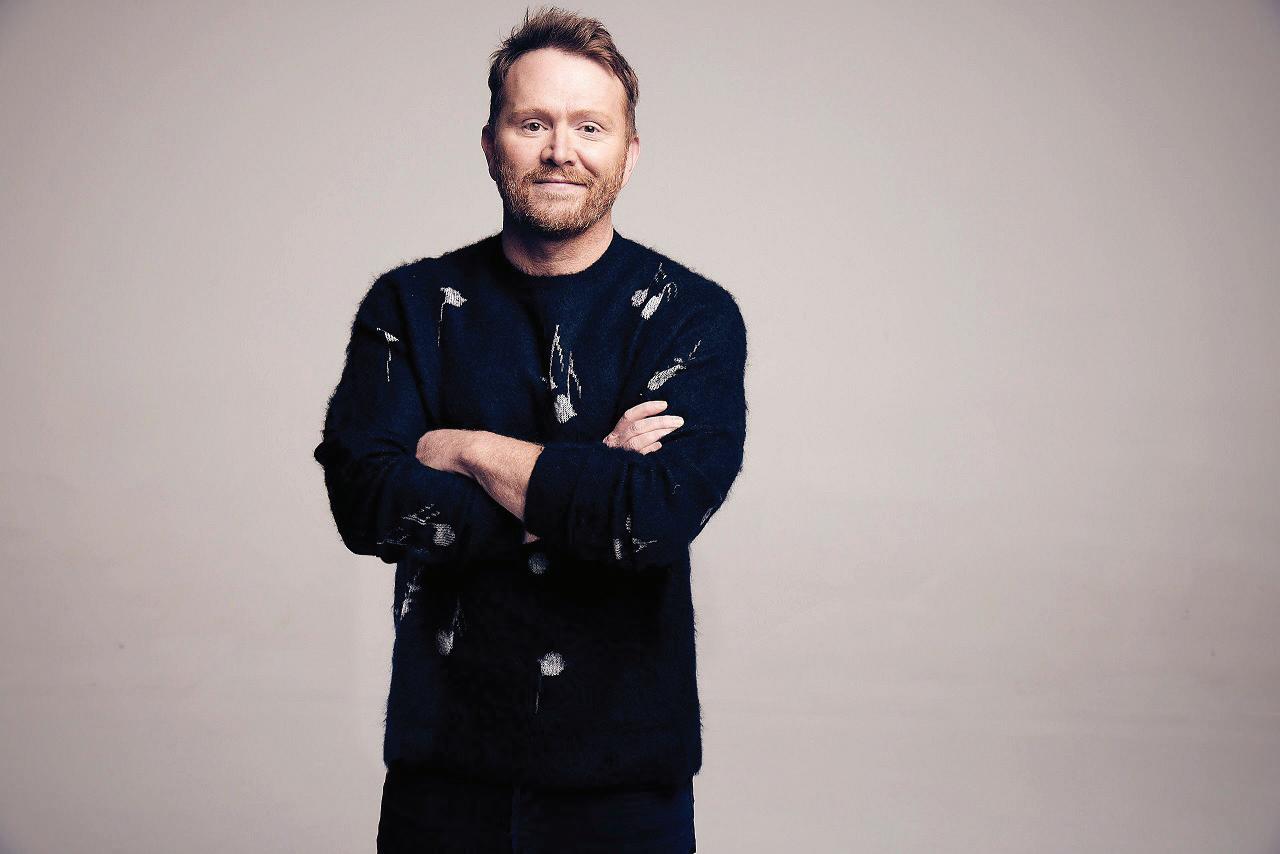
I love the idea of songwriters as DJs.
McKenna have so much knowledge, and songwriters are naturally funny. I don’t think anyone could be funnier than Rhett Akins. I’d also put myself on the air. I worked nights at then-KYXS/Fort Worth. It’s now KFWR The Ranch. At 9pm we went to automation and I had to set up the reelto-reels to play all night long. If the music stopped in the middle of the night, even though I was a sophomore in high school, I’d get the call to go fix it. But I still have a secret dream of being Gerry House.
Some of my favorites through the years:
Stoney Richards … why is he not in the Country Radio Hall of Fame? And Wilson has one of the
Ben Vaughn Warner/Chappell President/CEO
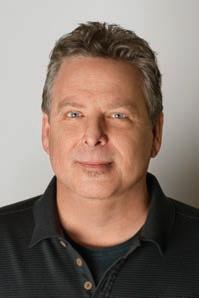
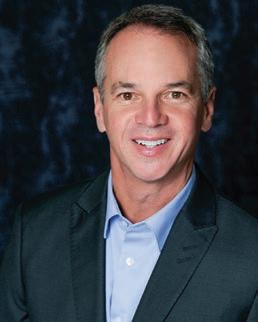
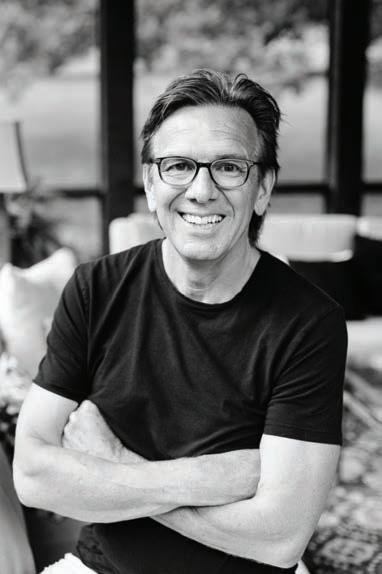
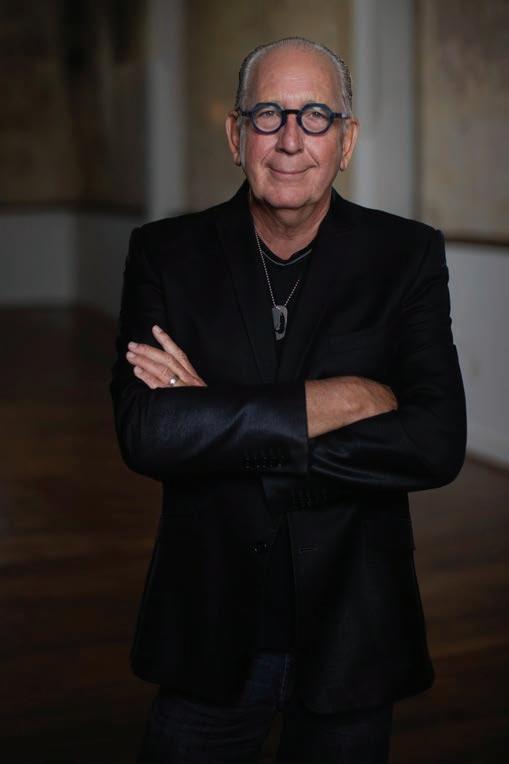
My fi rst memory of seeing a DJ goes back American Graffi ti with, of course, Wolfman . I remember being so interested in that being a job – the booth, the mic, the voiceovers you see in the fi lm. Fast forward to high school and I had the opportunity to be the weekend DJ at my local country station, WMSK/Morganfi eld, KY. So, my “Ultimate On-Air Lineup” would be the men that worked at that station during that time I was trying to learn from. Don boomed even when he was off-air. His voice leaped out of your car speakers. And, of course, the morning jock is . Very smooth and could make you feel like you were talking to an old friend every day. They taught me so much and their voices guided that small station, giving the folks in KY that sweet ‘90s
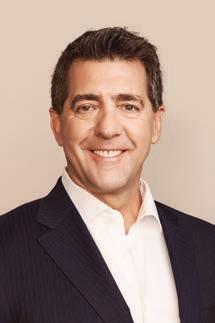
PAGE 4 • OCTOBER 2022
Mornings: The Royce & Katie Show with Royce Risser & Katie Dean. Middays: “James Boo” Marsh
Becky Brenner Albright & O’Malley & Brenner Consulting Partner
Betty White and Mr. Rogers to begin and end their day with some social commentary
Kellie Pickler
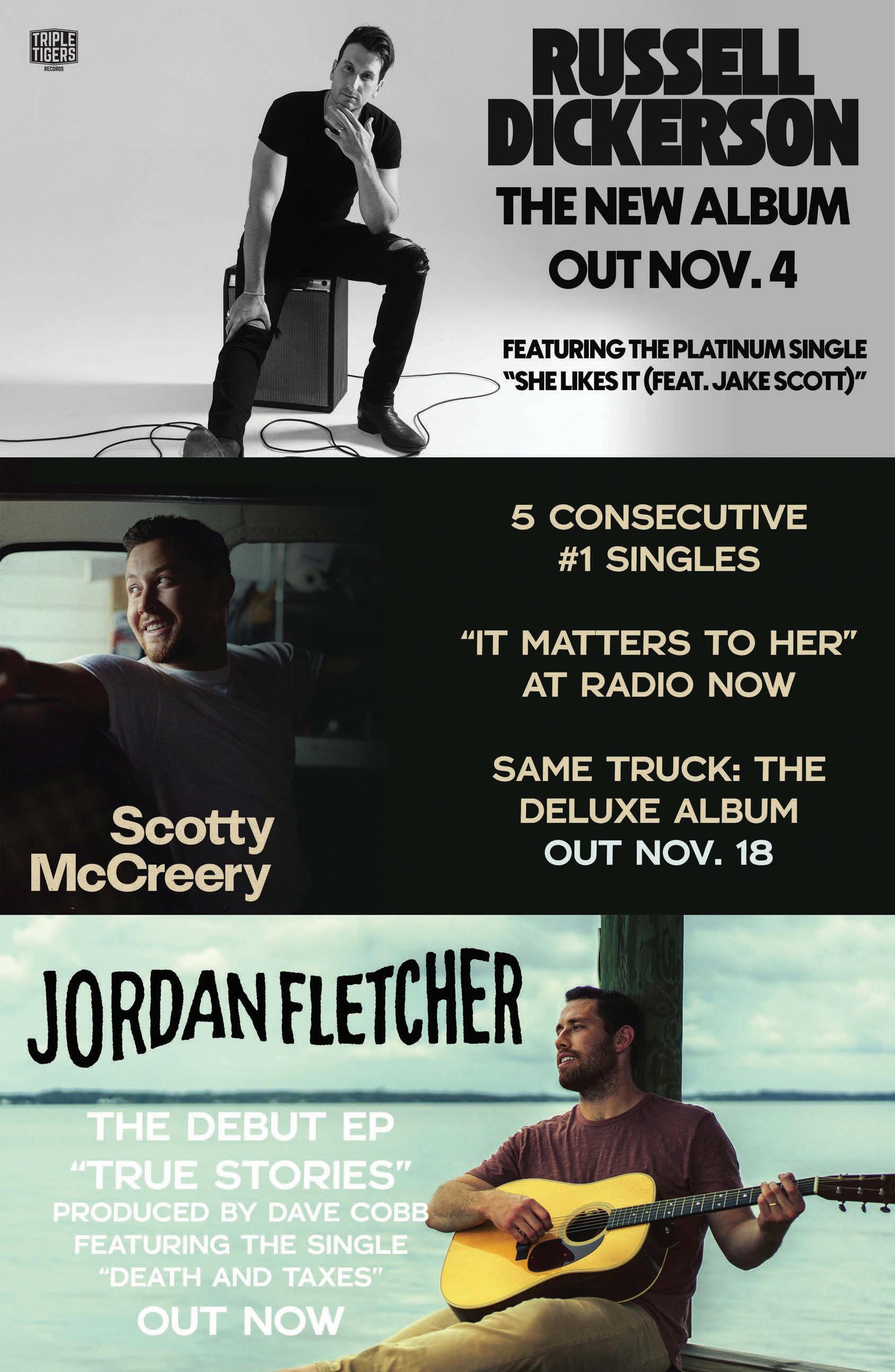
greatest parody song of all time, “Any Gal of Mine,” while he was here. From 9am to noon it will be the woman currently doing middays here, Amy James She’s on a bunch of iHeart stations, but not enough. From noon to 3pm, it’s Donna Valentine, who did every shift imaginable at K102 and currently hosts a talk show on KTMY/Minneapolis.
I’m going off the board to get my PM drive jock, “Broadway” Bill Lee . I worked with Bill at Top 40 WLOL/ Minneapolis in the ‘80s. There may not be a more talented music jock in radio – ever. While he’d hate doing Country, I would pay money to hear him doing it. Current K102 afternooner will handle 6-9pm. He’s been here forever, which means he’s either good or he has pictures of me. And I always thought midnight), but he was past that part of his career when he got here. Because we want to have the greatest St. Jude Radiothons in the USA (we do), I’m putting he’ll get more time at home during the day) while using 3-6am to break in a newcomer, taking a chance on that new kid,

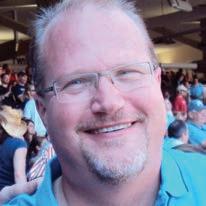
12

Bobby Bones
The Bobby Bones Show Host Premiere Networks
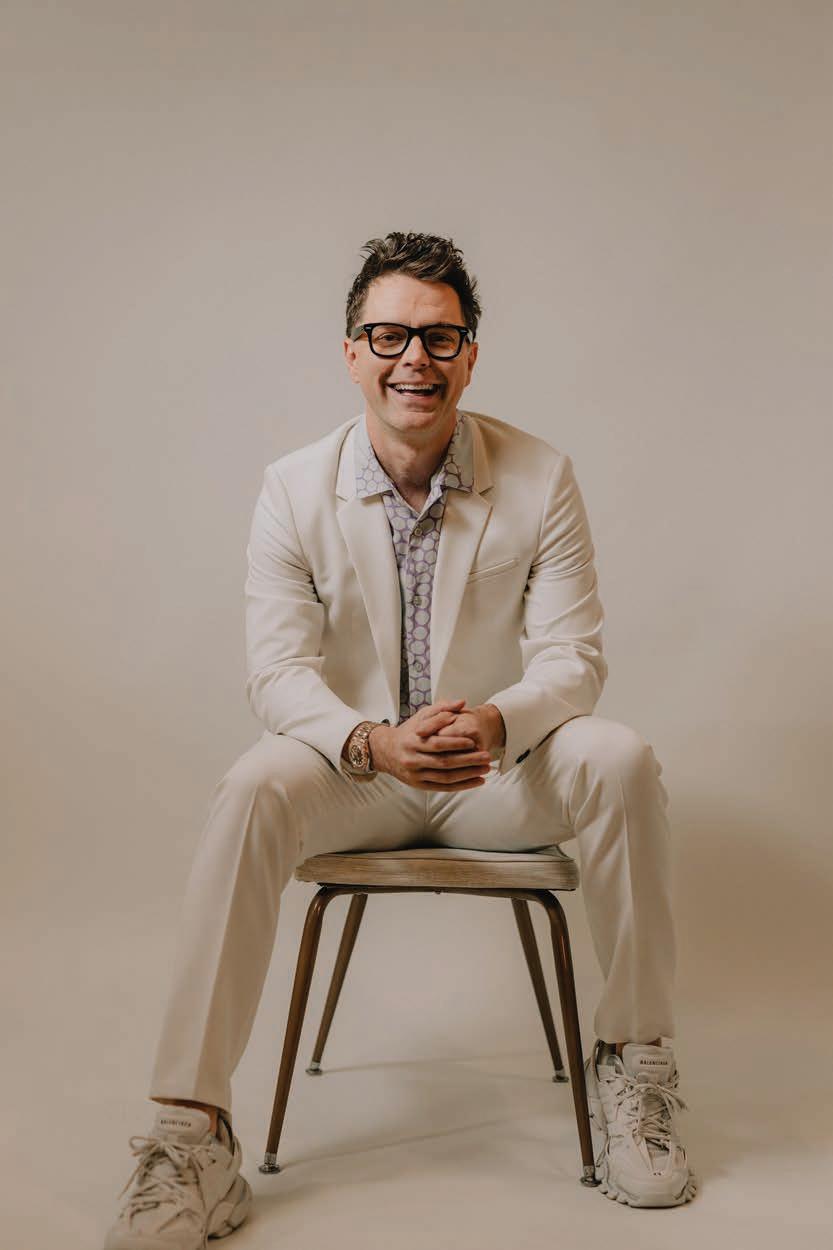
13
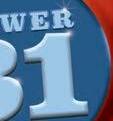
AM Drive Famer from Chicago waking you up every morning? No brainer!
We’re fairly confident he won’t agree to that shift.] Trish Biondo Dave “Rock & Roll” Robbins a time, but man, Dave rocked the mic back in the day!
Tom Martens
Warner Music Nashville VP/Radio Accounts






Minneapolis. He has dominated the airwaves of Minneapolis/St. Paul for 36 years; he’ll be retiring Dec. the boxes for me: topical, local, targeted. I have been a fan for 10 years. Afternoons: WCBS/New York City. A DJ’s DJ who rhymes every break. Nights: iHeart’s Wayne D air talents I have ever met.
15Katie Dean MCA SVP/Promotion
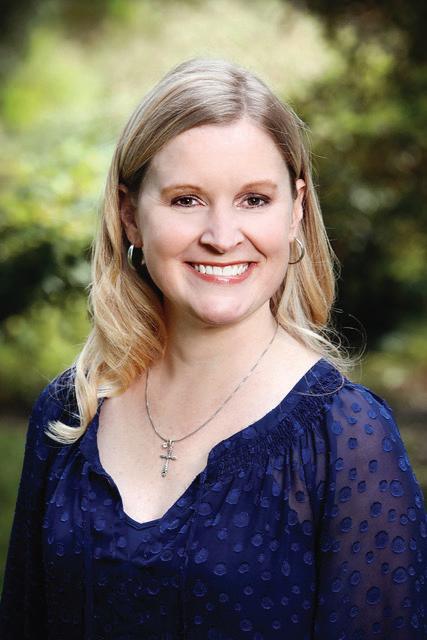
I moved around a lot as a kid, but I have very distinct memories Chuck Boozer
parents were such big fans, we literally went to station remotes where he was appearing. I’m pretty sure I can still sing the “call Chuck Boozer” jingle. He’s how I realized on-air talent are truly local celebrities. When I moved to Nashville in the ‘90s, my go-to was Lassiter City for years and was the first female rock morning DJ in Nashville. I followed her all over the dial while she was on air. There was something in her delivery that was so conversational and engaging.
Gator Harrison
iHeartMedia/Nashville SVP/Programming


While I could call out great shows from the past that infl uenced Coyote McCloud & The Zoo Crew from the Dewey Phillips – who was larger than life introducing us all to Elvis – or insert a dozen others, the honest answer: I’m in a unique position to have been able to hand select who I believe to be the very best of the best, past, present or future. The authenticity of the heart of Brooke Taylor , the chemistry and real-life friendship played out openly with Wayne D & Tay , the FOMO of Eddie Foxx – never knowing what’s going to come out of his mouth – and our very own Mayor of Midtown Ryan McKiddy living and loving music in the city. I’m honored to be working with the absolute best right now!
14

Craig Wiseman
Big Loud Owner/Managing Partner
Back in the day, they would get Hollywood stars to present at awards shows, but they would mispronounce names of country stars. Get one on-air and never correct them. That’d be great! “Okay, that was Kanye Brown and Laura Alainya. Stay tuned for the new one from Jason, Al and Dean.”
15
Ben Kline
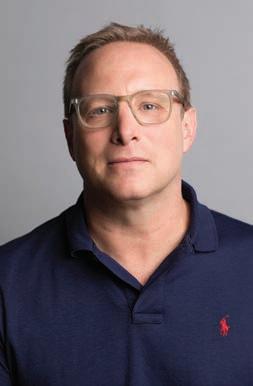
Warner Music Nashville Co-President

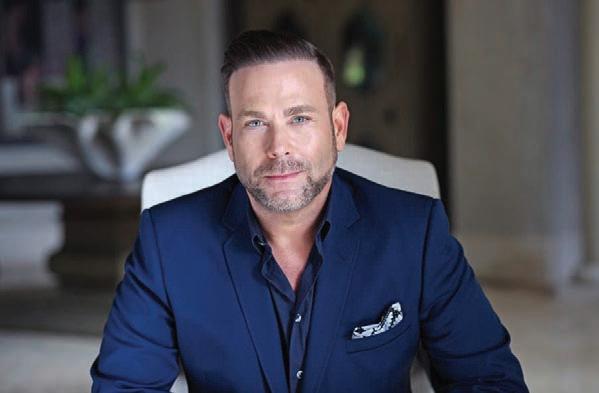
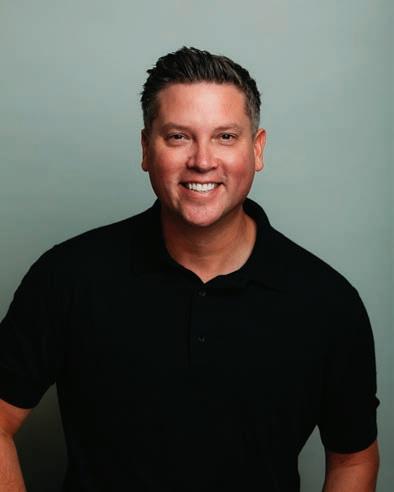
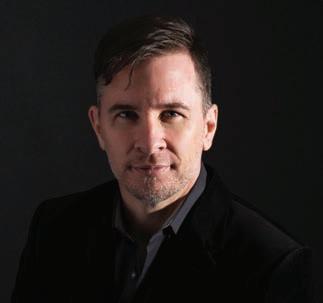
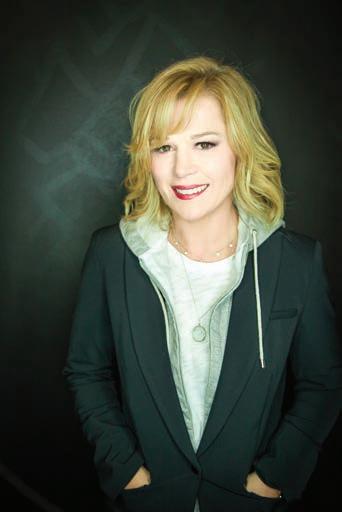
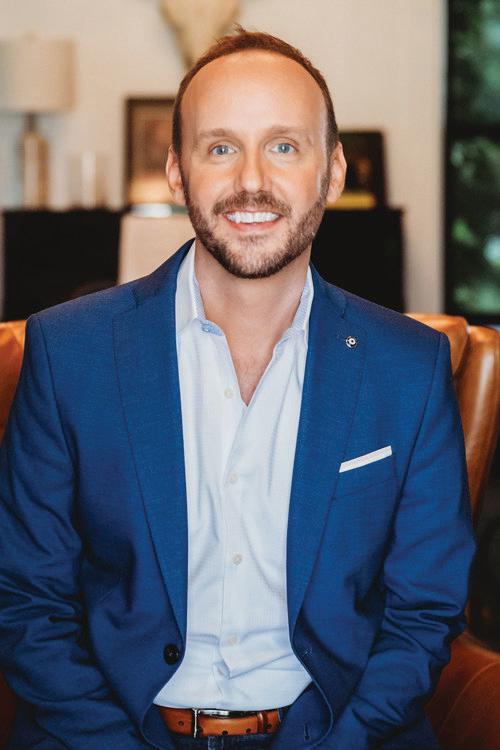
Lin Brehmer. As a kid in upstate NY in the early ‘80s, his nighttime show on [then-Alternative] WQBK/ Albany was must-listen radio for my friends, particularly the Wednesday night “Hump Day Unusual Moment” segment. He brought that bit with him to [Triple A] WXRT/Chicago, where he achieved icon status for more than 28 years. Get well soon, Lin!
Rusty Gaston
Sony Music Publishing Nashville CEO
Growing up in East Texas, I listened to every morning and Bob Kingsley every weekend. I would pick those two guys.
Sandbox Entertainment President/CEO Monument Records Co-President
Clint Higham Morris Higham President . He’s a voice of my childhood and everyone else’s. That voice instantly puts my

Brian O’Connell
Live Nation President/

Steve Dahl
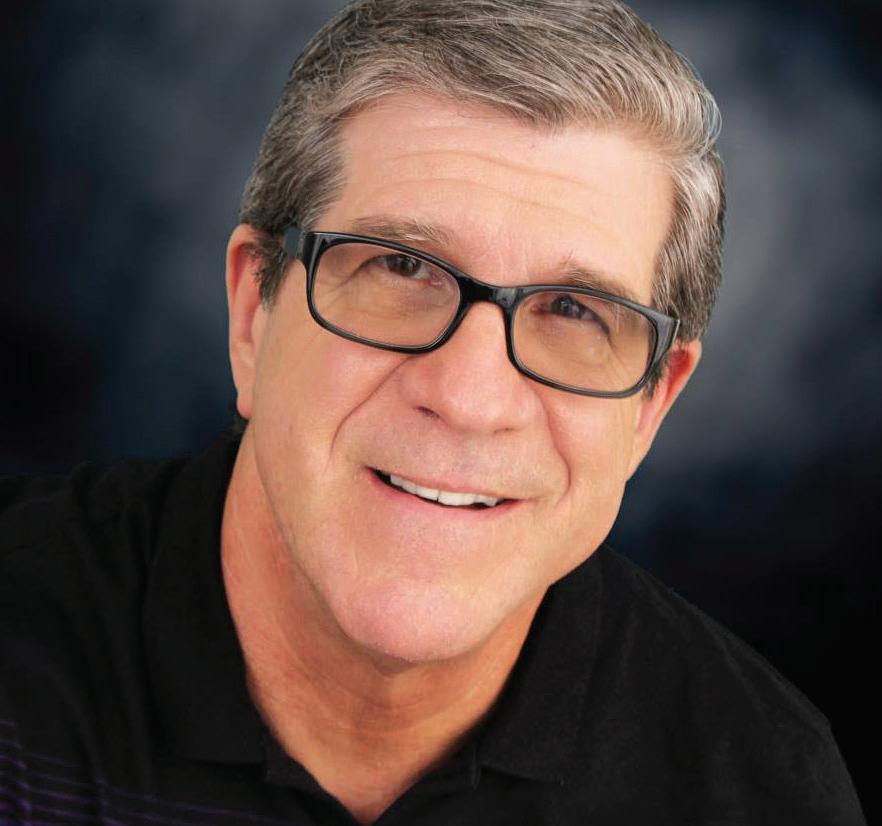
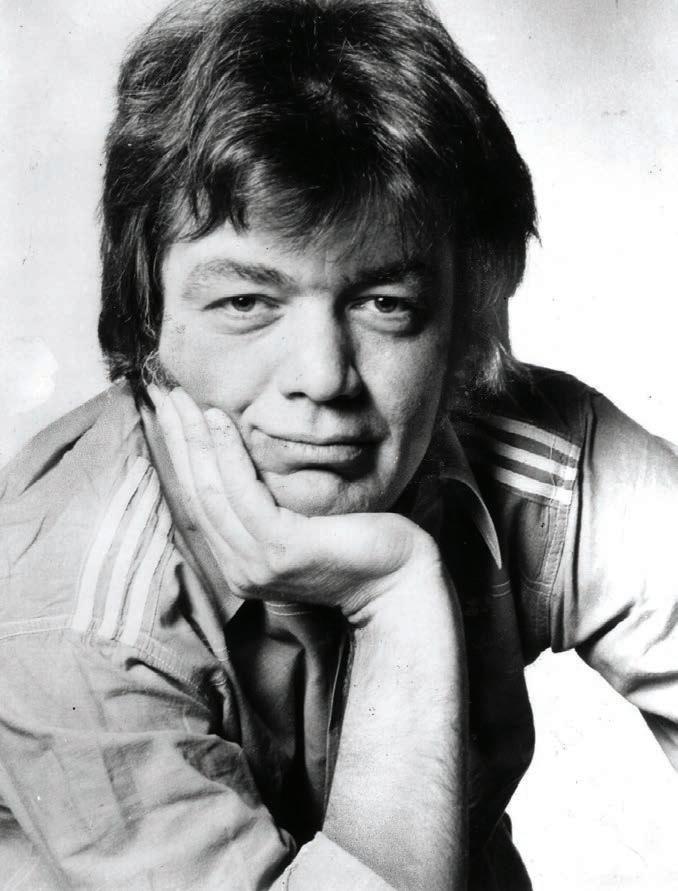
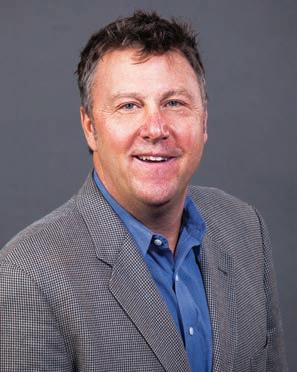
was my youth in Chicago, and we were all devoted to these guys. If you didn’t listen to the morning show, you had no
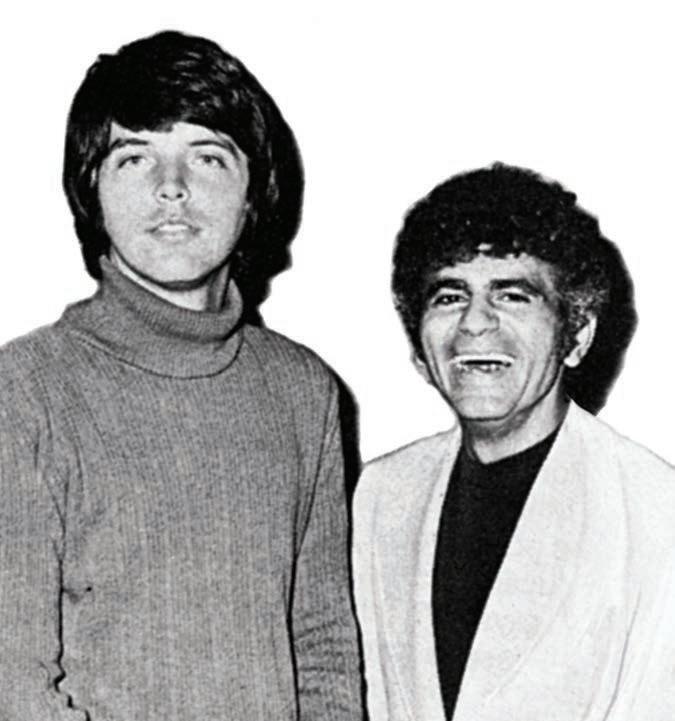
PAGE 6 • OCTOBER 2022
Larry Lujack
Mike Curb and Casey Kasem
“Broadway” Bill Lee
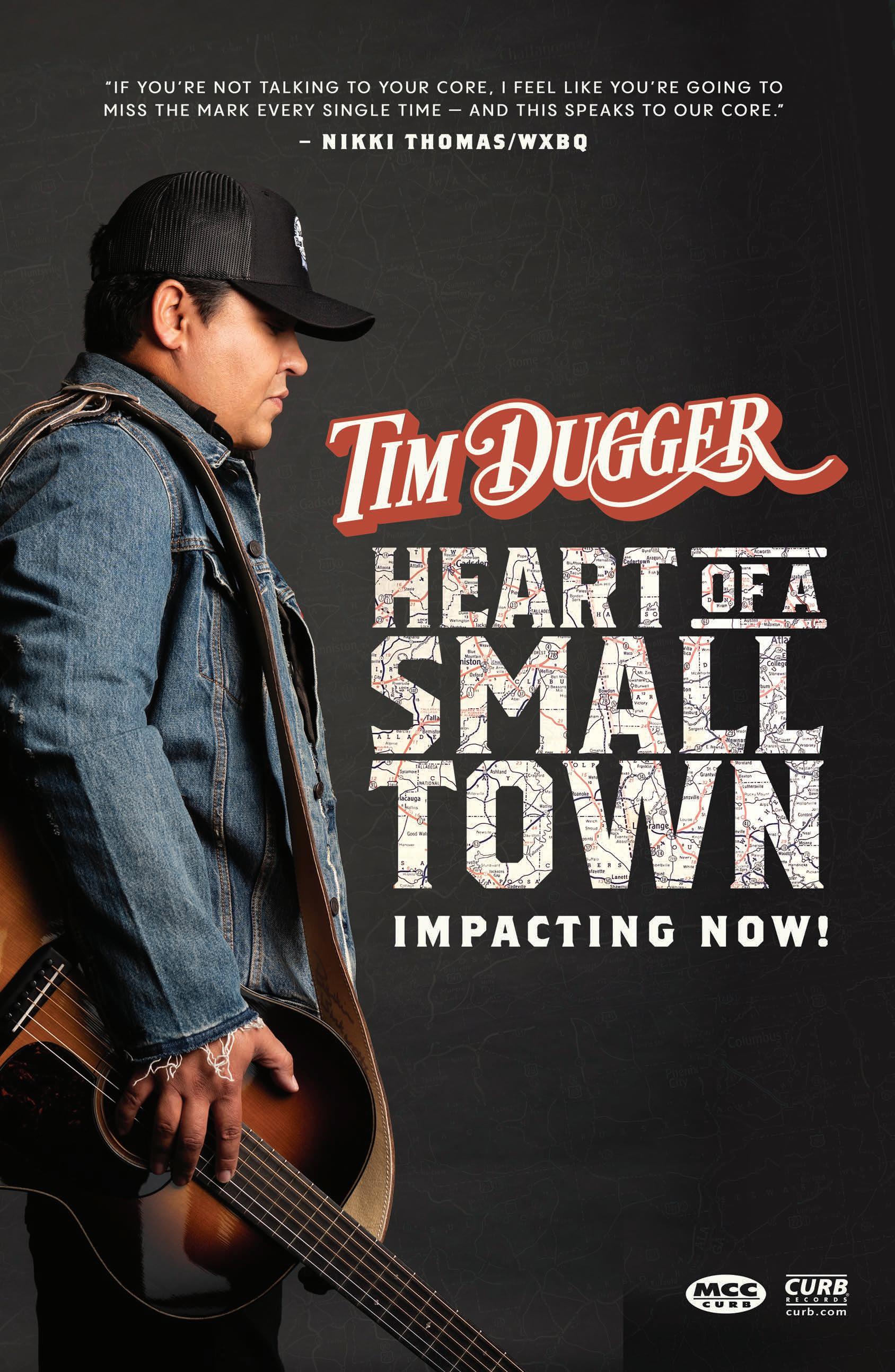
17


Bobby Young Capitol VP/Promotion
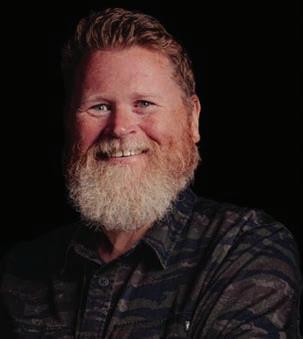
I would revert to block programming. Each daypart would be responsible for their own music selection (35% current) while growing ratings and revenue in their respective dayparts. Weekdays – Mornings: Gerry House with daily guest artists. Middays: Rhubarb Jones

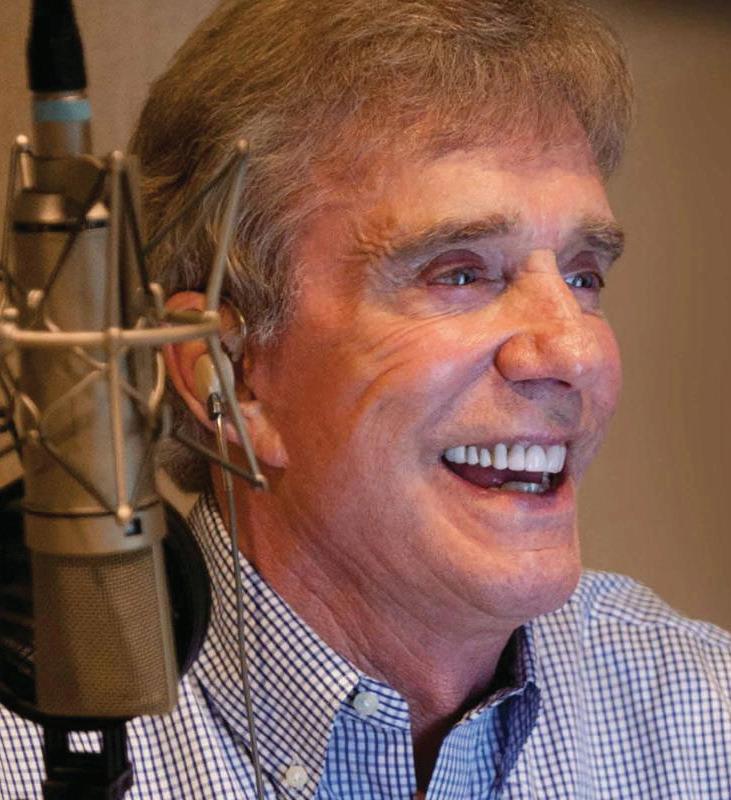
Afternoons: Coyote Calhoun . Evenings: “Crazy Eddie” Edwards . Overnights: Charlie Monk (voicetracked). Saturday mornings: The best of Gerry House with daily guest artists. Saturday middays: Dave McKay Rockin’ Country in the afternoons, uptempo and edgy. Sunday mornings: Country Countdown USA hosted by Lon Helton with a guest artist each week. Sunday middays: Baseball with Nick “The Stick” Hunter , no music except bumpers. Sunday nights: Zen Country with Les Acree . Easy on the soul, still 35% current. EVP/GM: Mike Culotta . VP/ OM: Barry Mardit . VPP: Dene Hallam . PD: Jeff Garrison . APD: Mac Daniels
18


Mike Preston
Cumulus KPLX & KSCS/Dallas PD
I’d recreate the station that inspired me to be in radio, Top 40 KFRC/San Francisco – one of the best of the mid-to-late ‘70s. My lineup: Rose (mornings) who showed us all how to be funny; Big Tom Parker & Dave “The Duke” Sholin who are amazing, quick and fl awless executors; Mack Flanigan (afternoons) who told amazing stories and worked intros like no other; “Broadway Bill” Lee (nights) is one of the most original personalities of all time. This was the station that helped me understand that air talent could connect with listeners beyond just liners and contests. And I was lucky enough to program the Classic Hits version of KFRC in the mid 2000s!
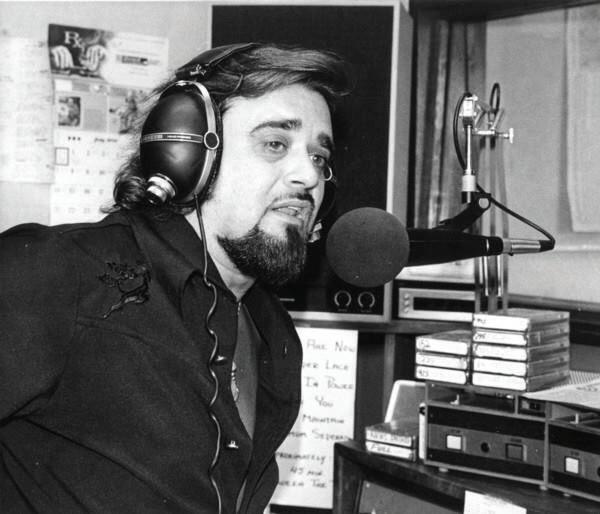
19
Kris Lamb
Big Machine SVP/Promotions & Digital



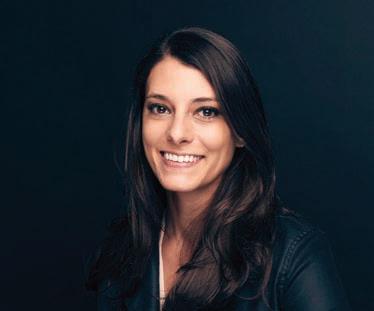

King of All Media Howard Stern in mornings. Oprah for middays. Joe Rogan brings the JRE to afternoon drive. I’m pairing Bob Kingsley and Helton for evenings – two legends, one shift, think of the opportunities! Bill Maher in overnights. And, of course, station imaging by Morgan Freeman
20Lauren “LT” Thomas
Columbia VP/Promotion & Artist Development



AM Drive: Betty White, shame on you if this needs an explanation. Sami Shea, Blue Chair Bay hype woman and host.
Byron Kennedy, comedian and former CBS Radio/Phoenix co-worker. And producer Houston Gaither – current Sony Music content dude and my guardian angel. I laugh my ass off at the idea of all these people in one room, the topics they would cover and imagining how many times daily the dump button would
Gwen Foster , formerly KMLE and KNIX/ Phoenix. Outside of being one of my mentors in radio and life, she sounds so happy on-air. Afternoons: Almost Famous . A “band aid” who I believe would crush the social media game and do a killer break at 4:20pm every day. Evenings:

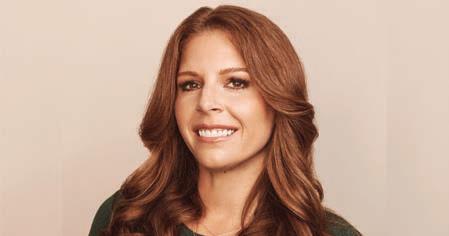
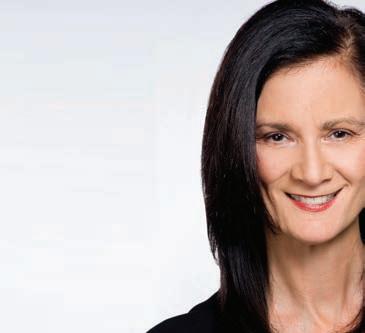
MakeWake Artists Founder/
I am going to pick friends from the station I worked at in
Atlanta back in the early 2000s, Top 40 WWWQ. Morning
Tracy St. George; afternoon
Jeff Miles
George Couri
Triple 8 Management Founder
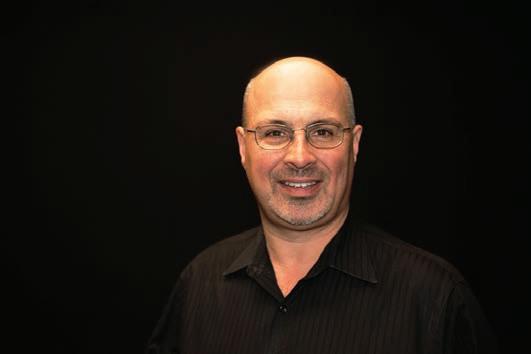
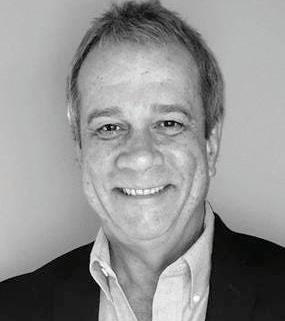
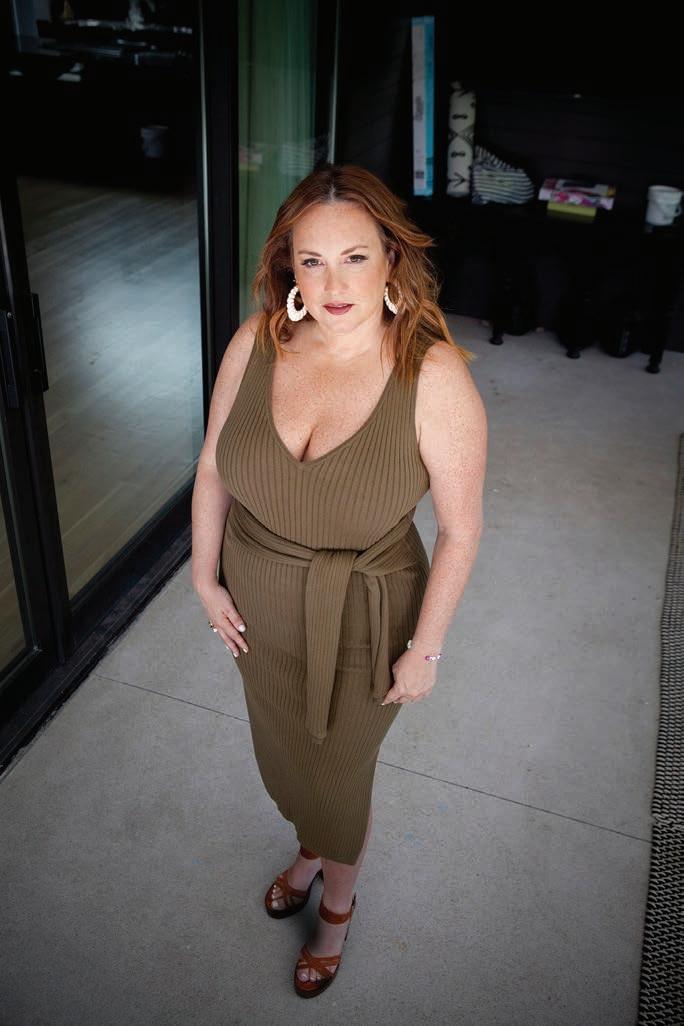
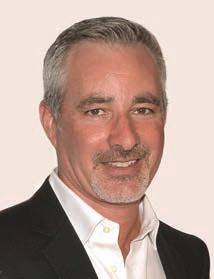
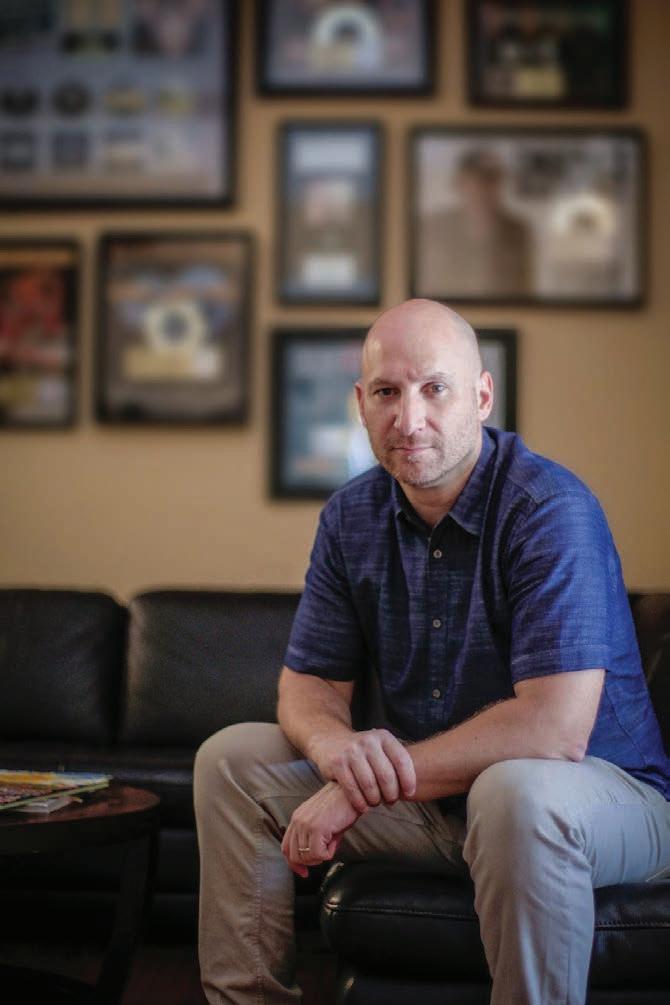
Maya Rudolph. I would look forward every morning to her making me chuckle, which would be guaranteed. Even if she wasn’t trying. Middays: Mondays, ; Tuesdays, Albert Einstein ; Thursdays, Merle Haggard; Fridays, Bill Morgan Freeman. Imagine that Shawshankstyle narration in talking about current events and songs.
Michelle Tigard Kammerer
Sure, Lon is a Hall of Famer, but Anne is the star and could let Lon moonlight. Weekends/Fill-Ins/St. Jude Radiothon liaison: Fowler , former WKZQ/Myrtle Beach, SC “Captain Afternoon” and tour manager extraordinaire.
.
music, and both carved a non-traditional path. I’d love to kick off the morning hearing them talk about their favorite songs and sharing professional experiences as an inspiring way to start the day.
Leslie Fram & Cameo Carlson, Alt Rock Rewind
Between Leslie’s experience in Atlanta and Cameo’s time in Seattle, their music knowledge would rival any ‘90s alt rock or grunge fanatic, and basically cover my high school soundtrack alongside a hilarious conversation, perfect to get through a slow morning at work.
Andrea Von Foester & Tressie McMillan, Cottom Roots Revival . As the music supervisor for Yellowstone , Andrea fi nds the best Americana, roots and western sounds and makes them part of the fabric of the show, sometimes fi nding artists who have never previously released music. Tressie is a thoughtful speaker, writer and sociologist. Together they could have the most interesting conversation about music and culture in afternoons. My dream day would not be complete without a celebration of ‘90s country with Ms. Kim , my third-grade bus driver. She got me into country music blasting Kissin’ 102 (KZSN/Wichita) all day long. She would have been an amazing host for drive time or after hours.
Amazon Music Head/Country all day, every day. Oh, how I miss Bob. Every Sunday growing up, I would grab my Bob Kingsley’s Country , settle in and listen to him introduce, explain, give context and tell stories of my favorite country songs. He was a master of storytelling and would weave in tidbits about the songwriters, musicians, happenings in Nashville and, most importantly, the stories behind the songs. I wrote down everything he said, becoming a student of the genre and the people who created the music I loved. (I still have a box of those notebooks.) Bob is a big reason I fell in love with country music. His voice invited the listener on a journey, and his passion for the genre, the songs and the lyrics showed the heart and authenticity of country music. When I moved to Nashville, I was lucky enough to meet Bob, and he became a fast friend and mentor. If we could have him back for even one more day, we’d all be better for it.
storytelling was impeccable. And there is a better golf partner or human on earth!
25
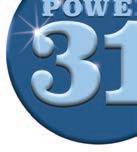
Artist Manager
The flagship show on my station would be hosted by the Queen of Country music
Kimberly Schlapman edgy and full of life lessons, fresh new music and classic hits – plus guest interviews with whomever is brave enough to sit with them. We’d broadcast from downtown Nashville, take caller questions and be sponsored by tequila (all of them) and Betty Crocker.
PAGE 8 • OCTOBER 2022
Leslie Fram
Wolfman
Jack
Bob Kingsley
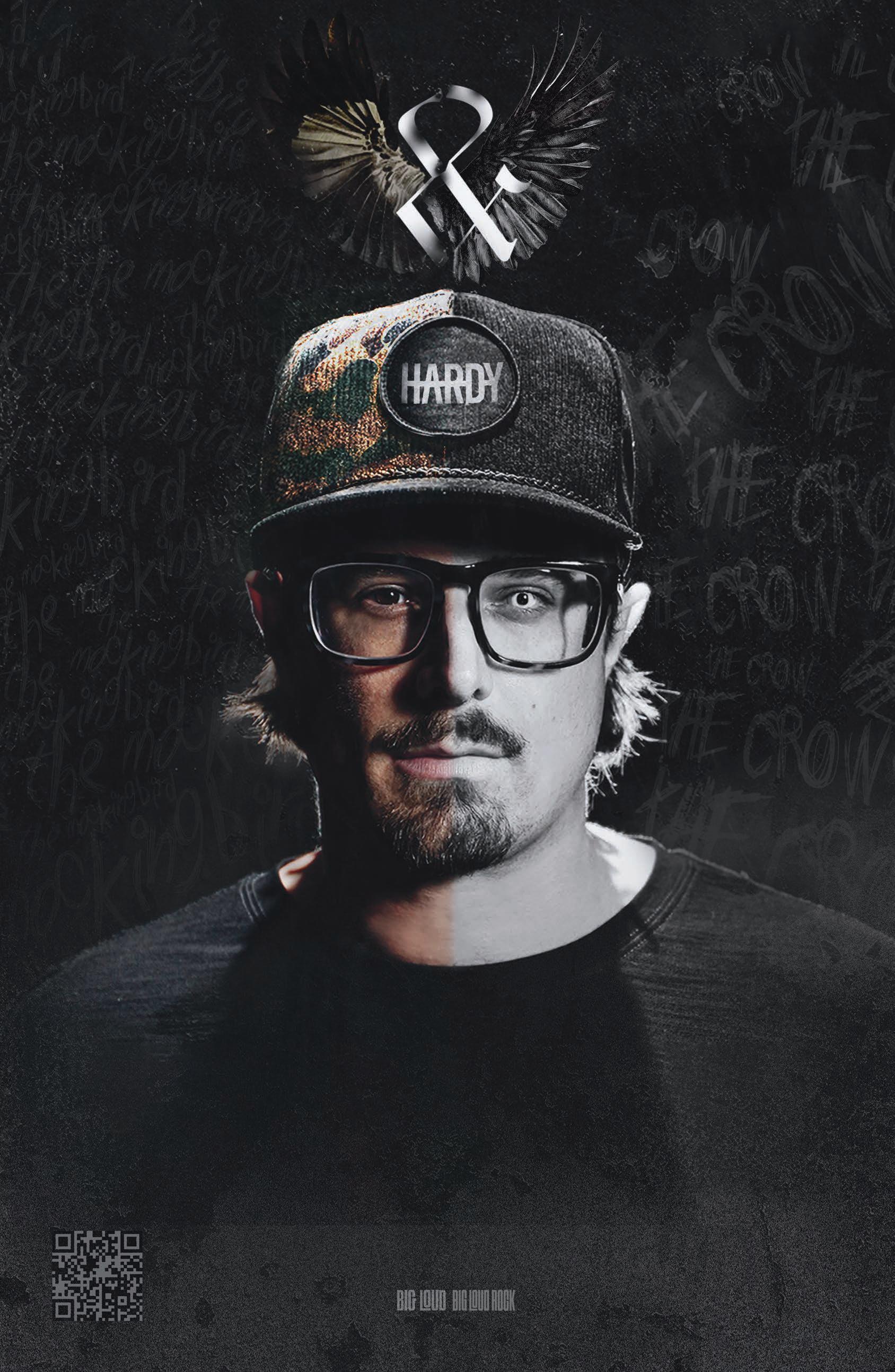

23

Ashley Sidoti Valory VP/Promotion & Digital
Gerry House – the voice of radio when I moved to Nashville. Miss him on the airwaves for sure ... guaranteed laughs in the morning! Cactus Jack – iconic in the Houston area and the larger-than-life soundtrack of Linda Lee – class, professionalism, and radio! A true fan and there is no substitute for that.
– does this need an explanation? Becca Walls for a different content angle, she keeps it fun and fresh.
24

Jim Murphy Music Choice Sr. Mgr./Country Programming
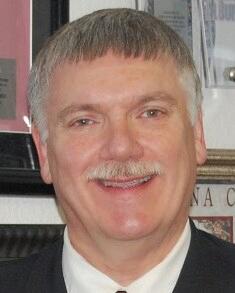

Morning drive: Tim & Willy (KNIX and KMLE/ Phoenix). Pound for pound, the most entertaining morning show in any genre. Middays: Lee Arnold (WHN/New York and later SiriusXM) is my personal on-air idol. The great ones make what they do look so easy, and Lee’s arguably the best interviewer in Country radio. Afternoons is Craig “Catfish” Hunter (KYGO/ Denver, WFUS/Tampa, national work) who is smart, engaging, topical and funny. Almost every break makes me laugh. Nights is WSM-AM/Nashville’s Eddie Stubbs. I know a lot about country music, but every time I listened to him, I learned more. Blair Garner in overnights: He broke the mold and set the standard, not just for overnights but for all future national dayparts. A lot of sleep was lost because of Blair Garner. Bonus weekend dayparts to Bill Cody’s Classic Country Weekend. He’s the consummate Country on-air pro, on radio, TV or syndication. And Country Top 40 with Bob Kingsley. The king of Country radio. Period.
25

 David Friedman UMG/Nashville VP/Promotion
David Friedman UMG/Nashville VP/Promotion


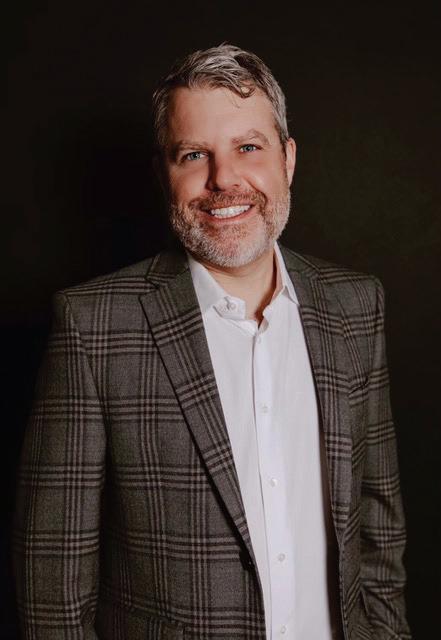
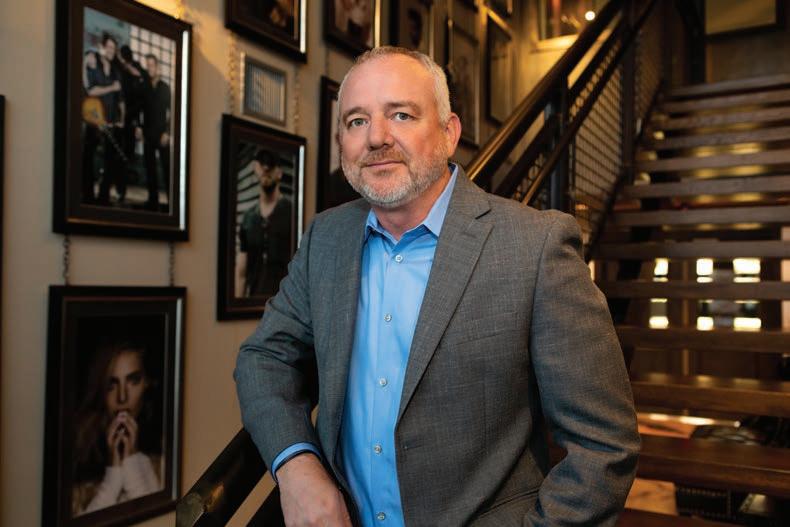
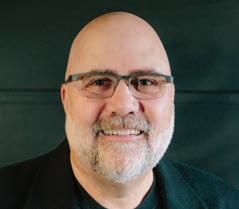
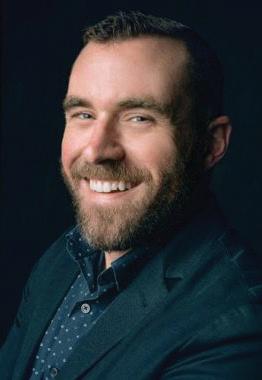
Mornings: Howard Stern: The GOAT! I’ve been invested in his show since 1995. Nobody does a better interview. Middays: Amy Paige. One of my great joys is when programmers and on-air talent tell me that my wife is one of the best jocks in America. I hear it often; it never gets old, and I concur. You can’t have a bad day when you’re listening to Amy. Afternoons: Chuck “Uncle Buck” Geiger. When I was a rookie regional, Cat Country 96 (WCTO/Allentown) was one of the most exciting-sounding stations, and Uncle Buck “rocked the box” hard. Nights: “Dollar Bill” Lawson & Madison. I’ve taken new artists and superstars in to hit the air with this dynamic duo and they knock it out of the park every time. One star told me it was their favorite interview ever to that point. Overnights: Tom Baldrica. Record and radio man extraordinaire! Tom is one of the most passionate people I’ve ever met, and he knows how to inspire a crowd let alone wake them up (or keep them awake). Bring it, Batman!
26
Chris Schuler
Arista VP/Promotion & Artist Development

Michael Scott
You really never know what you’re going to get with that combo, but it’s going to be great. a.k.a. Lisa Turtle of KKTY/Bayside for mid-days. She was only on-air for about 14 seconds with the tagline “everything you want to know that’s none of your business,” which feels like a ratings monster with the current state of click-bait. Ania Hammar of SXM/The Highway in PM drive. I love getting in my car and listening to one of my best friends. Marty Brennaman of WLW/Cincinnati for nights. My dad always had him dialed in for the drive home after Reds games. Nothing sounds more like home. Casey Kasem on the weekends. We listened to the countdown every Sunday on the way to church.


27
Kevin Herring
Triple Tigers SVP/Promotion
Dick Purtan is in mornings. I grew up in Detroit. Funniest morning guy I ever heard. Middays are Jane Seymour, who has the sexiest female British voice on the planet. In afternoons ... Robin Williams. “Good afternoon, Vietnam!” How much fun would that be? Chill out with Bob Kingsley in evenings; that’s what I’ll be doing. And finally, James Earl Jones
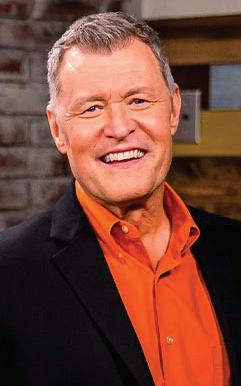
BMLG VP/Digital Consumption
Gerry House and the House
. Gerry is the funniest and one of the smartest humans I have ever known. Best character development Casey Kasem. Imagine a workday full of long-distance dedications. Afternoons: . Because, Tom Rivers! Nights: Wolfman Jack
26


Allison Jones BMLG EVP/A&R
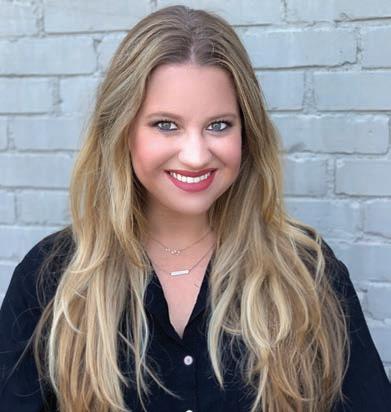

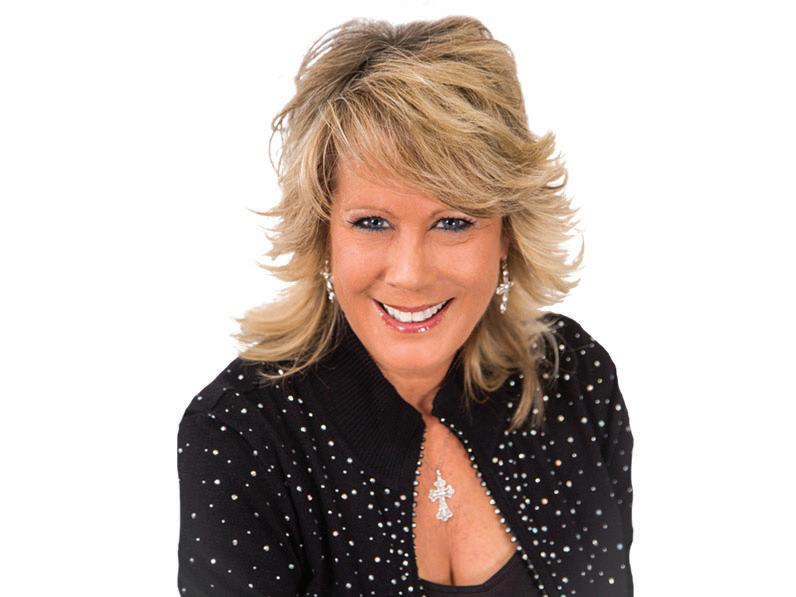
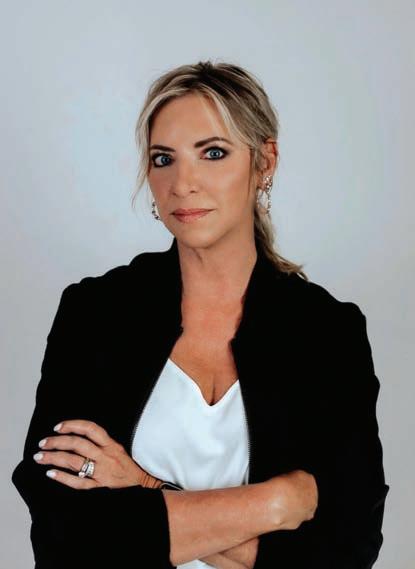
Gerry House and the House Foundation
My all-time favorite on-air personality, Gerry loved artists, championed great songs, was a discoverer of new talent, was responsible for breaking new songs, was hilarious, gracious, quick, informative, entertaining and the best part of my day. He was also a hit songwriter and the father of one of my favorite humans on the planet, Autumn!
27
Stephanie Wright UMG/Nashville SVP/A&R
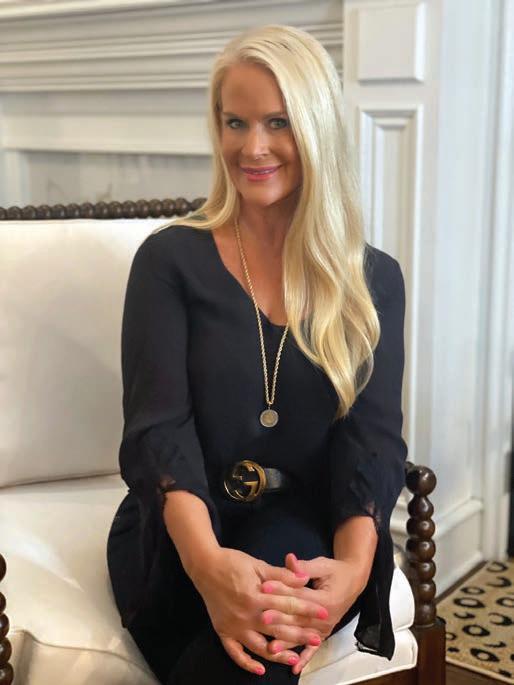
I grew up in Magna, Utah and went to school with the daughter of KSOP/Salt Lake City’s . I would occasionally hear Tracey talk about her dad’s work and artists stopping by the station. I remember listening to him as a teenager and thinking he was just as cool as any artist played on the radio.
When I moved to Nashville 25 years ago, I found a large bin of cassettes labeled “Countdown” from recording on Sundays when we went to church. There’s no telling how many of the famous “keep you head in the stars and your feet on the ground” lines were on
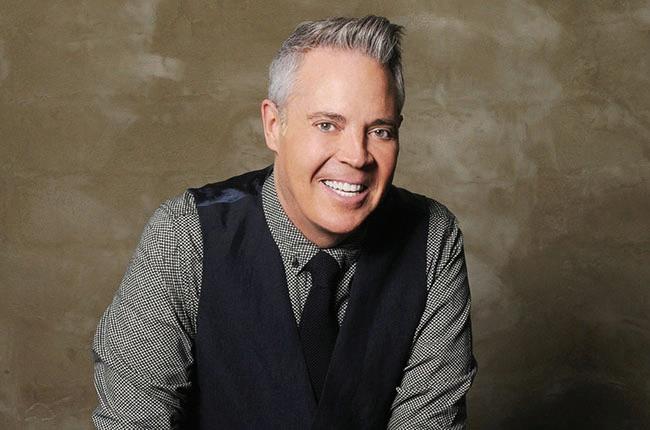
PAGE 10 • OCTOBER 2022 22Annie Ortmeier UMG/Nashville SVP/Streaming Marketing
Blair Garner
Linda Lee
Bill Cody
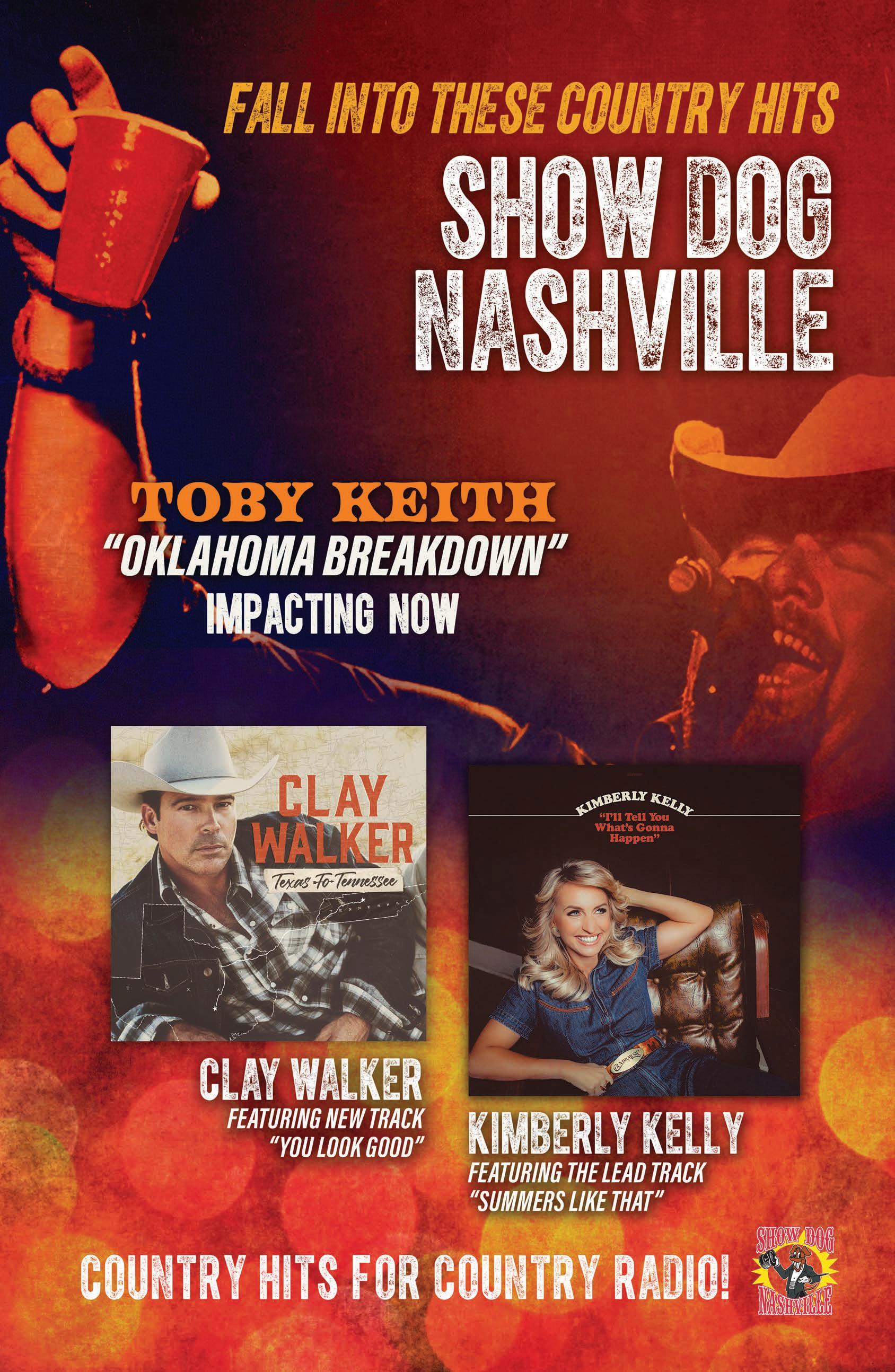 29Ali Matkosky
29Ali Matkosky
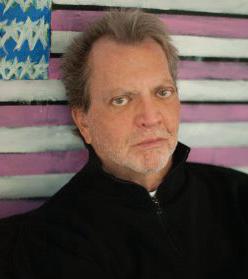
Big Loud VP/National Promotion
We’re starting our mornings out with the trio from Smartless – Jason Bateman Sean Will Arnett. Producer David Spade plays a heavy role in the show. Why? Because it’s hilarious and a great way to get your morning started. Check out that episode if you get a chance. I’m probably most passionate about my afternoon host, tenured play-by-play announcer for the NHL’s Buffalo Sabres, Rick Jeanneret, a 51-year broadcast veteran who will grace the airwaves with standout calls like, “top shelf where mama hides the cookies,” “may day” and my personal favorite “la-la-la-laLaFontaine.” Don’t forget to stick around for the particularly exhilarating fight commentary. Email me and I’ll share the link to his best calls of all time. To end the week, we’ll cruise through the weekend with Radio Hall of Famer Lon Country Countdown USA. Some things just feel right.
Curb SVP/Promotion
Gerry House & the House Foundation . Gerry was the king of the airwaves when I moved to Nashville. Mike Bohan laughing at something idiotic Gerry said was guaranteed to get me laughing, too. The epitome of live and local radio done at its highest level. Middays: My dad Paul Meacham . By the time I was old enough to form any real memories, my dad was a GSM and soon-to-be GM/owner, but when he and my mom were fi rst married, he had a night shift on my grandfather’s station, KDMS/El Dorado, AR. I don’t know if he was any good (maybe not, because he moved over to sales pretty quickly), but how cool would it be to hear him circa 1970? Finally, for any shift after dark, Wolfman Jack . The epitome of a wild, west coast jock with an unmistakable tone and cadence.
31Chris Palmer Valory VP/Promotion & Marketing

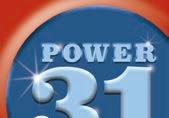
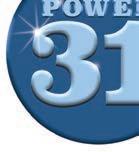
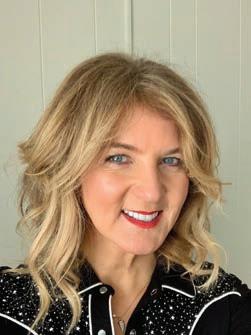
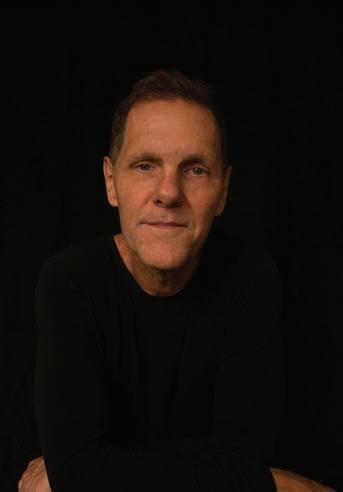
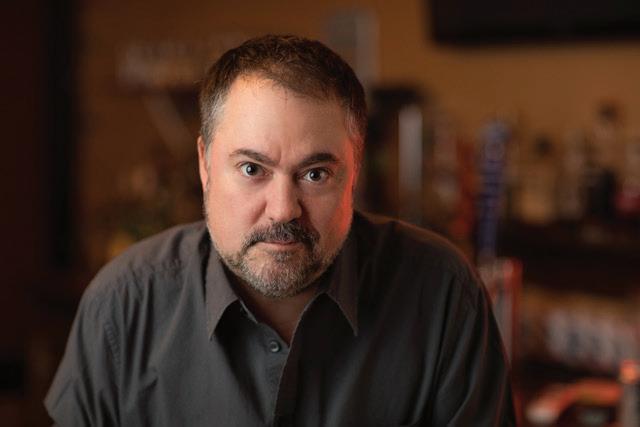
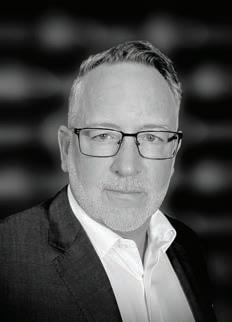
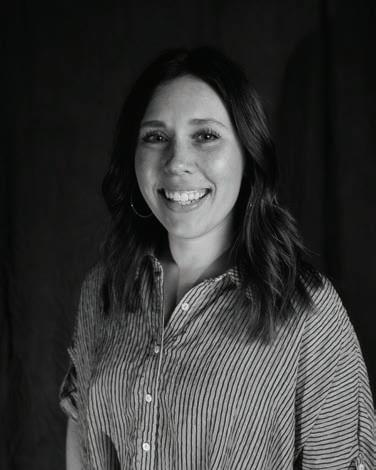

Morning drive is Gerry House . When I moved to Nashville in 2001, I knew I’d love him after one of fi rst things I heard him say was, “It’s opening day for schools, and the mayor will be on hand to throw out the fi rst student.” He’s a great follow on Twitter. Middays is BMLG’s own Becca Walls , who has impeccable interviewing skills and great presence on the radio. Afternoon drive must be Coyote Calhoun – a true legend who was on the air in an era when people fl ocked to appearances to see their favorite DJ. The curveball is Chris Loss , a.k.a. ChrisKelly , who did that shift for me when I programmed in Myrtle Beach. He was so polarizing on the air – an upstate New Yorker
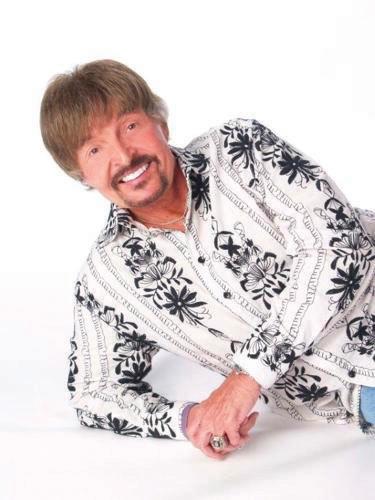
28 Brittany Schaffer Spotify Head/Nashville
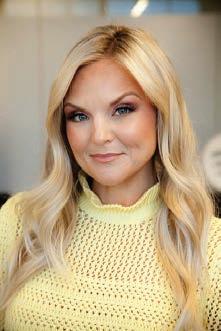
Artist & Label Services
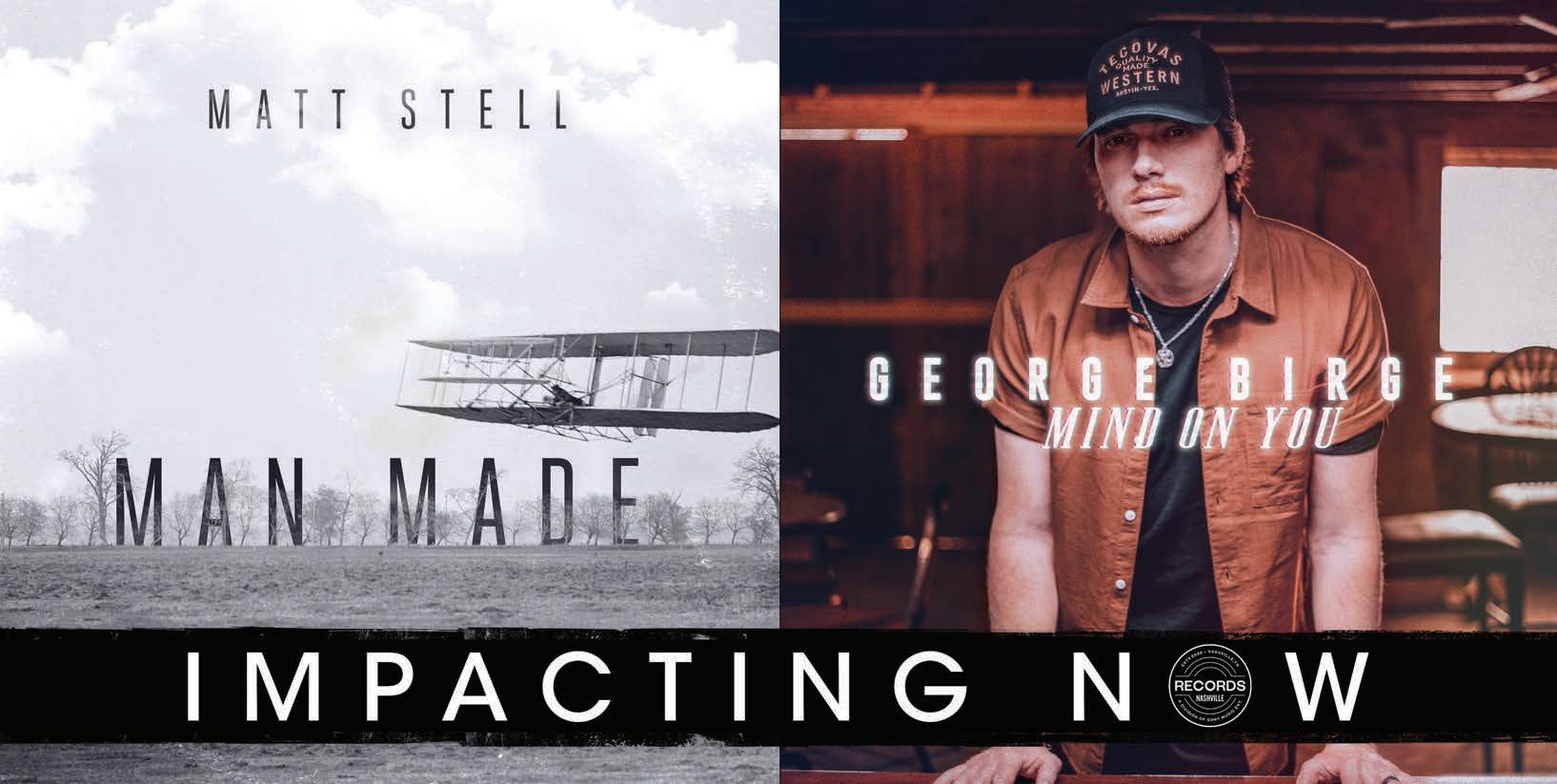
Morning inspiration with Joel Osteen – the world could use more positive, spiritual motivation. Mornings with Hoda Kotb and Jenna Bush Hager – I love knowing what’s happening in the world and culture and love their upbeat personalities and professionalism. Midday motivation with Dolly Parton – we all need a pick-me-up! Afternoon insights with Brené Brown – understanding courage, vulnerability, shame, and empathy helps us better understand ourselves and become better leaders at home Bill Cody – his voice sets a perfect tone for the evening and his knowledge of country music, and its history makes for wonderful artist interviews and great stories. Overnights with Ted Lasso keeps me laughing and therefore awake!
29


Norbert Nix
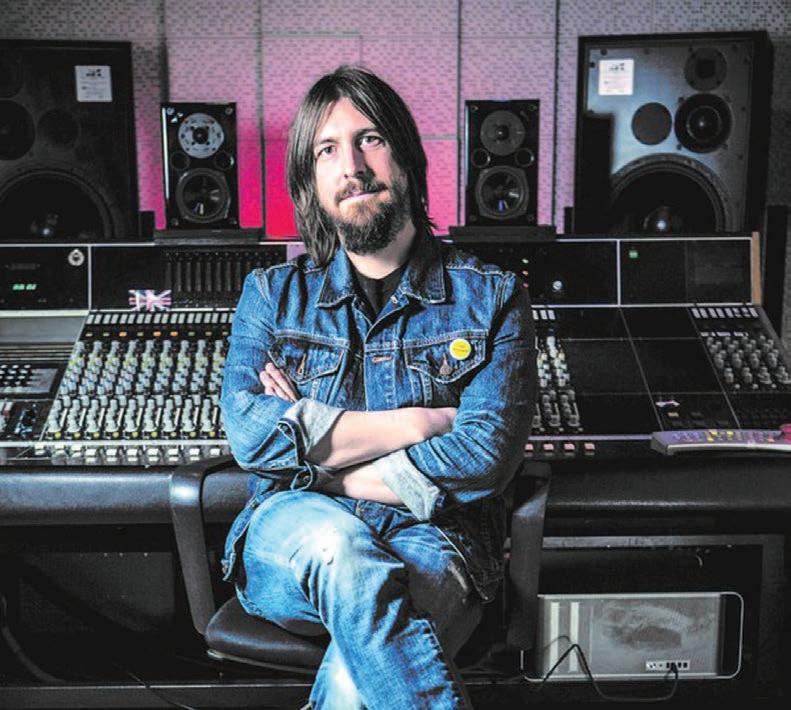
Triple Tigers President/Partner
Celestial music station KSTAR has for mornings, because he’ll pull in the younger demo on is in middays. He’ll rule remotes



 Gerry House
Coyote Calhoun
Gerry House
Coyote Calhoun
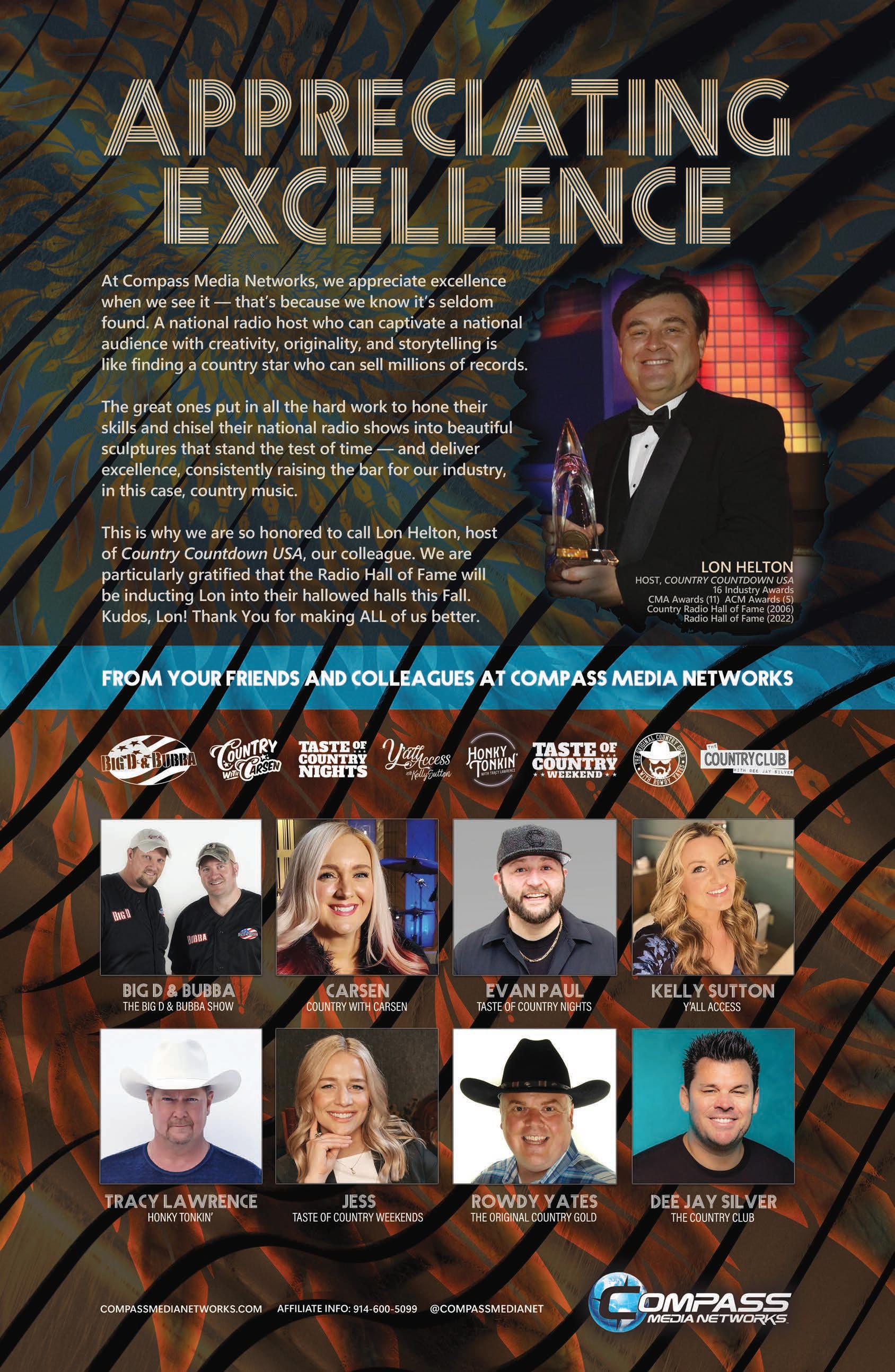
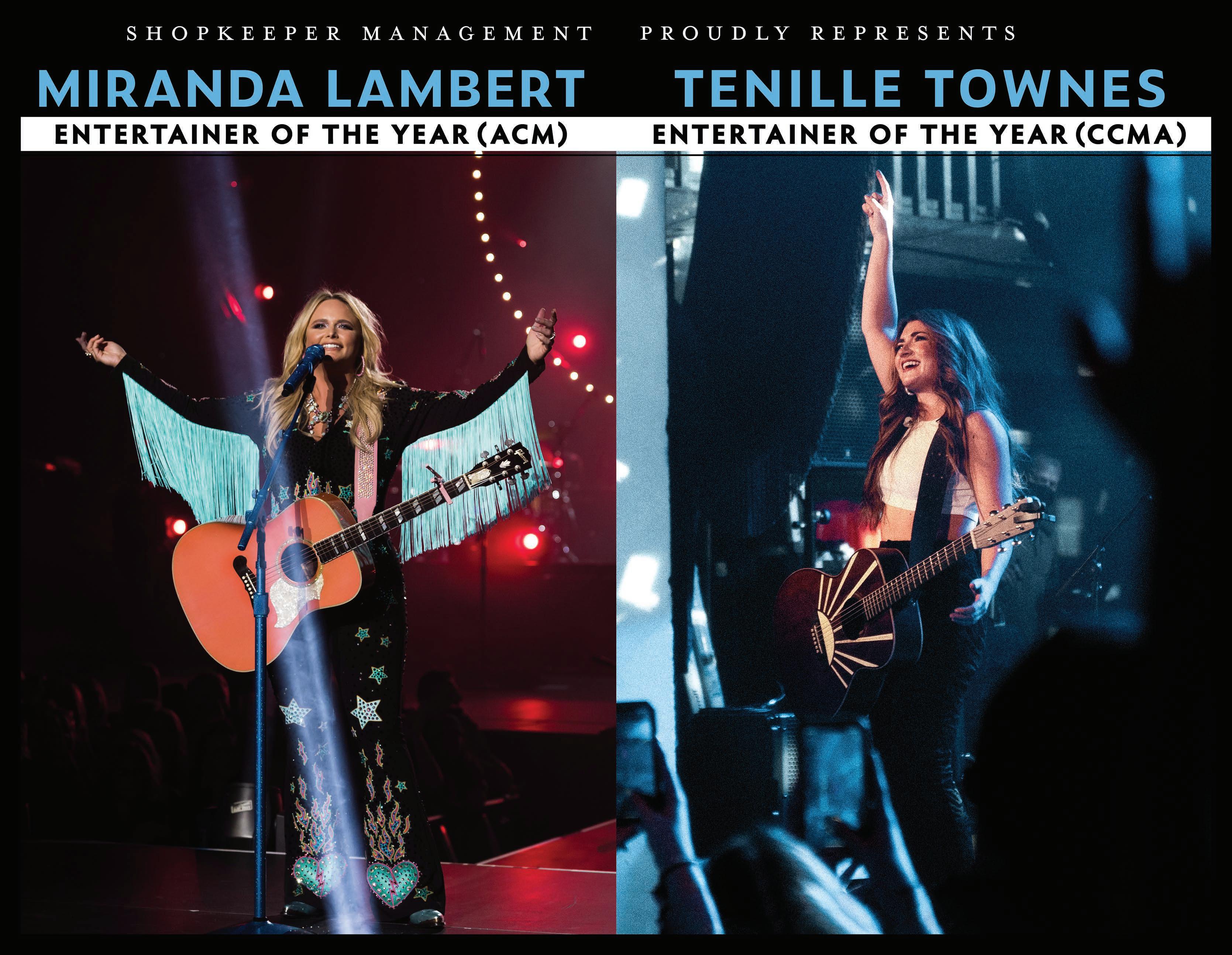

LOOKING BACK
Morethan 13 years after he was sent to “fix” Warner Bros./ Nashville, John Esposito’s most pressing challenge may be his office. “My biggest concern is what the hell I’m doing with all this stuff,” he says. Now Chairman/CEO of the revamped –musically, financially, physically ... even spiritually – Warner Music Nashville, the man most just call “Espo” is stepping into a new role Jan. 1 as Chairman Emeritus. He’s still figuring out what that means ... while reflecting on his time in Music City.




Country Aircheck: Well, what’s the plan?





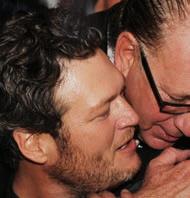







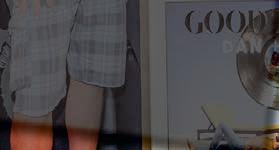











John Esposito: My immediate future is continuing to support Warner Music Nashville in the role of Chairman Emeritus. While I won’t have day-to-day operational responsibilities, I am available to assist in artist relations, helping sign new artists as asked and giving advice and counsel to [Co-Presidents] Ben [Kline] and Cris [Lacy].
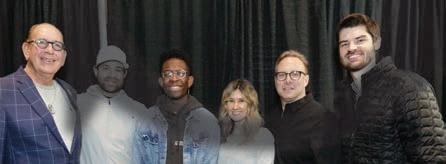
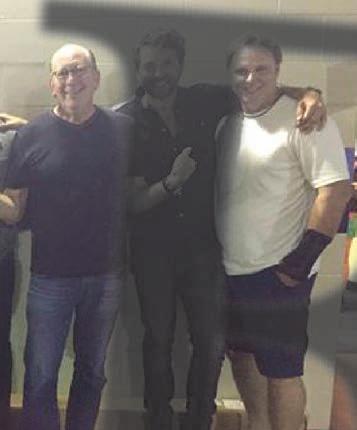

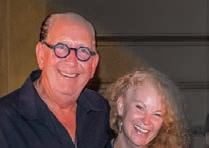

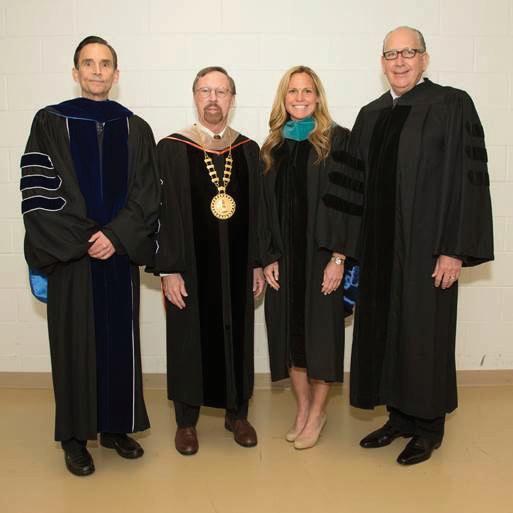
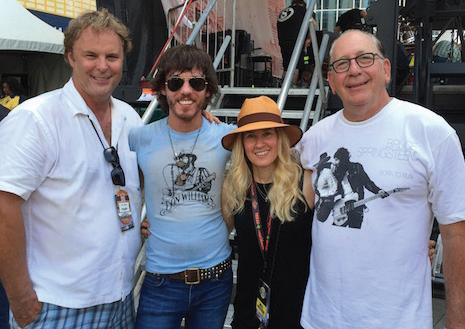
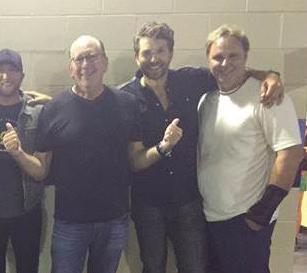

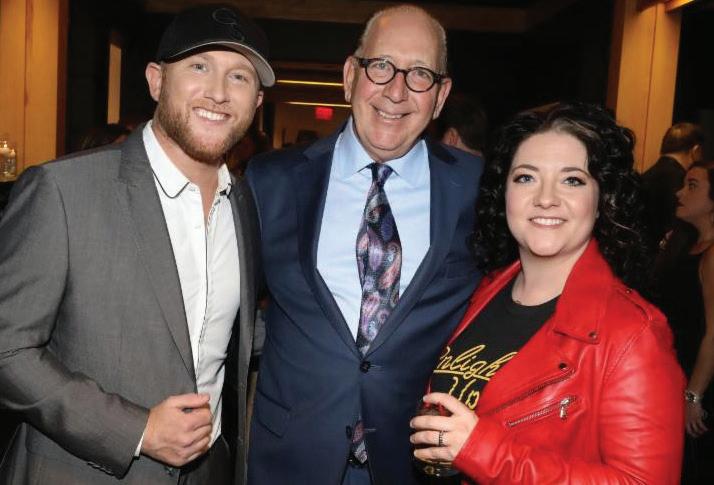
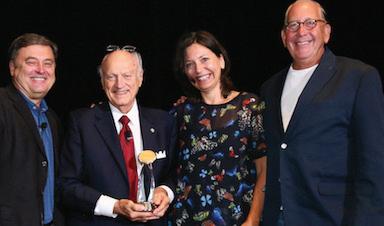


I also know sitting still is not a skill I have. I’ll want to be involved with great artists for the rest of my life, and I’ll figure out what that means.




I will want to do some sort of team celebration, and I want to invite every artist into my office, because those post BMI gatherings, for example, have been some of the most memorable moments of my life. Everybody’s sitting around the table drinking. I get to DJ, guitars get busted out, Charlie Worsham’s playing Dan + Shay songs while Shay sings or vice versa. Blake Shelton standing next to me, singing, “Like a fellow once said, ain’t that a kick in the head.” There’s a guy standing next to me who says, “Hi, I’m Nick.” And I say, “I know who you are, Nick Jonas.” How can I ever forget those magic moments?
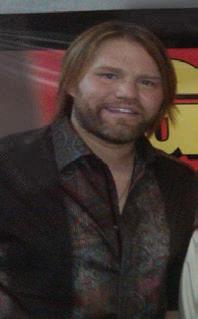
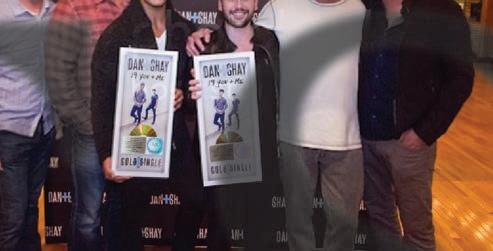


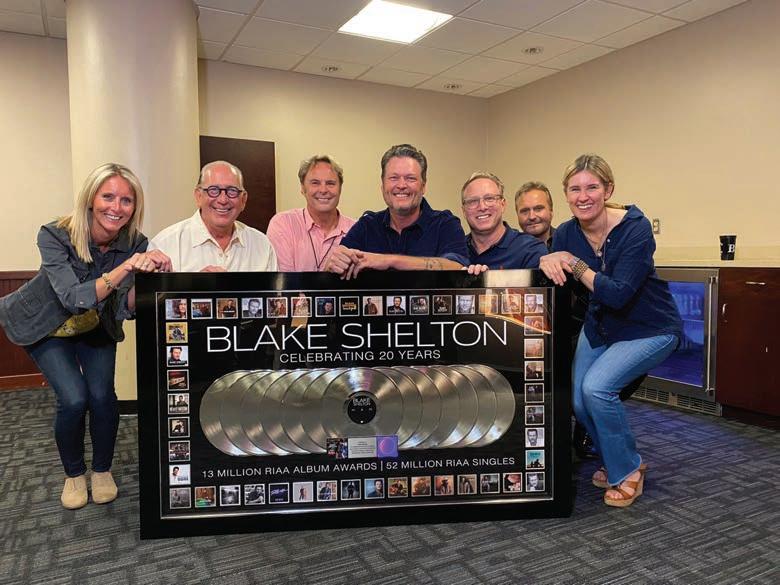


Any other of those moments come to mind?
About seven years ago, Stuart Dill sent me an email asking if I’d like to have dinner with Bill Cowher. Stuart managed his wife as a songwriter, but he said, “Don’t worry, she’s not looking for a record deal.” Being the Steelers fanatic everybody knows I am, I said, “Of course, but he has to come to my office first, because he has to see [my Steelers] wall.” I’ve given Bill’s wife some advice on the business, but I think she should write with, but it


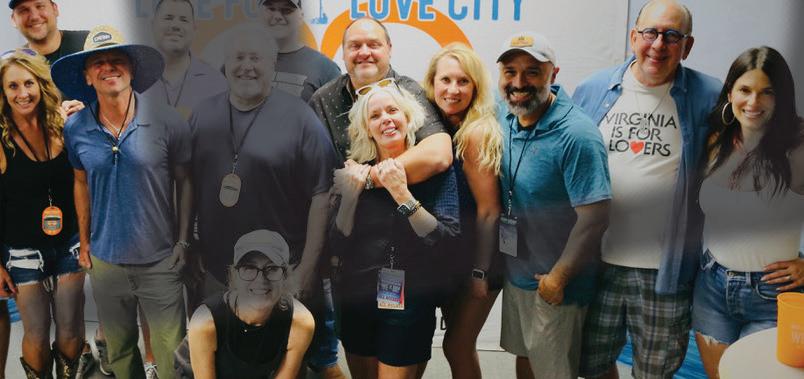
really is just two Western Pennsylvania boys who did well in the entertainment business. One’s a little more famous with a big chin and all that stuff, but we’ve traveled the world together. He and I became blood brothers as a result of that chance meeting.
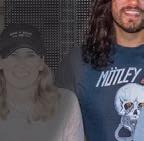

I had never attempted to sign an artist on the spot before I heard a song called “19 You And Me” by a duo called Ragtop Red. I thought it was a really weird name, but by God, I needed to meet whoever was singing it. In come Dan Smyers and Shay Mooney. Dan walked over to the Steelers wall, and I said, “Please don’t tell me you’re from Cleveland.” He laughed and said, “No, I’m from Pittsburgh.” So, we got one thing covered there. When they started playing, I gave Scott Hendricks a wink, trying not to make it obvious to the boys, and he’s winking back. After about three songs of winking, I shut the office door and said, “You’re not leaving here until you’re Warner Bros. artists.” What would typically be a half-hour or 45-minute audition stretched for hours. God knows how many bottles of booze we drained while hearing what sounded like hit after hit. They didn’t have a pot to piss in, so I took them home, and my beautiful wife Chantel fed them the next four nights.
The second time I did something like that had nothing to do with Pittsburgh but was, coincidentally, Pittsburgh native Gabby Barrett. We heard five or six songs and, even at 17 or 18, I knew it wasn’t going to only be about “I Hope.” People ask how I know. At that point, you’ve done enough digging to find out what level of connection they’ve made with people. When they walk in, you get a sense they could walk into a restaurant and people would

go, “I don’t know who they are, but they are somebody.”


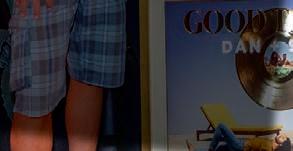

Almost anybody who ultimately becomes a star fits that category. There’s just some magic.

Why now?





I want to write my own story, not let it be written for me. Last summer, I was reflecting with my wife about the mission I was given to come to Nashville and get this label on track. There’s always lots more to do, but I’ve kind of done it. I’m at an age where I have more chapters in me, but I don’t want to be much older to try to start whatever they might be. I had very overtly promoted Ben to GM and Cris to head of A&R with Scott Hendricks’ blessing. I had an inkling that if I really pushed them hard to see if they could deliver, that would give me options. I told my now boss this was my plan, but let’s see how it might turn out.





Before this, I was the president of WEA when distribution was a big deal. WEA was at the bottom of the pile, and we went from being one of the disdained distributors in the business to winning NARM Distributor of the Year four years in a row. I’d put a great team in place and went to my boss at the time, Lyor Cohen, and said, “I’m bored shitless. I’ve done what I was asked to do. You’ve got to promote me or fire me.” He gave a big smile and said, “Will you go tell [Chairman] Edgar [Bronfman, Jr.] that?” I walked to the other end of the hallway and said the same thing to Edgar. He smiled. Two weeks later I was asked to run Nashville.
I didn’t know that was in the works. I had no safety net. I just know I’m at my best when I’m building. And it means I’m nuts, too. You have to have a pretty good I-don’t-give-a-fuck attitude in order to do this.
Let the kids take it over, and I’ll figure out what to do besides be available for phone calls that may or may not come from Ben and Cris. Frankly, I’ve been turning the proverbial reigns over to them for the last several months. They check in when they have a question and are operating at about 80% of what’s happening here. I’m kind of the culture guy who’s trying to do what I can to make sure they keep a very wonderful team spirit going, which I have all the confidence they will do.
It’s not only my desire for this thing to do even better, but it’s in my best interest financially, because I have a stake in this place.
I’m going to spend the next four months embracing every artist and everybody on this team, dispensing whatever wisdom I have, then allowing myself time to explore.

PAGE 16 • OCTOBER 2022
Are you going to continue as the artist whisperer?
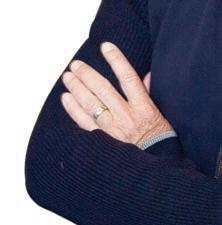
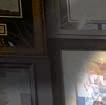

That is my aspiration. I was blessed with a gift in that regard. It comes from confidence, from building success prior to getting here, but also what’s gone on here. Our job is to inspire confidence, because artists are various levels of fragile. They have to prove themselves every day of the week in a way that’s far more than us getting a Country Aircheck chart on Monday. Through my experience, confidence and piling on some successes, I’ve developed an ability to have conversations with artists that are transparent, blunt and helpful. The last thing in the world I want to do is not use that gift. I don’t know how it will manifest. I have really solid relationships across our roster and, with a handful, it’s very deep. I want to be there for them and, by extension, Ben and Cris. I will not be able to do that with artists outside of Warner’s ecosystem for awhile, but that’s okay.”
What else are you considering?
I hope to write a book, as I’ve been a saver. This office reflects that. Not a tell-all, but a feel-good book. How a kid from a small town in Western Pennsylvania kept dreaming, and how the dream unveiled itself. One of the things I would love for people to understand is how singles get picked. Every artist approaches it a different way, and it’s sitcom stuff. Almost every Blake single has been Scott Hendricks, Narvel Blackstock, Blake and me sitting in a room or on a call debating. The next day, Blake decides it’s a different one. And dammit, he was right most of the time. God, I wish I’d filmed these things. I try not to wear the record label thing on my sleeve, but when I get in a room full of bankers, for instance, they all want to know how this shit works. So, it will be those stories. You can’t make this shit up.
What have you learned in the 13 years you’ve been here?
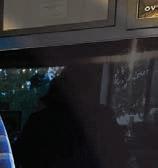



What a welcoming town this place is. Certainly, compared to a lot of things that went on in New York, where I was based all those years,
AHEAD







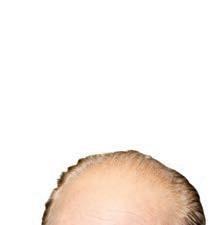
















and spending a lot of time in LA. Being invited onto the mayor’s Music Council by Mary Ann McCready and Karl Dean. Realizing people were actually rooting for our success, because the town needed Warner back and strong. We’re competitors but generally do a damn good job of putting company hats aside for the betterment of this genre. That was eye-opening.
I kept my mouth shut a great deal the first year on the CMA board, because I didn’t want anybody to think the New York distribution guy was going to come in and tell anybody how to do business. Eventually, you have put a stake in the ground and give a point of view. They let me; then they encouraged me. Then, I’m in leadership at the CMA – not because I had any plan to do that, but because I realized I could help. For instance, leading the [CEO] search process. Look what it led to. The stability with Sarah Trahern at the helm has been crazy wonderful.
Because of the relationships artists have, I learned a lot more about radio. I’d take rock or hip-hop artists on station visits, and as soon as they got their No. 1 record, they forgot what visiting a radio station meant. So, watching Kenny Chesney walk into the radio room at a stadium show, know names and recount stories about everybody ... seeing Blake do that ... and thinking, all these years later they’re still doing it. That’s pretty fantastic. I never became the promo guy who called someone to say, “Would you please play the record?” But it was implied, because they saw that I meant business. Also, the songwriting community. My first No. 1 party was for “Hillbilly Bone,” and I had no idea I was supposed to go to the podium. “Now speaking for Warner is John Esposito.” Hence my famous – or infamous
streak of f-bombs began.






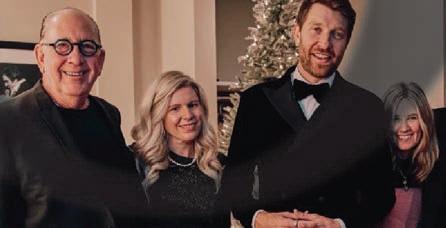





I thought I was going to a cocktail party! What the hell is all this, and who are all these people?! But the amazing interaction between competitors when we win is incredible.
Something else I enjoyed was the changing of the guard, artistically. When I started, a lot of artists were coming out of contracts around town and knocking on my door, but I couldn’t have my reputation built on signing icons. I had to show I could break new artists. And I was noticing how changes started being allowed. Sam Hunt, as an example, was a sea-change in terms of sound. The accordion goes in and out over the years, and I hear a lot about needing more traditional sounds now. But I think, no, what we need are geniuses with great fucking songs.
You weren’t initially tasked with revamping the roster (see sidebar). How did that happen?













































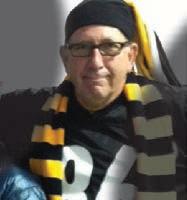




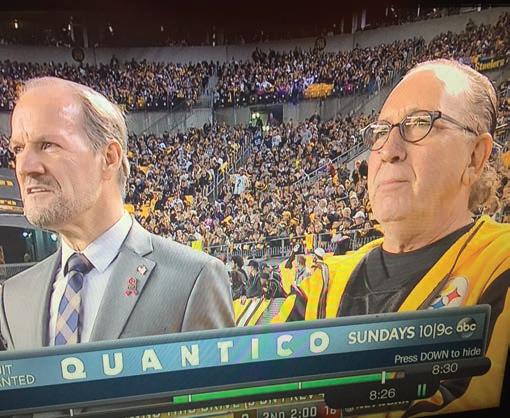



















I remember thinking that the last thing I can have an opinion on is A&R. I know what good music is, but I was relying on Scott Hendricks and Cris Lacy to know what would work in mainstream Country radio. And I watched both of them have their musical vocabulary expanded, because I didn’t know what we weren’t allowed to do. I just kept pushing them on artists. Some of them stuck, and some of them didn’t, but I watched an almost organic shift to what I think is the most diverse roster in town.
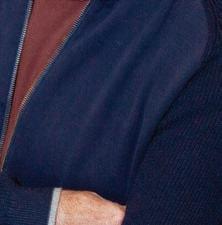
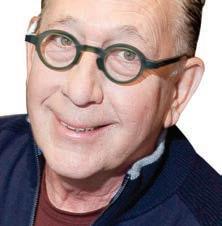

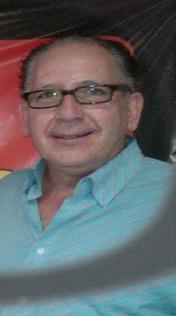
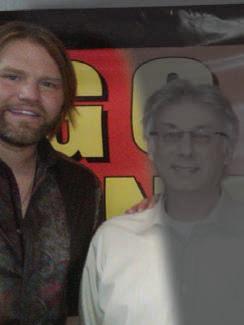
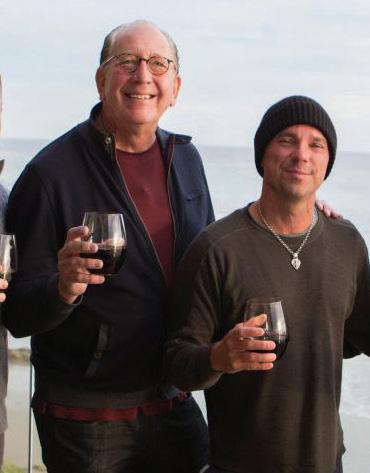
If you look at the No. 1 records we’ve put on the board in the last five years, none of them reflect anything our competitors have done. I remember being prodded by a journalist about breaking some female artists and was asked if Country radio was more open to them. No, I said, they’re beating us up with every damn day of the week. We just happened to have the right gals on our roster. I never believed in that goddamn tomato story, anyway.

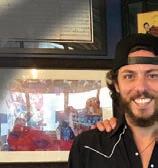
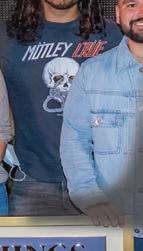
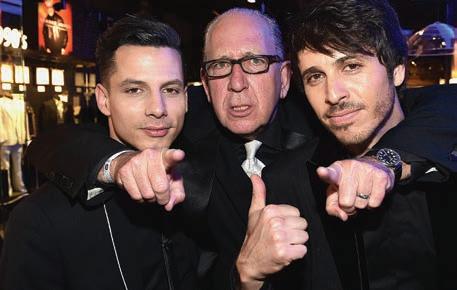


What is country music getting right, as an industry, and what are its challenges?
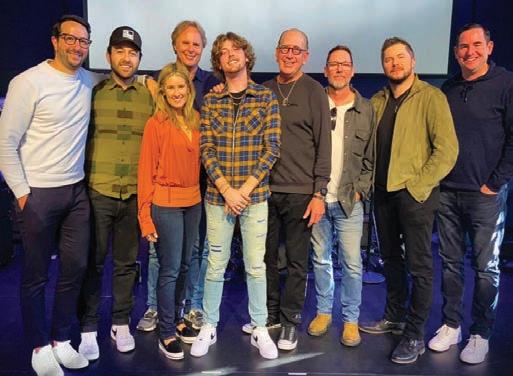


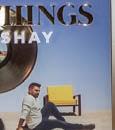
From a top-line standpoint, the music business is having a lot of success. Streaming is allowing for more ears, subscriber rates have gone up, and people are diving into catalogs where previously they had to buy CDs or downloads. Catalog’s a huge part of what’s keeping this industry growing at the level it is. That’s wonderful and means somebody did a great job in A&R some years ago. But if you
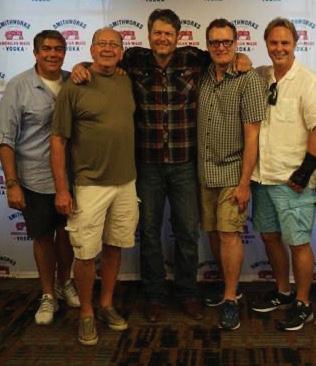
PAGE 17 • OCTOBER 2022
–
look at the streaming track equivalent album ... AND
they all want to know how this shit then CMA I search Trahern the lot they into the radio room at a stadium promo record?”
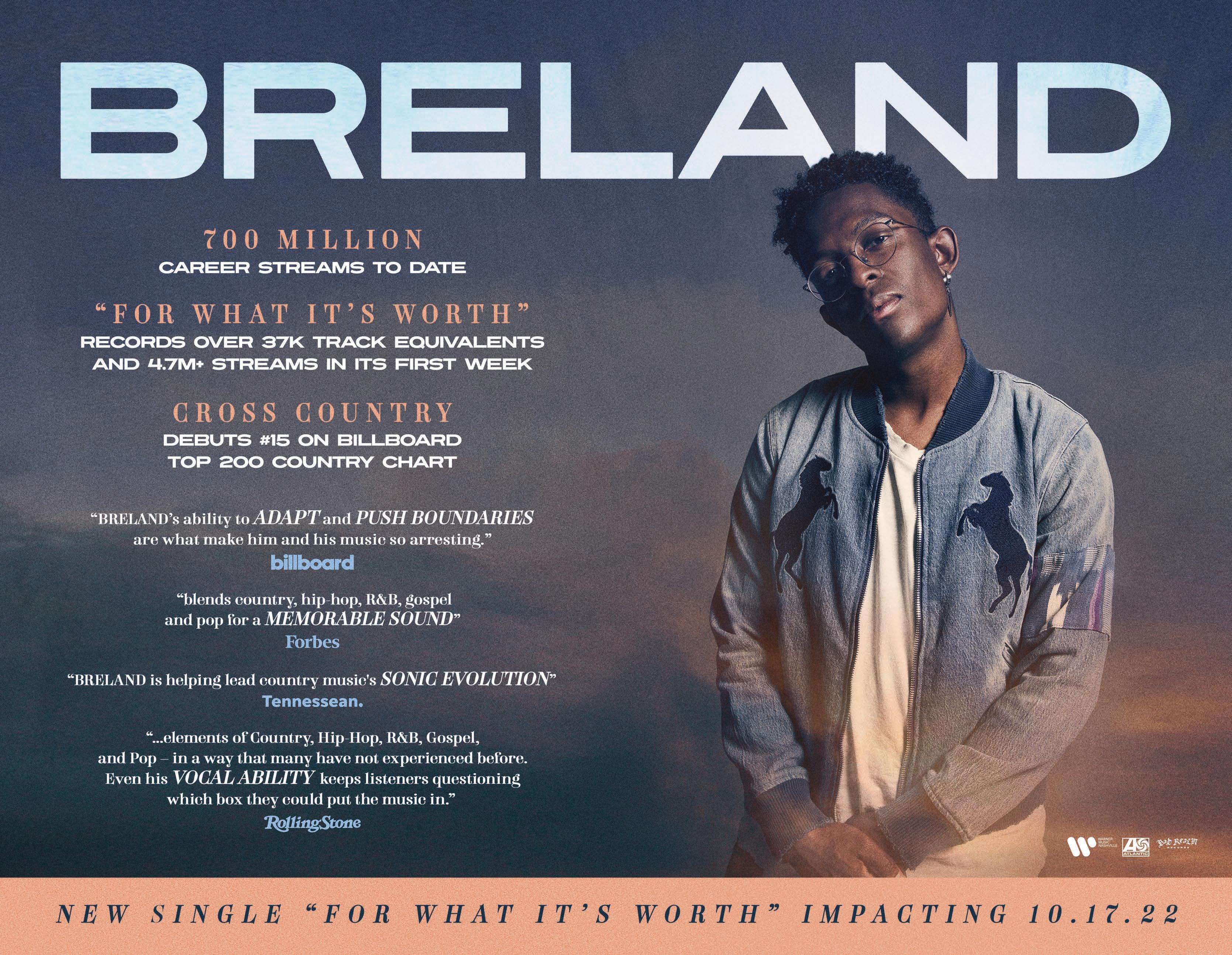

Former WEA Corp. executive John Madison: “He was COO at [music retailer] The Wiz, which is where I met him. I was the relatively new president at Polygram Group Distribution, which was growing at an exponential pace at the time. At a dinner with a bunch of execs before the NARM [National Association of Recording Merchandisers] convention, I got to see him operate, talk to him and get to know him. He thought he was the king of music retail – real hot shit. He didn’t know the business of music, but he was clearly a music junkie. He knew everything about music and musicians, and he played guitar. I didn’t think he was any good, but he had that love for it. I really appreciated his arrogant, passionate style and wanted to hire him. I tracked him down that evening and, knowing he liked champagne, got a bottle of Dom so we could visit. I told him I was offering him a job at PGD. He asked, ‘What’s the job?’ I told him I didn’t know. ‘What’s my title?’ I don’t know. I just wanted him on the executive team, and we’d figure out the details later, but he’d at least be making the same money he was at The Wiz. ‘What am I supposed to tell my wife?’ I told him not to make his problem my problem. ‘There’s a great position and future for you if you accept.’ I don’t know what he told his wife, who I’m sure had the same questions, but he got the support he needed and accepted the next morning. Eventually, he was named VP/Catalog Sales – the first in the industry. All the other companies followed suit, but we just made it up because we needed it and I wanted him on the team.”
PAINTING AIR ABOUT ESPO

share stories and thoughts about John Esposito.
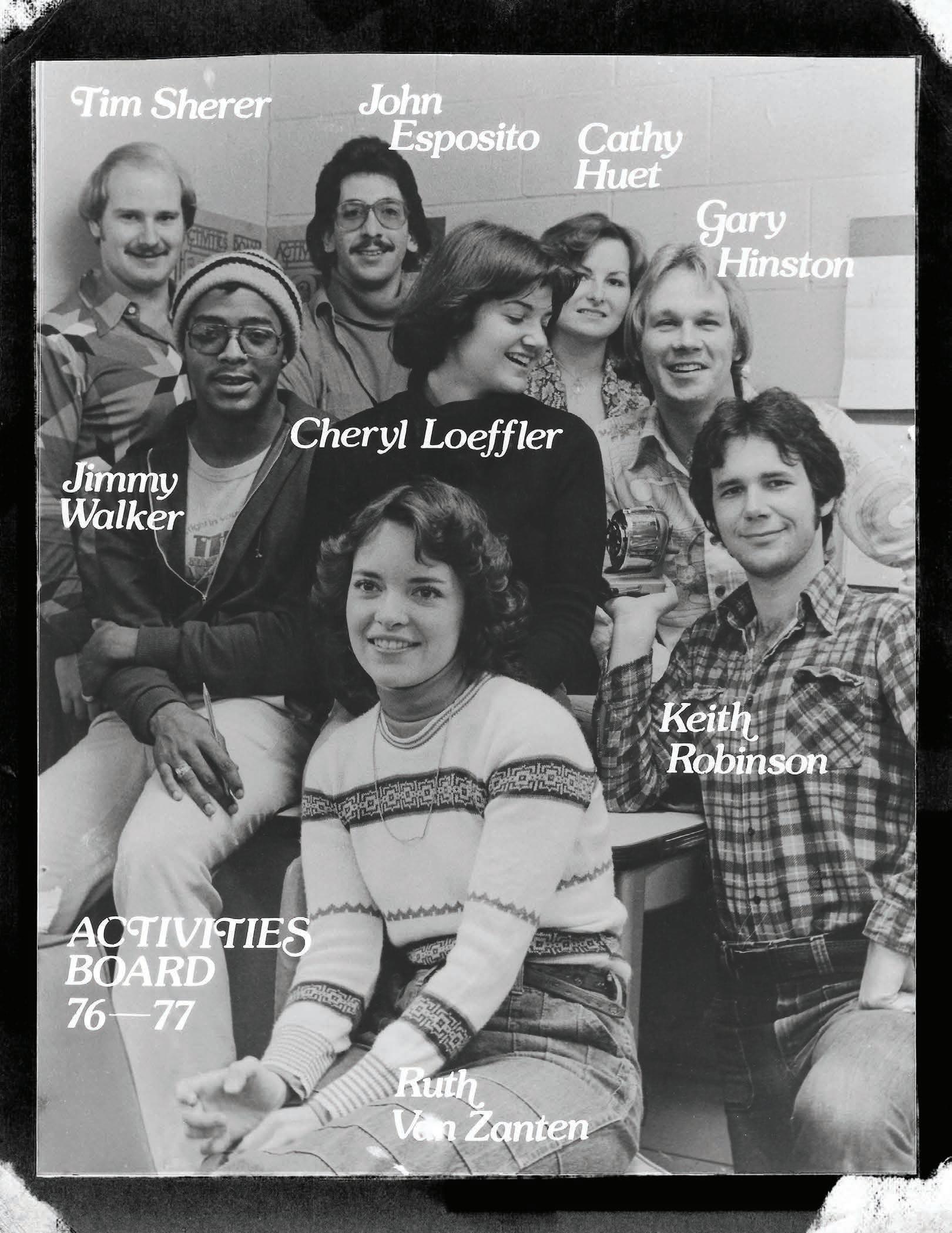
if it hadn’t been for his leadership and passion. Through those successes and many other things, I consider Espo to be one of my best friends.”
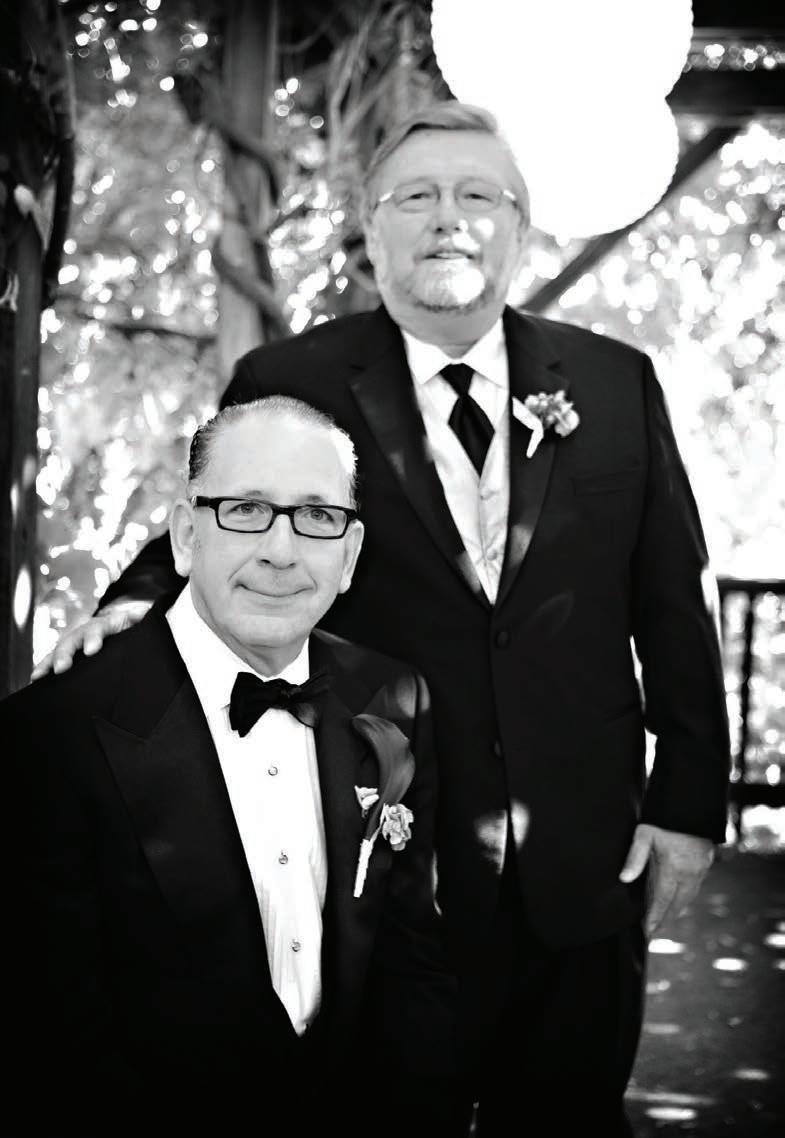
CMA CEO Sarah Trahern: “I first met Espo in 2009. He had justcome to town – Chantel wasn’t living here full time – yet they were together at a 12th and Porter showcase for an artist we were working with at GAC. His enthusiasm and passion for music and artists was evident that first night.He jumped into the deep end in our community and never looked back. While the last 13 years seem to have flown by, 2016 was my favorite, as he served as CMA Chairman when we celebrated the 50th Anniversary of the CMA Awards. There were many milestones that year, but one of the key ones was the production of our ‘Forever Country’ music video and track. Espo’s astute leadership of the board and passion for the project made sure it happened ... certainly one for the history books. I know I speak for so many when I say I look forward to celebrating this next chapter with you, Espo! Congratulations.”
John Oates: “Espo and I moved to Nashville around the same time. I met told him I was working in a studio 100 yards from the Warner building making
Blake Shelton: “Within a month of John Esposito getting the job as the President of Warner Bros., I was playing the Grand Ole Opry. I didn’t live in Nashville anymore and wasn’t in town that often, so John wanted to come to
him in the booth with Sam while he was playing so he could have somewhere offered to help, and I signed a deal with Warner/Elektra through my imprint. I wasn’t officially part of Warner Music Nashville, but Espo adopted me into
How It Started … How It’s Going
ESPO: LOOKING BACK
sales in any given week for a No. 1 record, it’s so far down from what it was even five years ago ... let alone 10 years ago. I don’t necessarily think that’s a bad thing, but it changes the business model for everybody.
I lived in an era when, if you didn’t have a million in the first week, you were not successful. Now, that was in hip hop and rock, but even in country, Blake Shelton records were having 400,000 unit weeks. Now [an all-genre No. 1 album] can have sold 45,000. That challenges executives to ask, “What’s the business model, and how do we capitalize?” That’s not necessarily a bad thing. What bothers me is that country was at almost 14% market share for many years, and we haven’t gotten back that in 12, 15 years. We’re actually running around 8%. We have to figure out how to have bigger market share than we do today.
Has the advent of streaming flattened out the business even as it grew it?

If not for streaming, we might not even be sitting in this office. After 14 years of music business decline, I don’t know how many more jobs we could have cut and
still had viability. Streaming has given us the life blood to find and sign Bailey Zimmerman, Avery Anna, Cody Johnson and more. So, I certainly wouldn’t blame it on streaming, and I don’t blame it on Country radio. If there’s one thing I encourage everybody reading this article or involved in this business to be, it’s brave. We need to take chances. People get into job-security thinking more than move-the-needle thinking. That’s not just country music, that’s the music business.
Is radio not moving the needle enough?
The reason we made the restructuring in radio was because of how few decision makers there are. You’ve got 160 reporting stations and arguably 50 or 60 who actually program. Massive No. 1 records are wonderful, but developing artists is our future. It’s harder to break a new artist when very few people will step out and be brave. I don’t pay enough attention nowadays to the other genres for comparison, but I believe it’s kind of the same thing. That puts the weight on companies to focus so much on streaming and digital marketing. It’s working, but Country radio still has the opportunity to have a bigger impact.
I was in a meeting yesterday and was told about six
stations that are starting to program based on streaming. I thought, “Well, we’ve only been preaching that for the last six years.” And it started with, “They’re not the same consumer,” but we can show you data that they are. That’s not the only lever, but it’s a big damn lever. We’ve got to solve this; we’ve got to allow for more decision makers who respond to that, or we’re going to have to put more resources into other areas where we generate income. Ultimately, that’s not great for everybody.
Somebody in radio told me they can’t keep using the same faces on their billboards. I agree! Let’s put our money where our mouth is and take chances. I do not believe in the demise of Country radio. And I do not believe that we have to be at odds with streaming services. Can’t we all just get along?
What will you miss? What won’t you miss?
The answer to both is probably the same. Walking around CRS, I felt like I had a hat on that said, “I can sign you.” So, I won’t miss all of the weirdos who’ve walked up to me with their cousin – lecherous old men with an attractive young woman and a CD. I won’t miss that. But I will miss that feeling of walking around town and having people think, “He could change my life.”
CAC
Colleagues
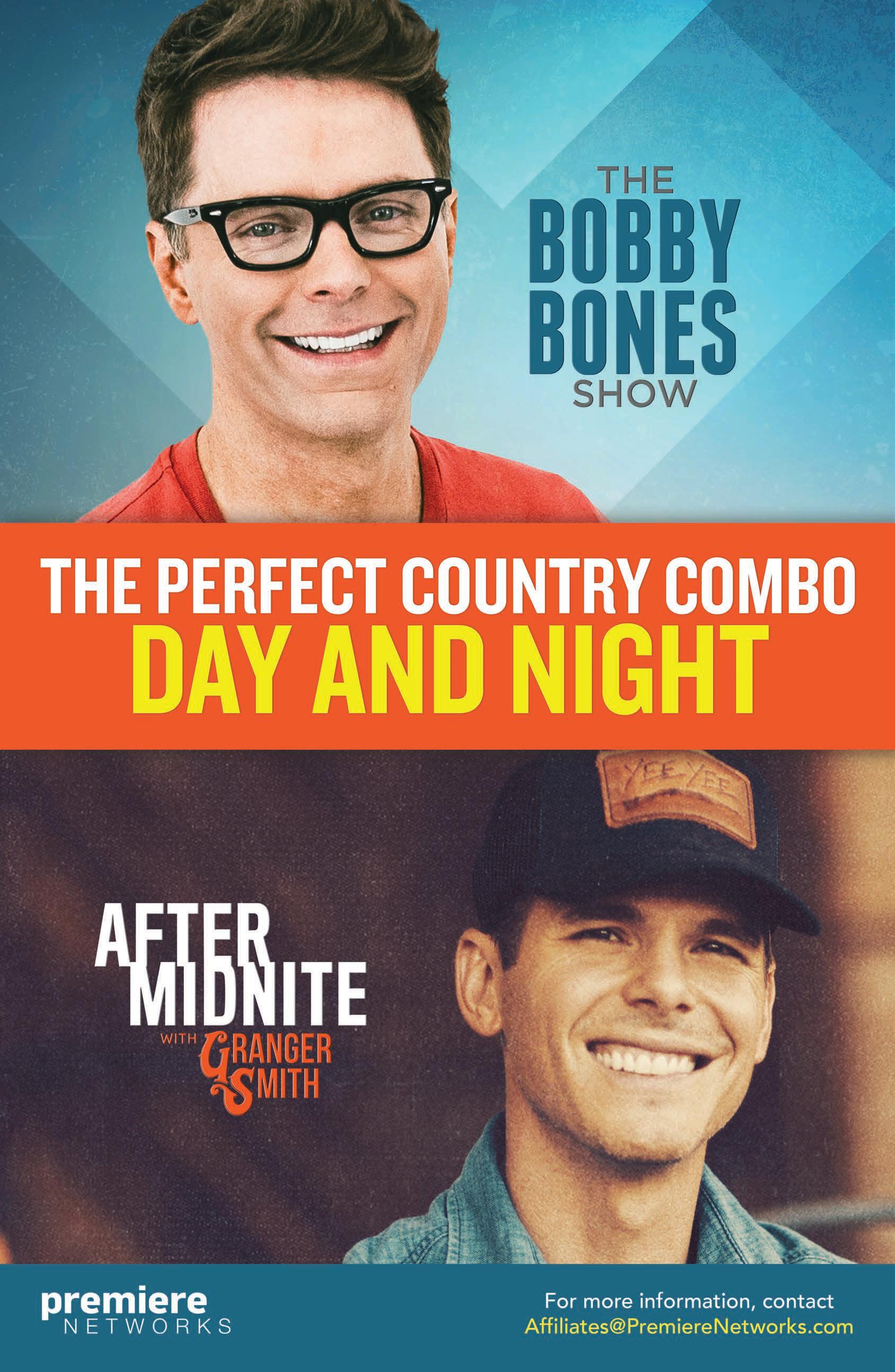


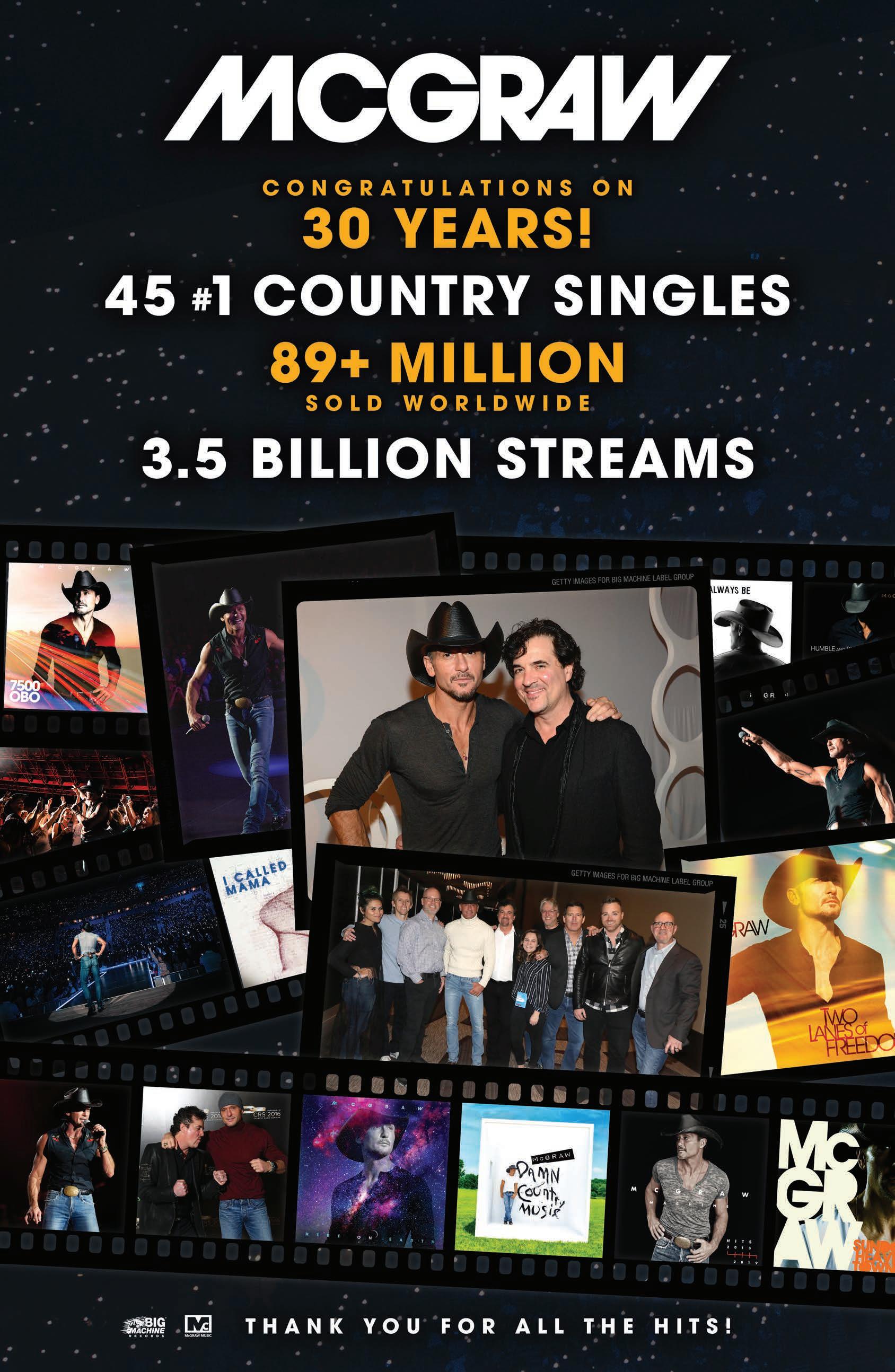
TIM MC GRAW

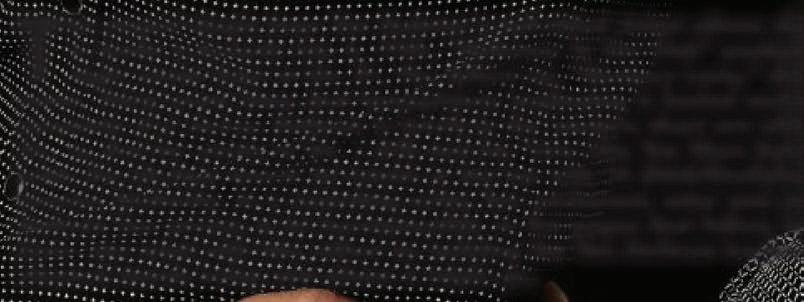
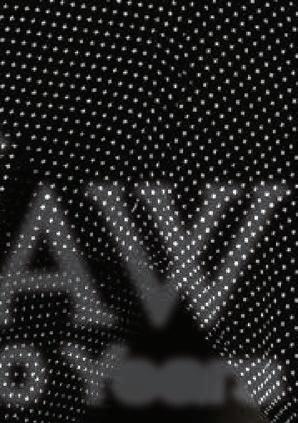
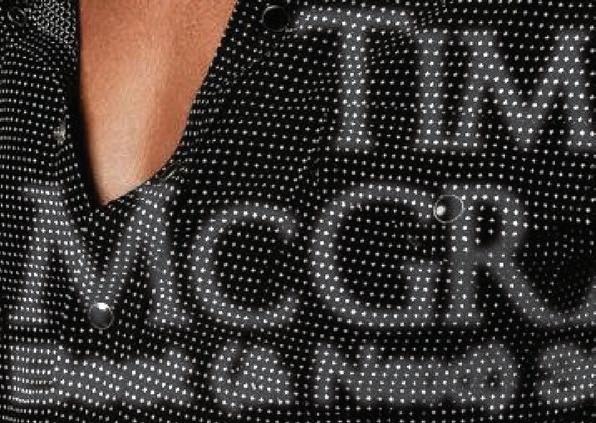

Best (& Next) 30 Years
The second single from Tim McGraw’s self-titled debut album charted in Radio & Records Oct. 2, 1992. “Welcome To The Club” peaked eight weeks later at No. 31. The follow-up, “Memory Lane,” did worse. Thirty years later, that inauspicious beginning is buried under a mountain of a career. McGraw is fourth in the modern chart era with 32 No. 1s, first for weeks at No. 1 (73) and his “Live Like You Were Dying” holds the all-time record for weeks at the top with 10 (R&R/Mediabase/ Country Aircheck). As a recording artist, live performer, actor and more, McGraw has proven to be incomparable. In the pages that follow, he and those who work with him reflect on building the Tim McGraw business, where it stands today and where it might go.
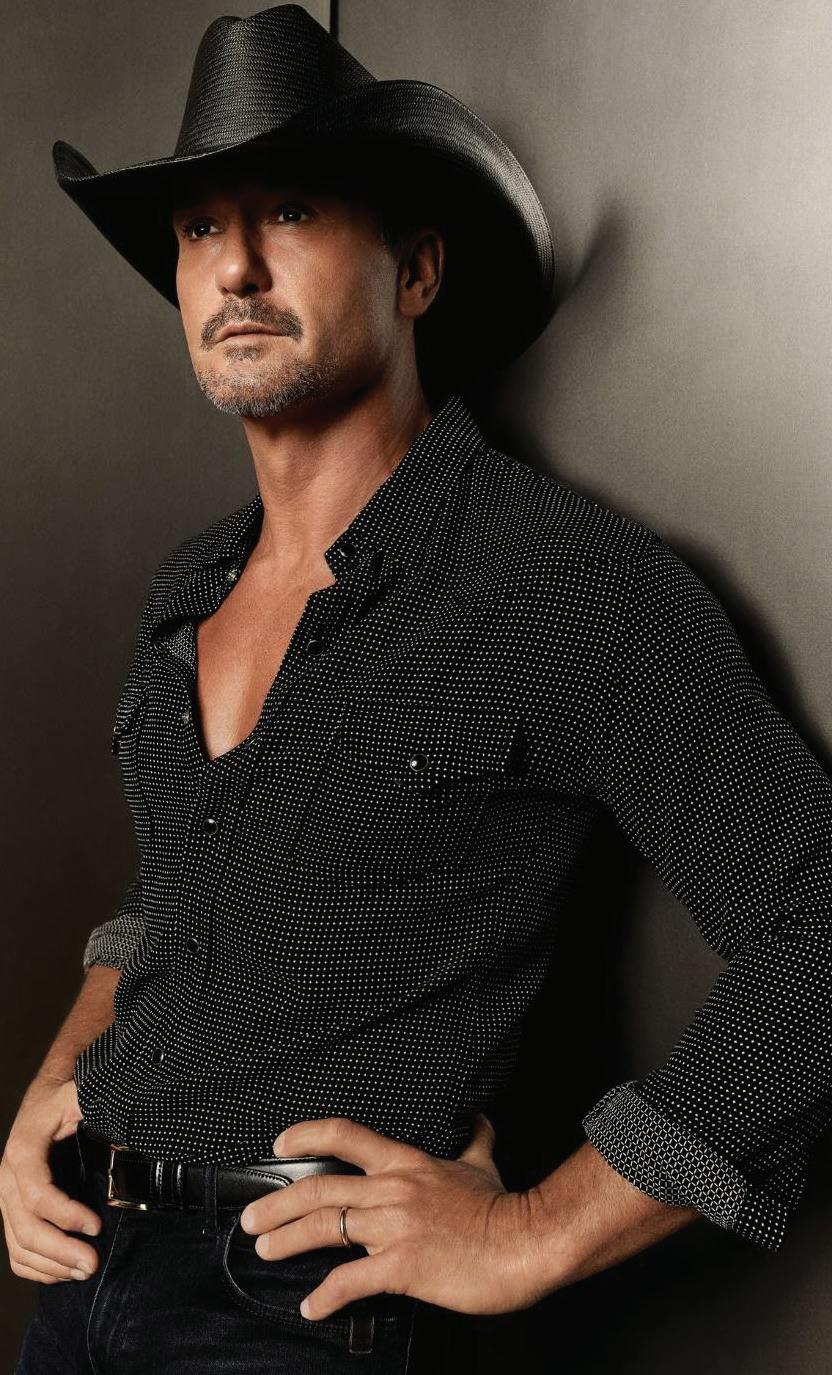
PAGE 25 • OCTOBER 2022
WHEN YOU THINK TIM Mc GRAW

Industry pros share thoughts and stories about McGraw.TIM M
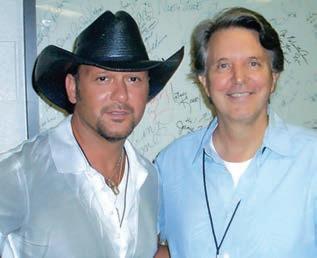
Bullseye’s John Hart: “We were putting together our annual WXTU/ Philadelphia Fall Listener Appreciation Show in 1992 with Brooks & Dunn confirmed to headline. I was filling out supporting acts when Mike Borchetta pitched me a young man named Tim McGraw who was coming off three prior singles – none of which we played. I told Mike that Tim was not a good fit since he was unfamiliar to our audience. In true Borchetta fashion, he pulled out his trump card: ‘He is Tug McGraw’s son.’ What?! The well-loved pitcher for the Philadelphia Phillies? So, Tim got an instant invite and took a lead position in our promos. After the show, it looked like a thousand people were in line for Tim’s autograph, and Mike says that show played a major part in getting Tim’s contract renewed at Curb.”
Guitar tech John Prestia: “In nearly 24 years of working for Tim, I’ve seen him have compassion and care for people around him numerous times, from those working for him to strangers. He has open eyes and ears to walk through the world, and whether it be to help in a medical situation or emotional highs and lows, Tim offers his concern and solutions over and over. When I lost my sister, I got a call as I was driving to Florida, and it was Tim offering condolences and comfort along with words of wisdom and life affirmations for as long as I wanted to stay on the line. Tim shows up and gives not just financially, but of himself, his time and his love of life.”
Former Curb VP Mike Borchetta : “Tim was referred to me by my good friend, legendary Capitol promoter and executive Bruce Wendell. He was approached by Tug McGraw, who handed him a tape and said it was his son. Bruce explained he didn’t know anything about country but would tell his friend in Nashville about him. When Bruce called, I told him our roster was at its limit, but would listen as a courtesy – no chance of a deal. The following Monday, Tim comes in unannounced with a cassette in hand. He walked by the receptionist into my offi ce, and I asked him to please wait in the lobby. When I got off the phone, I said, ‘Come in, kid,’ which was very rude of me. I told him to leave me the tape – that I would listen and call him. Tim asked if I would listen right then, and halfway through the fi rst song, I hit stop, turned to Tim and said, ‘You have a contract. As of right now, you are a Curb artist.’”
CAA’s Rod Essig: “I remember early in his career we worked 18 days in a row, four of which were two-show days. The difference with Tim is he’s been involved spot-on, day-in, day-out. I clear dates directly with him. He knows exactly where he is, what he’s doing and when he’s available. It makes it so easy. Then there are days he calls and says, ‘What can I do for you?’ No one does that.”
Dancehall Doctors acoustic player Bob Minner: “Years ago, we were playing for a major company at their retreat, which was set up like an old Western town. We had finished sound check and were waiting around for the show when we noticed a helicopter coming in by the tree line in the distance. We soon found out one of the executives had lost his life on an ATV during a preconcert group ride. We didn’t do the full production show, but they asked if Tim could perform some songs and speak to them later in the cafeteria area. With a couple acoustic guitars, we gathered informally in the dining room area with 40-50 people who had just lost a friend and were understandably emotionally fragile and in shock. I watched Tim comfort them and say the right things in this difficult moment – no easy task. He connected in a way that was genuine, honest and compassionate, bringing comfort and hope to people he had never met before; he made them feel they had known him forever. His ability to meet someone and make them feel instantly at ease is a gift and is the difference between being a performer and a country music legend.”
iHeartMedia/Minneapolis OM & KEEY PD Gregg Swedberg: “My daughter was born the day Tim played the Minnesota State Fair. I had lunch with Tim and a bunch of his people that day, and he was enamored with the fact that he

had just become a new dad. He offered up all sorts of details of homelife and feeding routines and how cool he thought it all was. Tim was just so happy and tired at the same time; it was one of the first shows he did after Gracie was born. I found out for myself how great fatherhood was that evening, as I missed the show at the fair to watch my own daughter being born.”
CAA TV/movie agent Brian Loucks: “Tim started his acting career with a small role in [the film version of] Friday Night Lights. He and I loved the script, but this was a small, emotional role, and we did not know how he would appear on the big screen. Director Pete Berg screened an early cut of the movie for Tim, Faith Hill, Billy Bob Thornton and me. I was sitting next to Faith during the screening, and we were both overwhelmed with emotions watching Tim play the troubled father who had messed up his own life. Tim was incredible in that role, and I knew right then he had a big career ahead as an actor, because he was so natural on the screen.”
EM.co’s Scott Siman: “I remember an artist going up to Tim backstage and saying, ‘Hey, Tim. What’s happening?’ Tim rattled off his workout schedule, some mixes he had to finish, an interview he had to do, a script he was reading. Then Tim said, ‘What’s going on with you?’ The artist hesitated, then said, ‘Well, I guess I need to get back to work.’”

Curb Records’ Mike Curb: “When we presented Tim with a plaque marking a significant chart milestone, I told him something in front of a lot of people – something I rarely say as I’ve been doing this almost 60 years, have had something like 400 No. 1 records and am still working with a lot of great artists. I said, ‘Tim McGraw has the best ability to pick songs of any artist I’ve ever met.’ He’s written a few, though he’s not known as a songwriter, and many of the greats write their own. But he has been able to choose songs that fit him and are so successful that he’s close to having 100 charted records – among them some of the most monumental No. 1s of all time. Being able to tell him that was one of my greatest moments with him.”
Nashville Songwriters Hall of Famer Tom Douglas: “In 2005, Tim asked me to collaborate on the end-title of the movie Flicka, in which he was starring. I flew out to L.A., and as the sun burned down on the Hollywood Hills, I entered the movie set. Tim showed me around, we chatted and worked on some ideas to capture the sentiment of the song. Flicka is a father-daughter love story – complicated, messy and beautiful, just like our lives. Tim has three girls, and I have two, so we had lots of material to work with! Over the course of a couple weeks, the ideas gelled, and I demoed our song ... ‘My Little Girl.’ It’s one of my favorite songs I’ve ever co-written, and Tim’s record with Byron [Gallimore] is a masterpiece that has been sung and performed countless times as the father-daughter dance at weddings.”
Singer/songwriter David Tolliver: “We [Halfway To Hazard] were at the end of the tour with Tim, and when we walked offstage, he told us, ‘I fixed your dressing room for you.’ Tim had taken all our clothes out of our suitcases, glued random things – including clothes – to the ceiling of our dressing room, stapled other things to the walls, turned over the couches, and emptied all the chips and snacks into the room and crushed them into the carpet. It was Tim’s way of saying how much he enjoyed us being on tour with him. Ha! All that said, Tim was and is a great mentor and friend to this day. He has helped us from day one and never asked for anything in return.”
Big Machine Founder/Pres./CEO Scott Borchetta: “How many labels can say they’ve signed an iconic superstar not once but twice?! Our first adventure started in 2013, and Tim had been in a bit of a lull at radio. We immediately reestablished Tim as a force at Country radio. When he left Big Machine in 2017 for a massive deal for himself and Faith, he was the No. 1 most-played continued next page
Country Aircheck: What do you remember about those early singles?


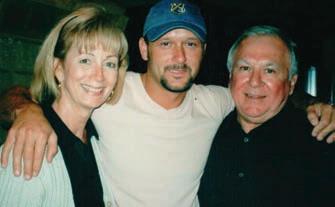

Tim McGraw: I thought “Welcome To The Club” peaked at 38, so that’s better than I remembered. Putting the album together, I was pouring through songs trying to find some I liked. Being a new artist, the label wasn’t that interested in me. I was on my own with [producer] Byron Gallimore and [his wife] Missy. I was getting third drawer songs for a while. [Publishing vet] Herky Williams was one of a few guys who stepped up to give me top-shelf stuff.
I had “Indian Outlaw” during that whole time. [Producer] James [Stroud] never liked it, so he wouldn’t let me record it for the first album. We’d been playing it in clubs since ‘89. It was one of the first songs I heard the night I moved to town –coincidentally, the day Keith Whitley died. I walked with a suitcase and a guitar from the old Greyhound station all the way up to the Hall of Fame Hotel and ended up sitting at the bar with Craig Wiseman, Mack Vickery and Tommy Barnes. We went back to Mack’s condo where Tommy played “Indian Outlaw.”
I remember really liking “Welcome To The Club,”
because I was a huge Shenandoah fan, and it had my best attempt at a touch of Marty Raybon in the vocals. There were some good records on that album. My favorite was probably an old Clay Blaker song that George Strait recorded and I covered called “The Only Thing I Have Left.” We did it way different than George’s version. They let me have the reins on two songs for the album – that one and “Memory Lane.” That’s where I started to figure out how to produce.
Were you watching the charts?
I was. Just having something break into the Top 40 changed everything. We had a van and trailer playing all these B clubs around the country – six nights a week, five hours a night. All of a sudden with a Top 40 record you get a little bus – nothing fancy. Then you’re opening for bigger acts – one-nighters at bigger clubs. It changed the dynamic. But the songs were landing further down the chart each time, so not a lot happened.
When I started to cut the second album, nobody was paying attention. In fact, the label probably thought they had dropped me. I was back to playing clubs six nights a week and gathering songs when “Indian Outlaw” hit. The first two years after that, we did more than 260 shows a year, because I kept every club gig I
had booked. I thought, “I’ll have one hit, and a year from now need to go back to all these club owners for work. If I screw them now, I won’t be able to get a gig.”
So, we were playing these 800 to 1,000-seat clubs, which were overselling. They were setting up video screens and bars in the parking lot, because so many people were showing up. We were making $3,500 a night, then playing arenas on Friday and Saturday.
“Indian Outlaw” peaked at No. 11, and then there’s that legendary New Faces performance of “Don’t Take the Girl.” Did you know walking in that you were teed up for that kind of reaction?
No, I didn’t. I was nervous. I believed in “Indian Outlaw,” because it had been doing well, and I knew “Don’t Take The Girl” was a great song. But at rehearsal that day, the house band couldn’t get the groove to “Indian Outlaw.” The way we’d recorded it was a bit left-footed, and it’s a strange song anyway. The band was doing 30 songs for a bunch of artists, and the way they were playing it was so sterile. I was like, “This is not working.” To the point I almost bailed on the show.
Anyway, we did “Indian Outlaw” and “Don’t Take The Girl” right behind it, and I remember in the middle of the song feeling the atmosphere in the room
PAGE 26 • OCTOBER 2022
With Martha & Mike Borchetta
With Mike Curb
TIM MCGRAW


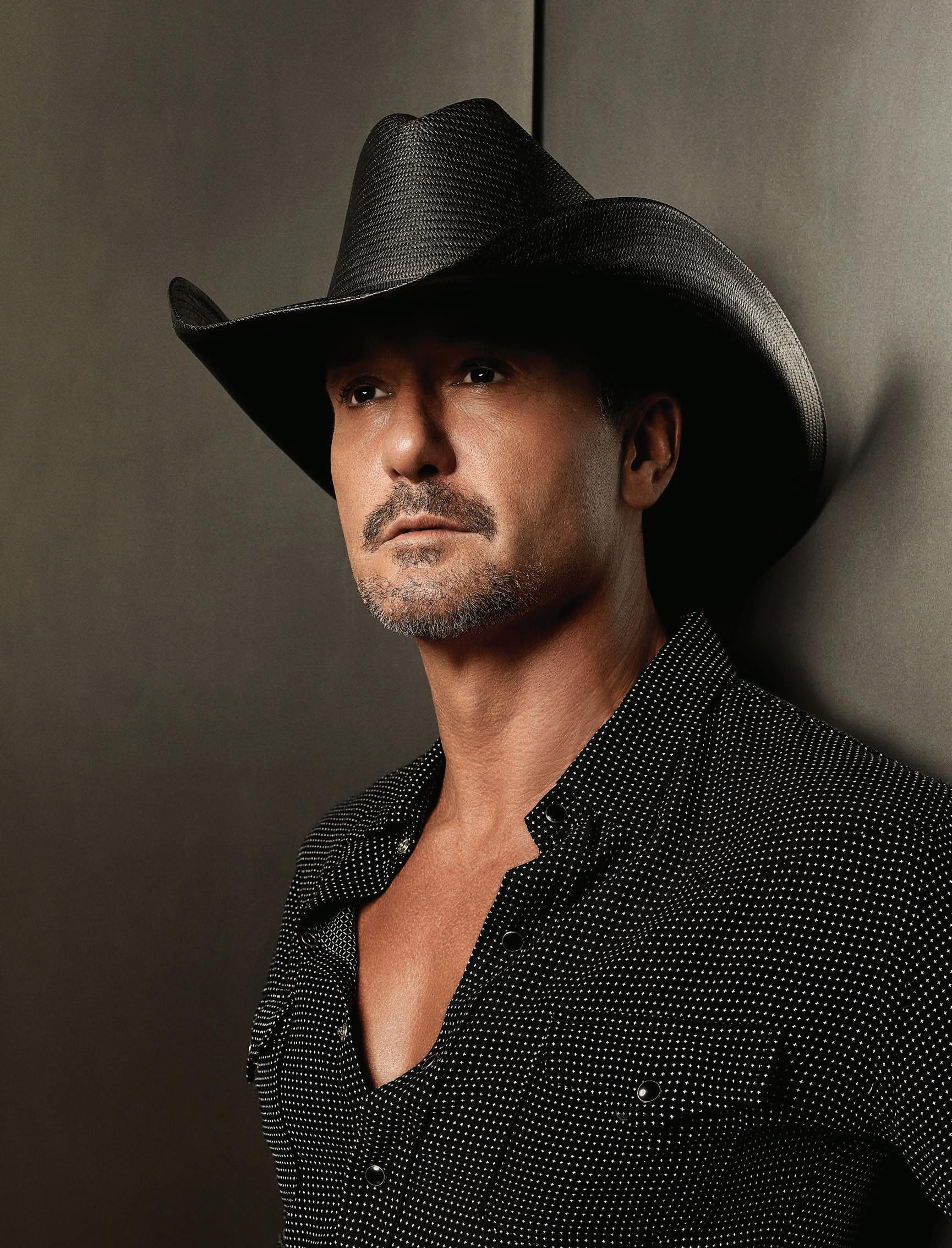
congratulates our client on 30 spectacular years of music, inspiration, and friendship
When You Think Tim McGraw
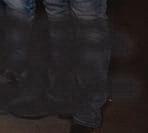
would suck!’ We were heading towards East Tennessee, and I was complaining that there was cold air hitting my legs. Tim told me it would take a while to warm up in the cockpit, so I stuffed my jacket down around my feet and felt air coming in hard. I told Tim, who reached over and casually said, ‘Oh, I think your door is open.’ Great. Just great! We landed at a nearby regional airport, I lifted the door up and slammed it shut, and we took back off for East Tennessee. It was a very nice plane and a beautiful day, but that was the last time I went flying with Tim.” Songwriter Lori McKenna: “Aside from all the blessings the McGraws have brought to the McKennas via songs and friendship, when I think of Tim, I just see him backstage before every show bringing the halls of the greenrooms to life with a pre-show assortment of country songs. He is a living, breathing, singing encyclopedia of country music. I don’t know anyone who knows more songs than Tim. He and his bandmates play for the love of it, and there’s no other way to describe it.”
Button-Down On The Farm: Tim McGraw with staffers from the Big Machine team. Pictured (l-r) are the label’s Jeff Davis, Rachel Burleson, Allison Jones, Samantha Kane and Erik Powell; McGraw; and the label’s Meghan Kane, Scott Borchetta, Mike Rittberg and Kris Lamb.

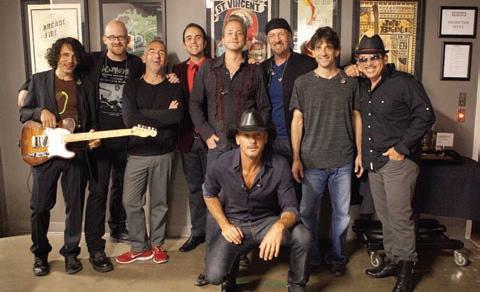
artist at Country radio. He called a year-and-a-half into his new deal and asked, ‘Can I come back?!’ Again, he’d had a bit of a lull, and we immediately returned Tim to the top spot on the charts and continued his historic run as one of the most important and successful artists in the history of the format. I’m always so honored to introduce Tim McGraw as a Big Machine recording artist. Get ready ... the next round is coming at ya!”
EM.Co VP Brian Kaplan: “Not only does Tim epitomize ‘Humble And Kind,’ but his vision for the universality of the song’s message was awe-inspiring. When it started to make its way through the airwaves and beyond, it was one of the most inspirational moments of my career – seeing the countless videos of students and teachers at elementary schools singing the song in their classrooms; the high school and college graduates in robes and caps embroidered with the lyrics; parents playing the song in their cars to instill the meaning in their young children; cancer patients receiving treatments and sharing the song’s message with loved ones; memorial video tributes to family members that have passed with the song as the background; and everyday people connecting with the simple-butpoignant lyrics and their desire for a more kindhearted, thoughtful and gracious world. It made me realize the profound impact an artist and their songs can make.”
Dancehall Doctors fiddle and acoustic player Dean Brown: “For the Tim McGraw And The Dancehall Doctors record, Tim found an amazing studio in upstate New York atop a mountain – Allair Studio – and had it decked out with cool oriental rugs, hundreds of candles, a full bar and a chef. There were even two driving video arcade games synched up side-by-side for the occasional race competitions between songs. Tim flew us out, and we stayed for a week with no interruptions, working day and night for hours. Sometimes, we’d work for a few minutes before pausing to play a game of pool or sit back and click away on these new things called iPods he had bought for everyone – I still have mine! The muse was strong in that studio, and together we created some great music as well as lasting memories.”
EM.co’s Kelly Clague: “I was a pseudo-secretary/calendar keeper who answered phones. Tim was not the biggest artist in the building, sitting in a chair moping and waiting for a single to go up the chart. He would go to lunch with Byron Gallimore, who I’m sure was billing it back to Charley Pride, and Tim would come back and put his leftovers on my desk. We did that once a week for years. One time, his dad Tug came to town, and they all went to Texana. Those leftovers fed me for three months! We were all poor together, but he was generous in that way. And even though that’s where we started, he never looked at me as the one answering phones – he offered opportunity based on merit when I would have been someone easy to slough off. Thirty years later, he’s still the guy who walks in the room and speaks to the wait staff before the executives. ”
The Dancehall Doctors then ... ... and now.
Dancehall Doctors band leader Dennis Hemingson: “Several years ago, we were playing in Sioux Falls, SD, which is about 80 miles from where I grew up. My mom and one of my sisters drove up for the show, and it happened to by to be my mom’s 92nd birthday. That night during the show, Tim announced it was my mom’s birthday. The crew put a spotlight on her, and Tim had the whole crowd sing ‘Happy Birthday!’ My mom was the most humble person you’d ever meet, but she was beaming with pride that night as 20,000 people sang the birthday song. Tim helped make that birthday something really special for her, and it was something she always remembered.”
iHeartMedia EVP/Country Programming Strategy Rod Phillips: “It was my firstever iHeartCountry Festival, and Tim was headlining. After all those amazing acts played their butts off for a raucous crowd, Tim hit the stage around 11pm. It was literally electric; the room lit up in every way possible. Around the time he belted out ‘Live Like You Were Dying,’ he had all of Texas in the palm of his hand. It was fascinating to watch.”
Dancehall Doctors electric guitar player Darran Smith: “Faith had bought Tim a new airplane after he got his pilot’s license. It was a small plane with doors that flipped up like a high-priced sports car. He invited me out flying with him on a cold February day, so I drove out to John C. Tune airport in Nashville. As soon as we took off, I told Tim, ‘Don’t go all redneck on me up here and crash this thing, because I’ll forever be known as the unknown passenger with Tim McGraw. That
Songwriter Lance Miller: “We went on these guys trips to an island, and Tim always liked me to sing old Merle Haggard songs.
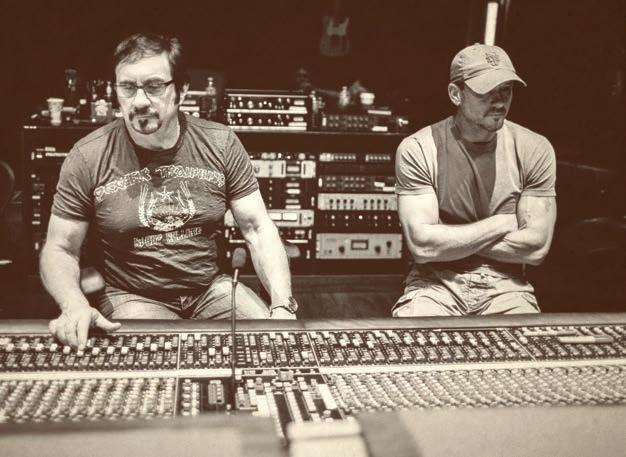
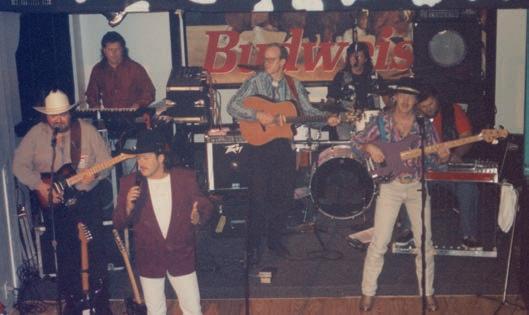
One night, I was out there with the Warren Brothers and Tim and, when I got through singing a Haggard song, Tim got quiet. He leaned back and said, ‘Man, you’ve got a real gift.’ It got serious for a moment, and I said, ‘Thanks, man, I really appreciate that.’ He said, ‘Yeah, if I could sing like you and look like me, I’d have two islands.’ He let the timing sit perfectly to feel sentimental before delivering that one-liner.”
change. By the end, people were standing on tables and applauding. Of course, that that wasn’t the best part of the night, which happened backstage after the show when I got to meet this young lady named Faith Hill for the first time.
That worked out pretty well. That blew me away. I think I forgot what else happened the rest of the night, just when I first shook her hand and looked at her in her eyes ... to the point my girlfriend goes, “I don’t want you to be around her anymore.” She could see it in my eyes.
What do you remember about the aftermath of that performance?
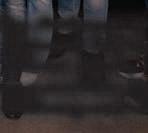
The whole world changed. Radio instantly clamored for the song. From that day forward, every time we played it, the band and I would look around and at each other like, “Oh my God.” It was a paradigm shift where, even
today, that’s not a given. You never feel comfortable –“Oh, I made it” – because you’re only as good as your last record. So, there was a feeling that the song was doing well but, also, what are we going to do next? We had an album full of great material, so we knew we had songs to follow. We also knew they were a little different. I’ve always thought the stuff I did was just a little left of center – not right on the nose. That can be a difficult path to take, but in the long run leads to bigger success.
“Don’t Take The Girl” went to No. 1 in 11 weeks. That doesn’t happen anymore. More like 11 months.


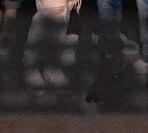
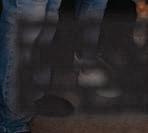
Obviously, songwriters love you. What’s your process for finding songs?
Not a day goes by that I don’t listen to a new song. I also write all the time and, luckily, have written a few that have done well. If I wasn’t so hard on myself as a songwriter, I probably would have recorded more of my songs. I’m not precious with songs, especially ones I write. The song has to win; something has to move me
viscerally. Rarely do I listen to a song twice if I know I’m not going to cut it. Every now and then, I’ll send a song to another artist saying, “I ran across this and thought it might work for you.” I probably hear 1,000 songs for every project.
Missy finds songs for me, and I have great songwriter friends who are constantly emailing me songs – Lori McKenna, Tom Douglas, The Warren Brothers, Tony Lane. As soon as they write something, they send to me – at least, that’s what they tell me. I’m sure they send to other artists, too. And I don’t get caught up in how the demo sounds, which is easy to do. I don’t mind a great demo; it’s nice to have a good platform and somebody singing it well. But a rough of somebody singing what they just wrote over an acoustic guitar – that’s my favorite way to hear a song.
You just had a No. 1 with “7500 OBO.” At this point in your career, is it harder, easier, more exciting or even expected to have chart success?

It’s not expected. Ever. I never assume, and it never gets old. I definitely think it gets harder, especially

PAGE 28 • OCTOBER 2022
With Byron Gallimore
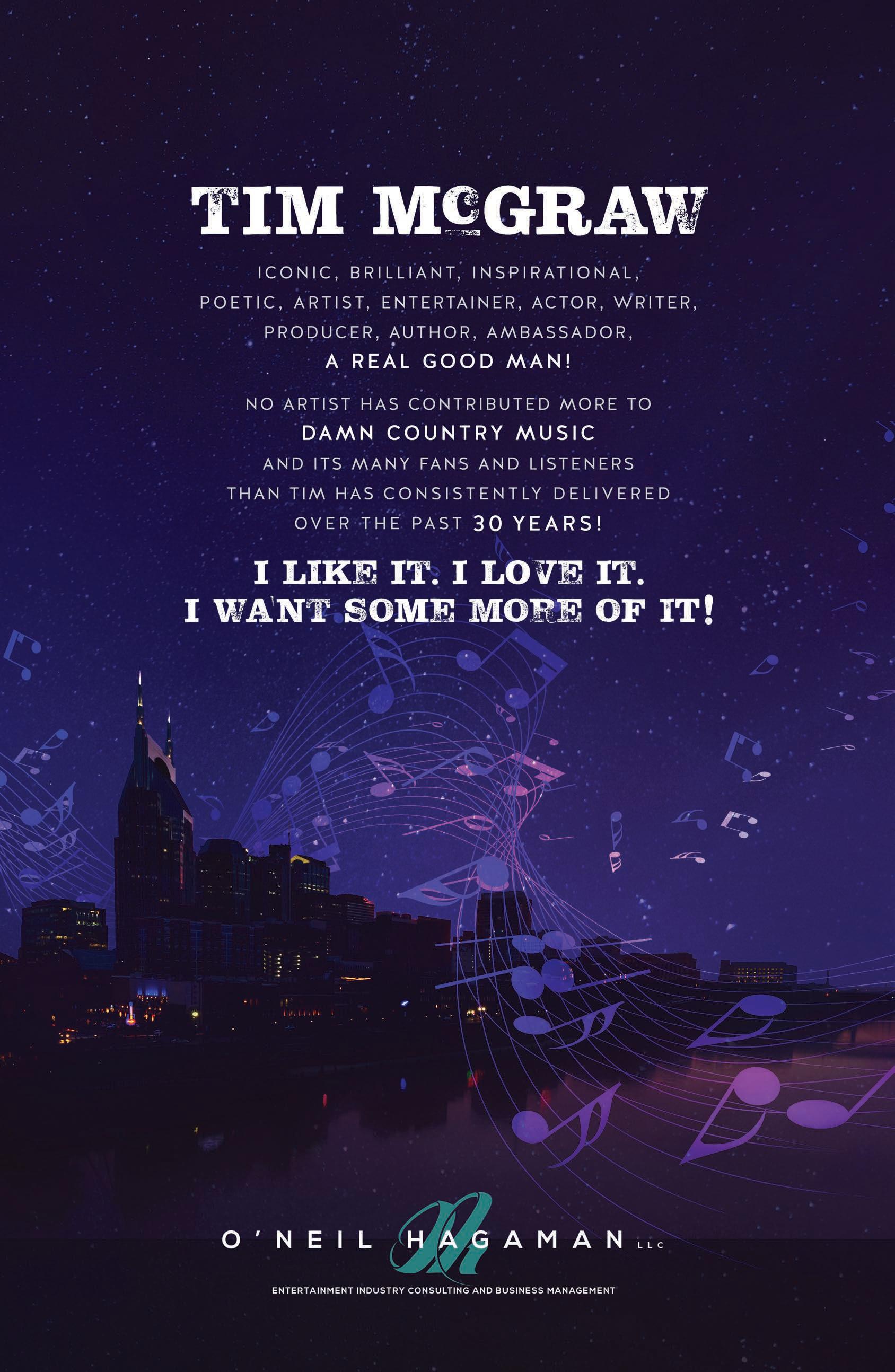
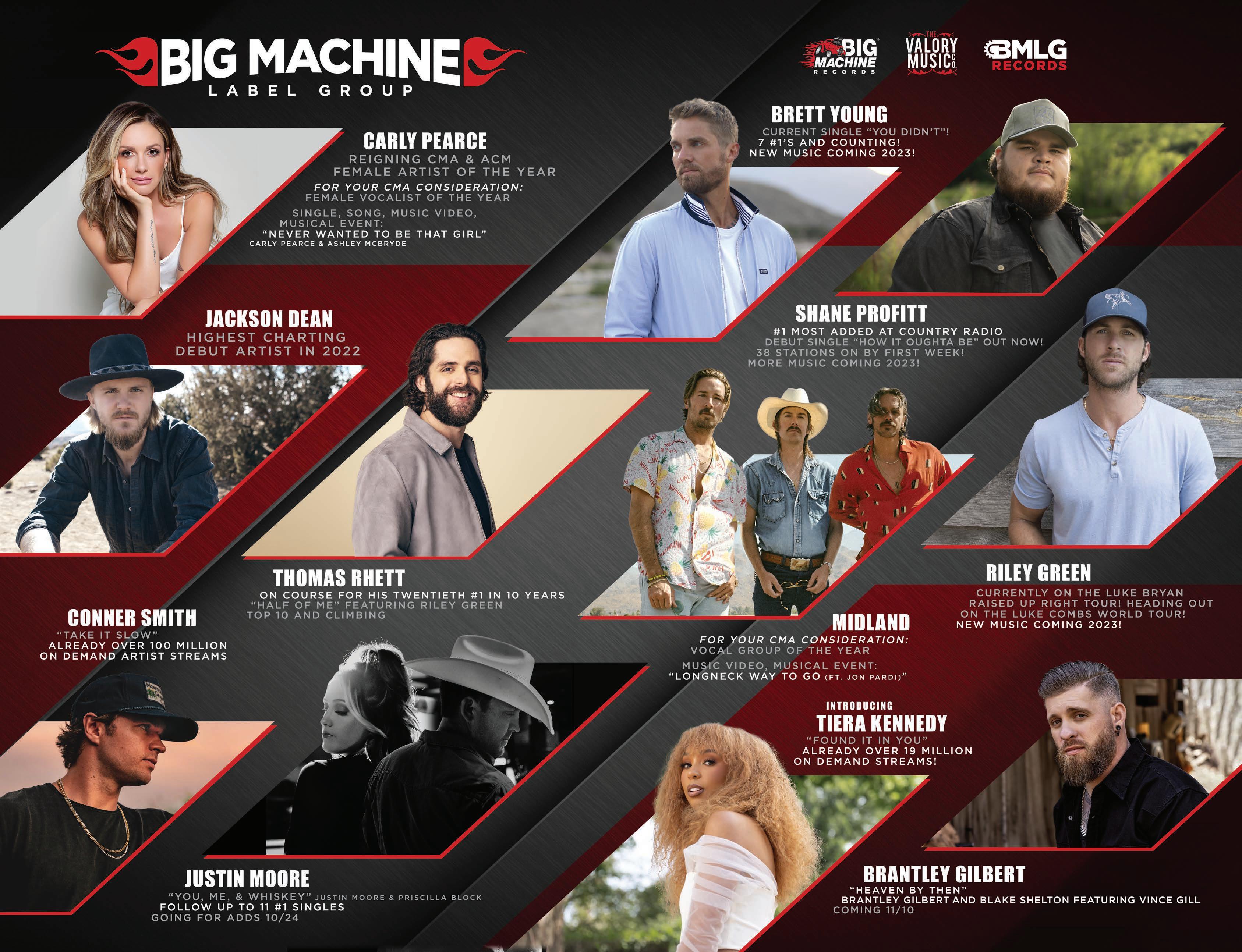

SOMETHING LIKE THAT
after 30 years, because you’re fighting your own career. Everybody wants another “Live Like You Were Dying,” “Humble And Kind” or “Real Good Man.” Yeah, everybody wants those – including me. Sometimes it feels like I’ve painted myself in a corner with songs to the point I can’t just hit a double or single every now and then. I have to hit a grand slam every time, or nobody’s going to pay attention.
Plus, the music industry favors the shiny and new. For sure. That’s part of the business. What’s the saying?
More people look to the rising sun than the setting sun? And every song isn’t going to work. I’m going to keep plugging at getting better and recording the best music I can. I’m always listening and picking up on things I enjoy, but I do it in the context of how I would
R
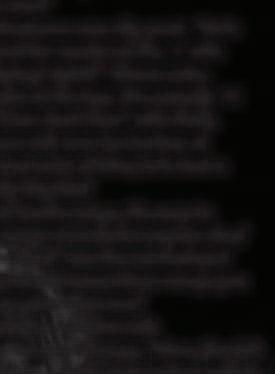
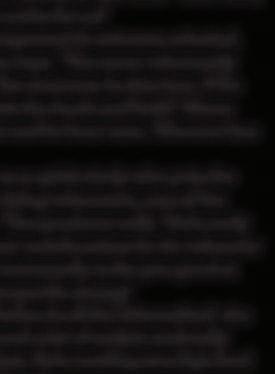
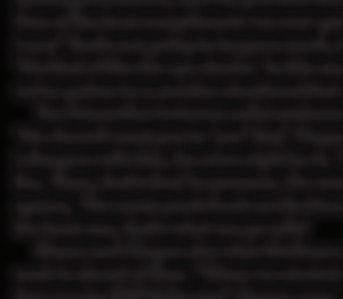
epresenting an entertainer and creator with the career breadth of Tim McGraw requires a unique approach. Led by Pres. Scott Siman and SVP Kelly Clague, the EM.co team covers a lot of ground. As Siman explains, “Managing Tim is like managing four artists – the actor, the author, the producer and the artist. They’re all serious endeavors that require a hell of a lot of time and attention.”

The evolution of McGraw’s career has led to a similar morphing of EM.co’s role. For instance, the 2019 New York Times best-seller Songs Of America. “It’s one thing to do a cute book,” Clague laughs. “It’s another when he turns up with Pulitzer Prize winner Jon Meacham, and I’m like, ‘Well, I guess I need to learn something about history.’”
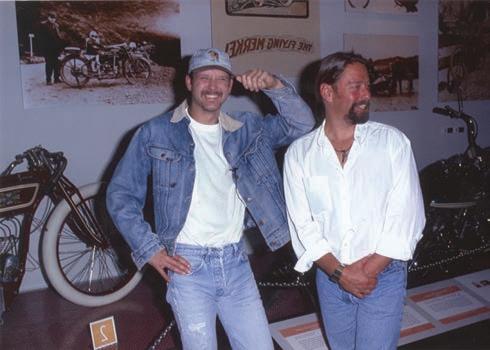
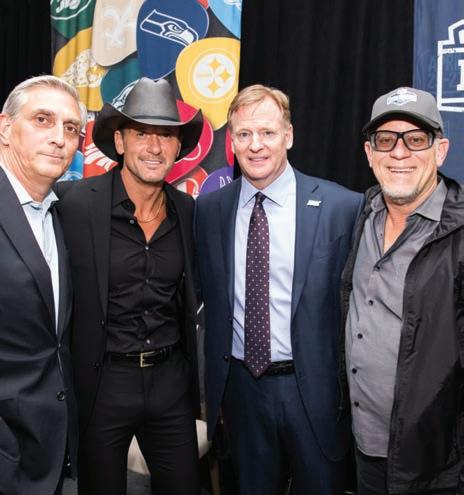
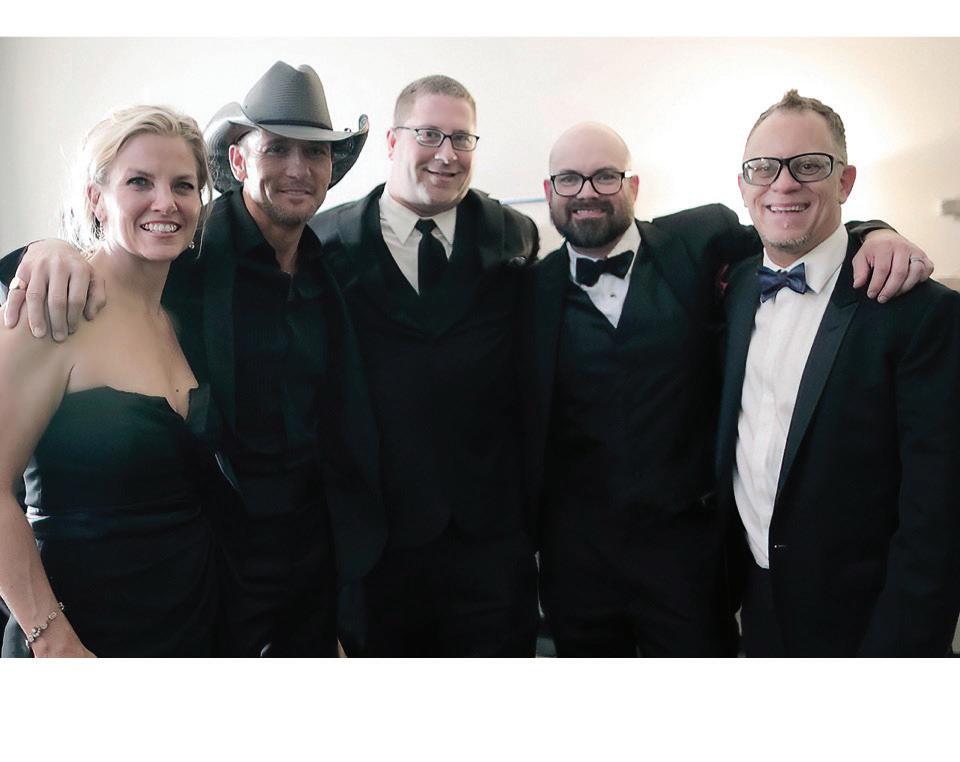
“He’s a real visionary and has a picture in his head,” Siman says. “The challenge becomes, how do you take that vision and turn it into reality? One of the best compliments we ever get from Tim is, ‘That’s exactly what I saw.’ That’s not going to happen much, but that’s the goal.” Clague adds, “It’s kind of like the eye doctor. ‘Is this one clearer, or this one?’ Over time, we’ve gotten to a creative shorthand that works for us.”
The interaction between artist and management is outcome oriented. “He doesn’t want you to ‘yes’ him,” Clague says. “The more vehemently I disagree with him, the more right he is. The converse is also true. If I’m like, ‘Sure, that’s fine,’ he presses. He wants the back and forth.” Siman agrees, “He wants push-back on his ideas and to hear ours. Whoever has the best one, that’s what we go with.”
Siman and Clague also view McGraw as a quick study who puts the work in ahead of time. “When we started doing voiceovers, one of the first was for ESPN Sports,” Clague says. “The producer said, ‘He’s really good at this. There’s a reason you only hear certain actors to do voiceover all the time – being a good actor doesn’t necessarily make you good at voiceover work. But Tim paces well and keeps his energy.’
“He takes the time, pays attention and takes in all the information,” she continues. “Before he started acting, he read a lot of scripts and really studied it. He’s talented, but it’s not just that. He’s working at a high level in all the categories in which he’s doing things.”
The management team aren’t the only ones who see McGraw’s depth of knowledge. Clague explains, “We were on a video shoot – low budget compared to the movies – and he says to the EP, ‘That’s a really great steady-cam you’re using.’ I said to her later, ‘How many artists have you worked with who notice your choice of steady-cam?’
“We all have to raise our game around him,” she says. “When someone wants to send the marketing intern to grab some web content, I’m not objecting out of some star trip. He really knows his stuff. Spending the extra money for the better camera lets him know that we’ve got the best people doing the best possible job. We have to take all this as seriously as he does. What’s fun is it attracts other creatives who also want to work on that level.”
At the same time, McGraw doesn’t take himself too seriously. “There’s a funny story he tells about being on the set of 1883 and observing a scene he wasn’t in,” Clague says. “He started talking to the camera operator about ideas, and the guy goes, ‘I think we got this.’ Tim sort of chuckled and walked away like, ‘Okay, for sure.’”
McGraw has done so much, some milestones can slip past. “He’s got the all-time Country chart record for weeks at No. 1 with 10 for ‘Live Like You Were Dying,’ right?” Siman asks.
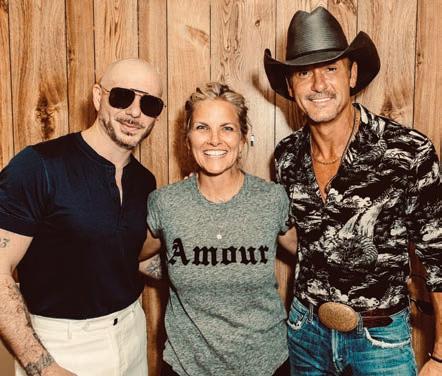
“But that’s not his most weeks at the top. It’s actually 11 at Mainstream Top 40 for ‘Over And Over’ with Nelly.

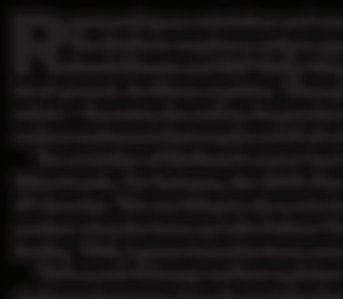
I don’t know if either of those will ever be broken at radio. It’s not just that he’s had a lot of hits; he’s had a disproportionate share of really big hits.”
“When you talk about his most iconic songs, it’s easy to leave out several that would be career records for anyone else,” Clague echoes. “’Something Like That’ was the most-played song of the decade, but you’ll probably name three songs you think are bigger before you even get to that one.”
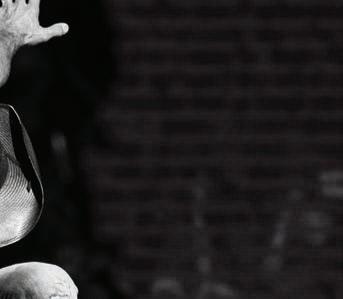
Siman adds, “We’ll talk about his statistics with knowledgeable people in the industry who go, ‘Wow, I hadn’t realized.’ Even just 1883. We get excited about four million people watching awards shows; 1883 had 14 million on one episode. People know it was big, but they don’t realize just how big.”
“Sometimes he doesn’t get the credit he deserves, because he’s Tim McGraw, and he’s got the beautiful wife and daughters – a beautiful life and all these things,” Clague says. “But to be in Emmy conversations while still being successful at radio, relevant in the social media space, touring and performing at his level – he’s in rare air. And he’s still singing to a country audience with a country voice.” Siman says, “He’s elevated country music on a worldwide stage at the highest possible level.”
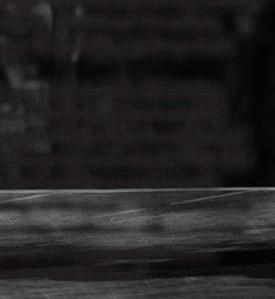
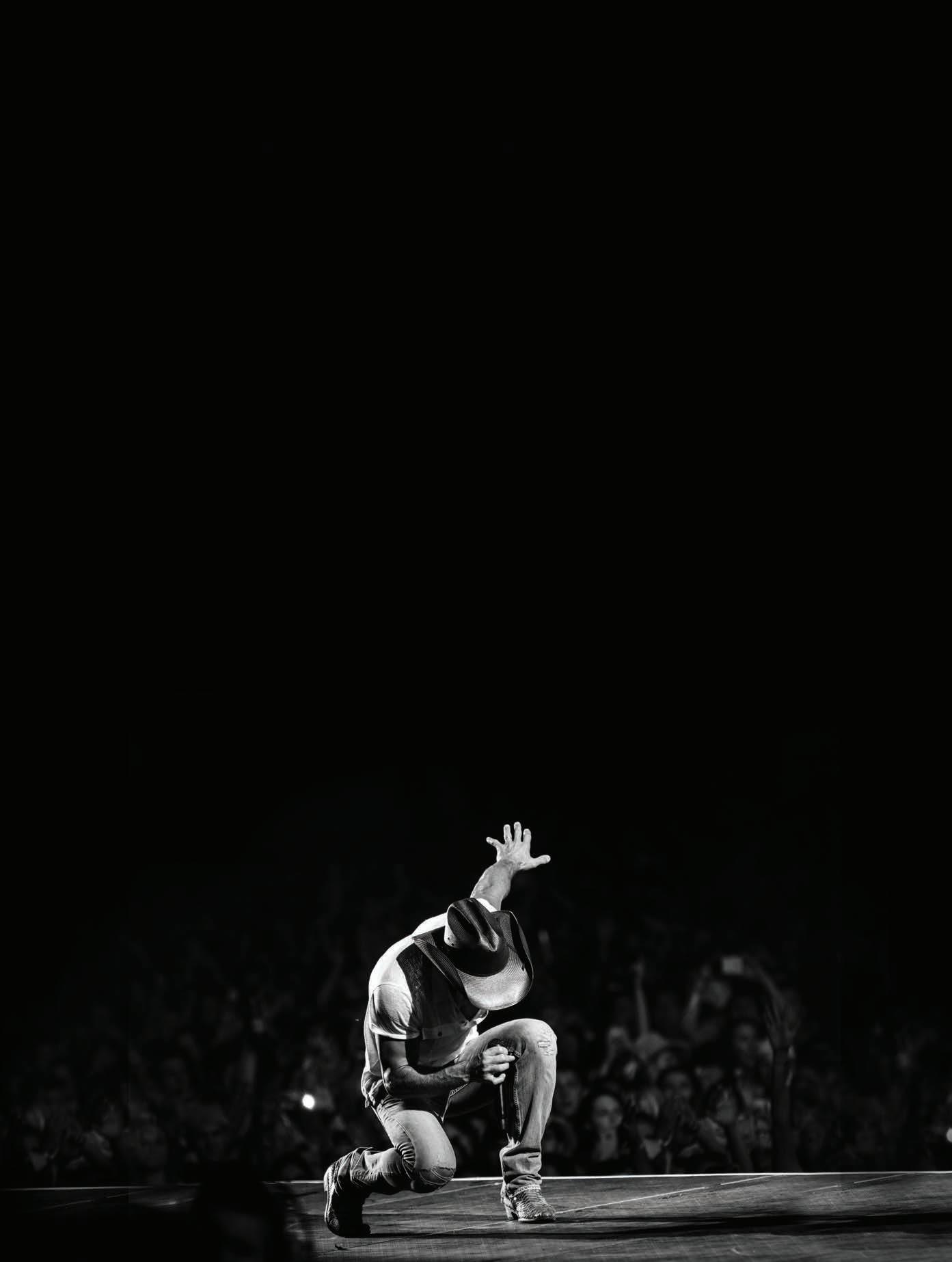
do it. I don’t ever want to be guilty of chasing trends. You won’t catch me saying, “We need to cut songs that sound like what’s on Country radio this week.” I’m going make records the way I make them, and sooner or later, people are not going to want to listen. That’s doesn’t mean I will change the way I do things.
Your career sales are said to be somewhere around 90 million. Does that number really register with you?
No, it doesn’t. And my mind always goes, “Well, there’s some number-fudging going on.” I was around my dad for a bit after baseball, and he would talk about the stats being padded. He’d say, “I’m 5’10”, but 6’0” in the program.”
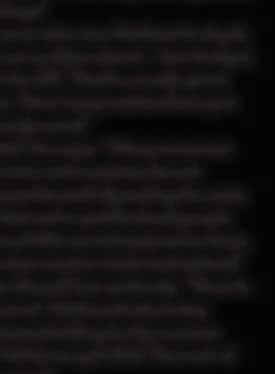
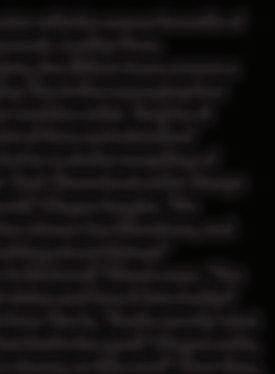
Your career has spanned radio consolidation, the demise of physical albums and the rise of streaming, all of which changed the business dramatically ...
Faith and I have felt very fortunate that our careers
started when records were selling, which is something new artists have no concept of, outside of a few who can do that. When you’re 30 years in, you’re now fighting your own legacy in the streaming world. With a catalog of so many hits, your new song is never going to get as many plays.
Do you pay attention to the business dynamics – radio consolidation, streaming issues, etc?
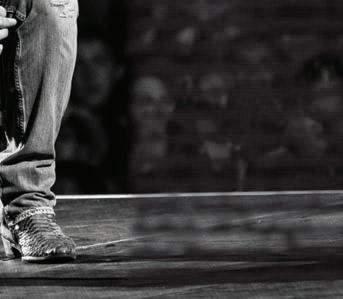


I don’t. I don’t know the calculus of it and, if I did, I think it would drive me crazy. And what good is it going to do me? It’s not going to change the way I make music or put on a show.
In terms of your business operation, do you see yourself as CEO or more like a chief creative officer? Are you on top of head count and balance sheets? I don’t read balance sheets, no. I’m not that business-oriented beyond the big picture. I can get
PAGE 32 • OCTOBER 2022
Tux Yeah: McGraw celebrating with some of the EM.co team (l-r) Clague, Brian Kaplan, James Stewart and Siman.
Pick Is In: Celebrating the 2019 NFL Draft, which he was instrumental in bringing to Nashville, with NCVC’s Butch Spyridon, NFL Commissioner Roger Goodell and Siman.
CAA-List: With Pitbull and Clague (above) McGraw and Siman with CAA’s Rod Essig, Brian Loucks and Richard Lovett (r).
With video director Sherman Halsey
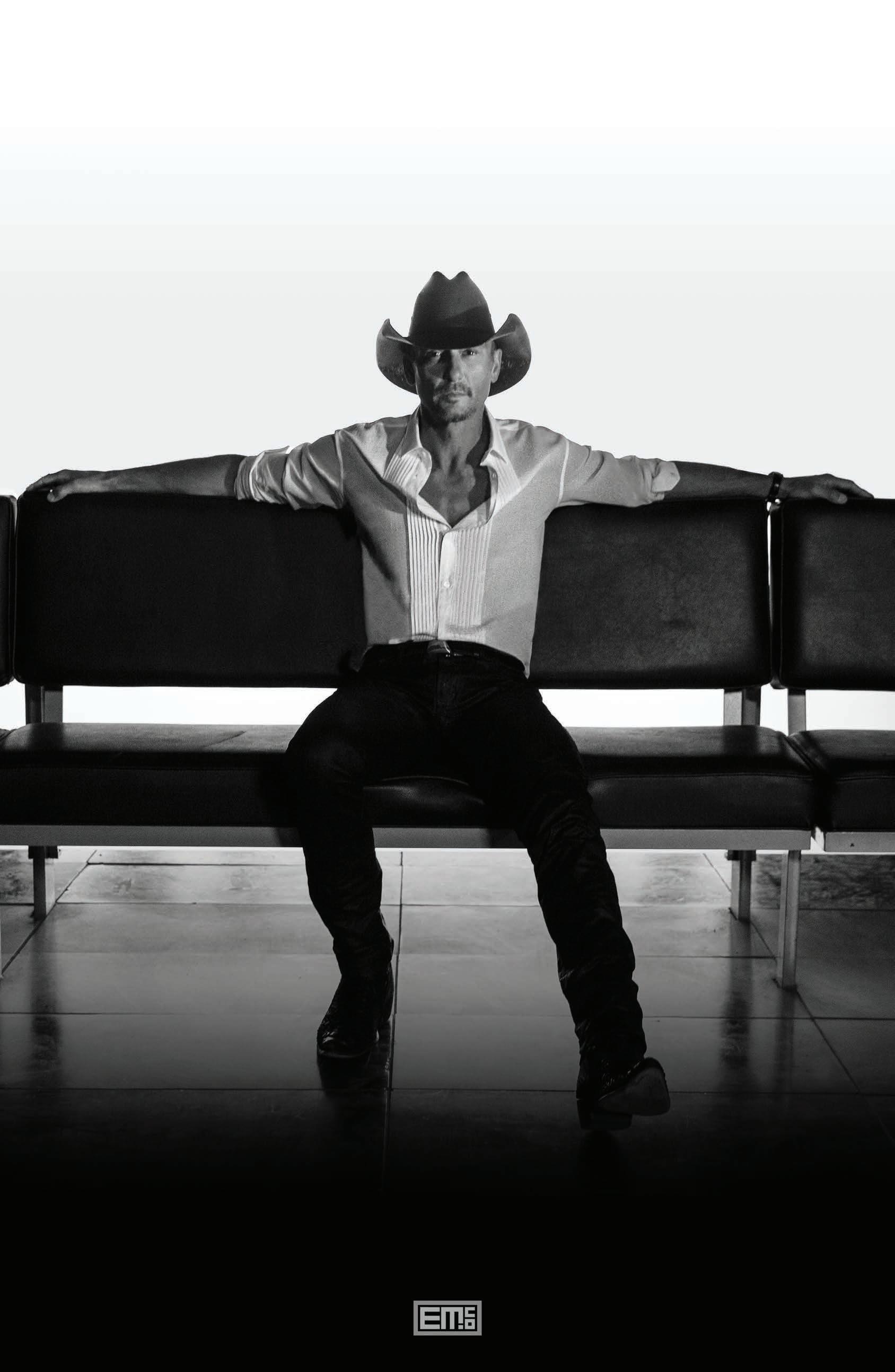

C
urrently on point for Tim McGraw radio promotion, EM.co SVP/Radio Promotion & Marketing Jack Purcell and Big Machine SVP/ Promotion & Digital Kris Lamb have tagteamed his chart efforts for most of the last decade. And they’ve gained a good bit of insight along the way.
Now in his fifth year on the management side, Purcell was heading promotion for Big Machine when McGraw signed in 2012. Ironically, he had previously worked the 1994 launch of Faith Hill at Warner Bros. “Big Machine was still relatively new, and we were excited beyond belief to work with Tim,” he says. “And of course, with my history with Faith, it came full circle. A magical time for us and, I think, also for Tim as he was coming off Curb.”
Lamb was on the air at KMLE/Phoenix when he first experienced McGraw as a performer. “Going to his show every summer was a rite of passage,” he says. “McGraw and his music essentially raised me. I wouldn’t have the passion I do for country music if it wasn’t for Tim McGraw.”
Radio isn’t just a focus for Team McGraw – it’s also important to the man himself. Nevertheless, a multi-platform entertainer doesn’t exactly have the time for station visits. “When you’re out on those first rounds of a radio tour, you can build those longstanding relationships,” Purcell explains. “It gets more challenging to maintain those and make new ones through the arc of a career, and especially with Tim making movies and such. You rely on touring to keep and create those connections.”
And McGraw is paying attention. “Tim doesn’t miss a beat on anything,” Purcell continues. “If you think he’s not watching, you’ve made a dramatic error in judgment. He cares; he understands the landscape and what it means to stay competitive. That’s when and where he goes to work.”
“He’s incredibly involved in day-to-day operations with radio,” adds Lamb. “Every time we launch singles – and especially as we peak – he’s heavily engaged speaking with programmers and air talent.”
McGraw’s focus was noted early in Lamb’s time working with him. “One of my first experiences with him as a representative of Big Machine Records was walking through the concourse of Mountain View Amphitheater outside Pittsburgh, just the two of us, prior to the gates opening,” Lamb says. “We were just having a conversation, so I didn’t realize what he was doing at first. But I soon realized he was going to every merch booth in the venue to check on and fix any mistakes in how his merchandise was positioned. At that point in my
Southern Voices: Tim McGraw with his label team and iHeartMedia partners. Pictured (l-r) are EM.co’s Jack Purcell and Scott Siman, Robert Kennedy, iHeart’s Alissa Pollack and Rod Phillips, McGraw, BMLG’s Scott Borchetta and Sandi Spika Borchetta, Carrie Prickett, iHeart’s Amy Roach, and Big Machine’s Clay Hunnicutt, Erik Powell and Kris Lamb.
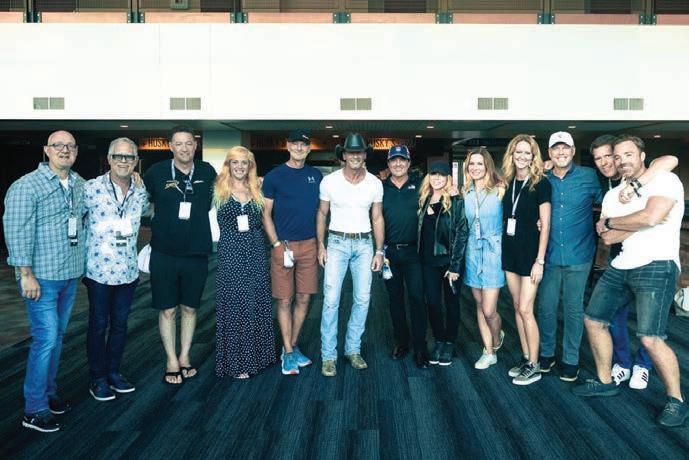
career, I had never seen an artist pay that much attention to detail. And that’s the thing about Tim. The smallest details all add up in the overall presentation.”
As McGraw’s career has broadened, he has taken the idea of what country is to new audiences. “He’s a reflection of the format in every medium, not just radio,” Lamb says. “Everything he’s done in the acting world and everything he does from a philanthropic perspective – he reps our format in a phenomenal way that extends far beyond the three minutes you hear him on the radio.”
“He cares about the format, how he fits inside it and what he needs to do to stay competitive,” Purcell sums. “He is still, 30 years later, the front row student. He’s driven to stay competitive and, equally, to do positive things through his lyrics. So often, those of us in the business are chasing spins, looking at spreadsheets and such. But at the corner of art and commerce, Tim McGraw is putting out music like ‘Humble And Kind’ that has a tangible positive effect around the world. That’s where Tim McGraw still lives today. That’s what he works to deliver.”
And one final word-to-the-wise from Lamb: “Don’t ever take your girlfriend backstage to a Tim McGraw show. You’re going to get cropped out of the shot.”
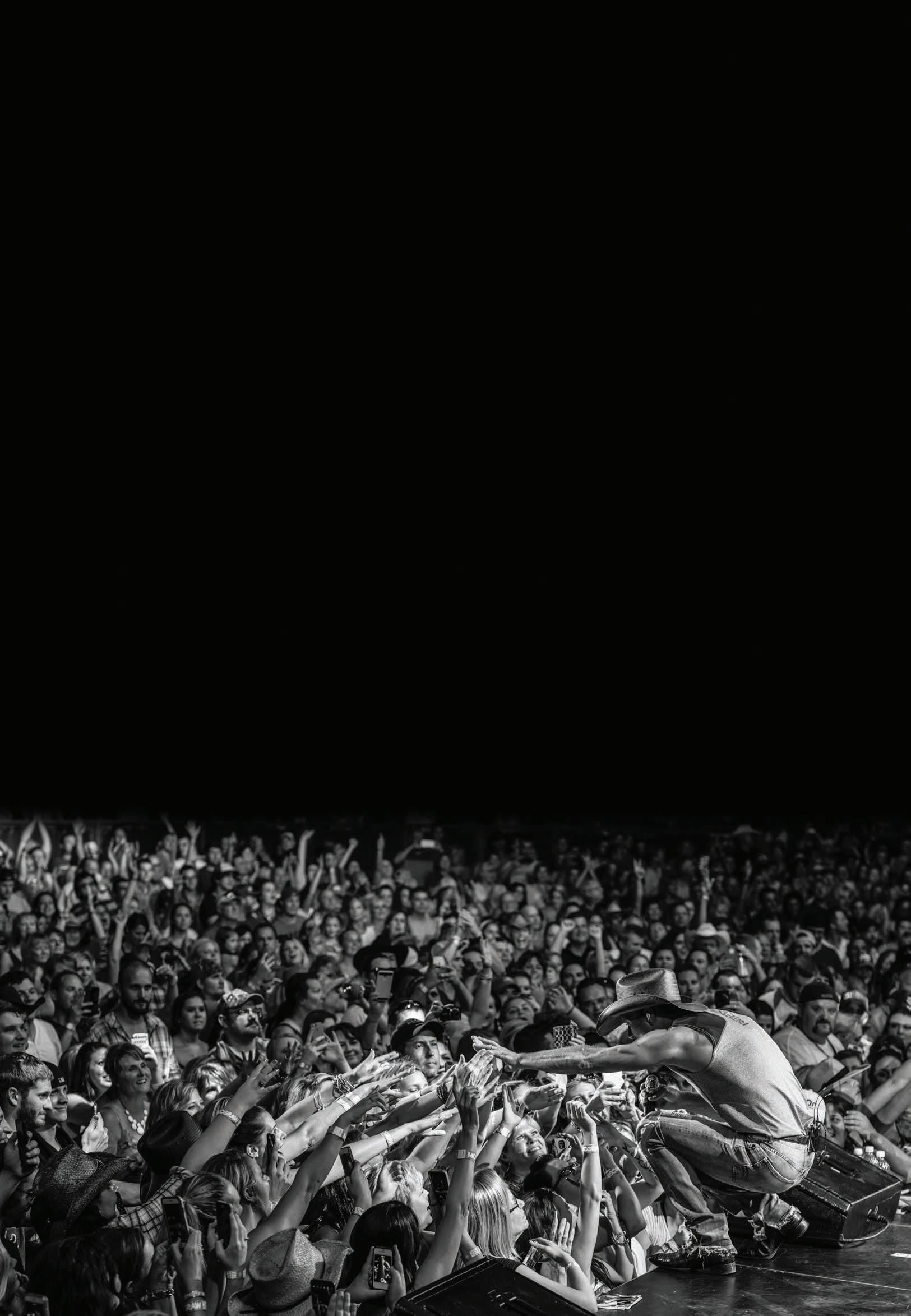
caught up in the detail sometimes, but I have very capable people around me. What I’m good at is getting three or four 12-month plans and taking the best parts of each and combining them. I’m deeply involved in the creative – stage and lighting designs, how we build our shows, producing records. Other than being onstage, my favorite part of the business is being in the studio. I could go in the studio every week and be happy. I’m probably better as a producer than I am as an artist, and I like producing other artists when I get the chance.
There are a lot of people on your team who’ve been with you a long time. What’s your philosophy on managing people?
I want them to know I have their back and will stand up for them when necessary and, in turn, I believe they’ll stand up for me. There’s loyalty, and there’s also progress. For instance, I had the same band for 20 years and love every one of them, but there became a point in my career where I needed more push and
less pull. It was time to make a change, which you do for the benefit of the organization. I still have three of the original guys that I’ve been with for 30 years; everybody else has been with me more than 10.
How often do you sit back, reflect and enjoy what you’ve accomplished?
I never do that.
No? So how’s the work-life balance?
I’m pretty good at leaving everything at the door, enjoying my family and being home. Faith and I are pretty much hermits. We like to be at home, and we don’t like leaving. But I don’t think backwards much at all – always forward. I know I’m 55, but I don’t think about it that way. This could easily be the middle of my career. That’s the way I look at it. I have plenty left to do and give. Oddly enough, I feel like I’m starting to learn more now than I was learning 10 years ago.
In what way?
As a singer, as a producer, as a performer. Having the opportunity to do movies and shows like 1883
probably hasn’t informed the acting as much, but the acting has informed my performance and music.
They tell me you’re a very competitive guy. Is that the core of your motivation? Yeah. I’ve always been an athlete, and I always want to win. My philosophy is I want everybody else to do well ... I just want to do better. But I’m also very supportive of other artists. Rarely will you not find me sitting side-stage and watching the opening act. That’s a respectful thing to do and, secondly, you never know what you’re going to learn.
At this point in your career, your show is a master class on performance. How much of that is experience, and how much is deliberate – like an athlete in the film room?
I never watch myself back. I’ve never even watched an awards show performance of myself. I would just be mortified. I’m way too critical. It’s in the moment for me. Before I go onstage, I get hyper focused – that thousand-yard stare thing where I’m trying to find my equilibrium before I go out. The moment I step onstage, it all becomes reactive. I don’t know that I
PAGE 34 • OCTOBER 2022
. Music
TO THE
tim mcgraw

“DON’T TAKE THE GIRL” “DOWN ON THE FARM” “NOT A MOMENT TOO SOON” “I LIKE IT, I LOVE IT” “SHE NEVER LETS IT GO TO HER HEART” “IT’S YOUR LOVE” (with Faith Hill) “EVERYWHERE” “JUST TO SEE YOU SMILE” “WHERE THE GREEN GRASS GROWS” “ONE OF THESE DAYS”
CURB RECORDS CELEBRATES 30 YEARS OF SUCCESS SINCE HIS DEBUT SINGLE “ WELCOME
CLUB “ “JUST TO HEAR YOU SAY THAT YOU LOVE ME” (with Faith Hill) “PLEASE REMEMBER ME” “SOMETHING LIKE THAT” “CAN’T BE REALLY GONE” “MY BEST FRIEND” “MY NEXT THIRTY YEARS” “GROWN MEN DON’T CRY” “ANGRY ALL THE TIME” “BRING ON THE RAIN” (with Jo Dee Messina) “THE COWBOY IN ME” “UNBROKEN” “REAL GOOD MAN” “SHE’S MY KIND OF RAIN” “WATCH THE WIND BLOW BY” “LIVE LIKE YOU WERE DYING” “BACK WHEN” “OVER AND OVER” (with Nelly) “LAST DOLLAR (I’LL FLY AWAY)” “SOUTHERN VOICE” “FELT GOOD ON MY LIPS” Congratulations on a brilliant career, 81 MILLION RIAA CERTIFIED UNITS, 96 CAREER CHART HITS & 30 AIRPLAY #1’S SPENDING OVER 80 WEEKS AT THE TOP WITH CURB RECORDS
ARTIST
to shows. The audience is intergenerational.”
As a recording artist, McGraw’s pursuit of songs may go beyond mere drive. “He’s been putting records together every day of his life as long as I’ve known him,” Hill says. “He’s always listening to songs and would be the best A&R person on the planet if he chose to be. It’s amazing to hear the demos he gets and see how he interprets them and makes them his own. He writes a lot, as well, but will be the first one to knock one of his own songs off the list if something beats it. We both believe the true heroes are the songwriters – it’s how we grew up in this town. And we’ve never forgotten it.”
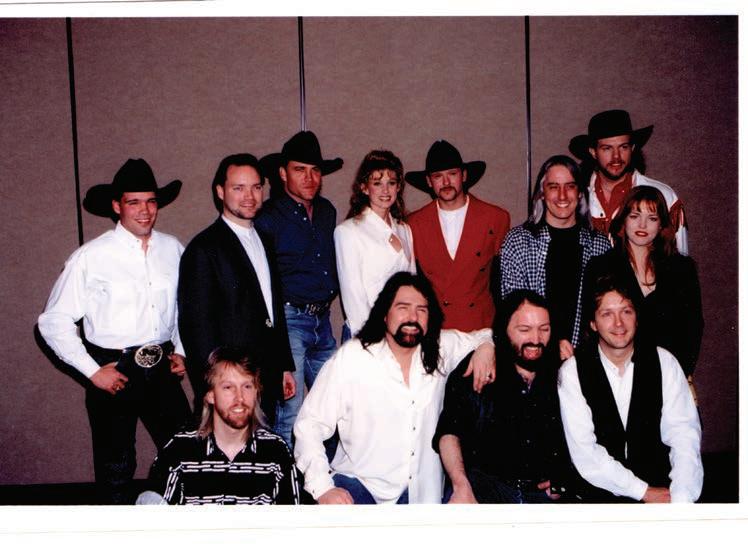
Flicka, The Blind Side, Country Strong, The Shack and other on-screen roles comprise an acting portfolio Hill calls “really incredible.” Their work together on last year’s 1883, grueling as it was, allowed her to see him in another element. “Tim’s a real horseman,” she states. “He’s been riding since he was a kid, so he was in heaven, even when it was freezing cold and blowing or hotter than ever on the Texas plains.”
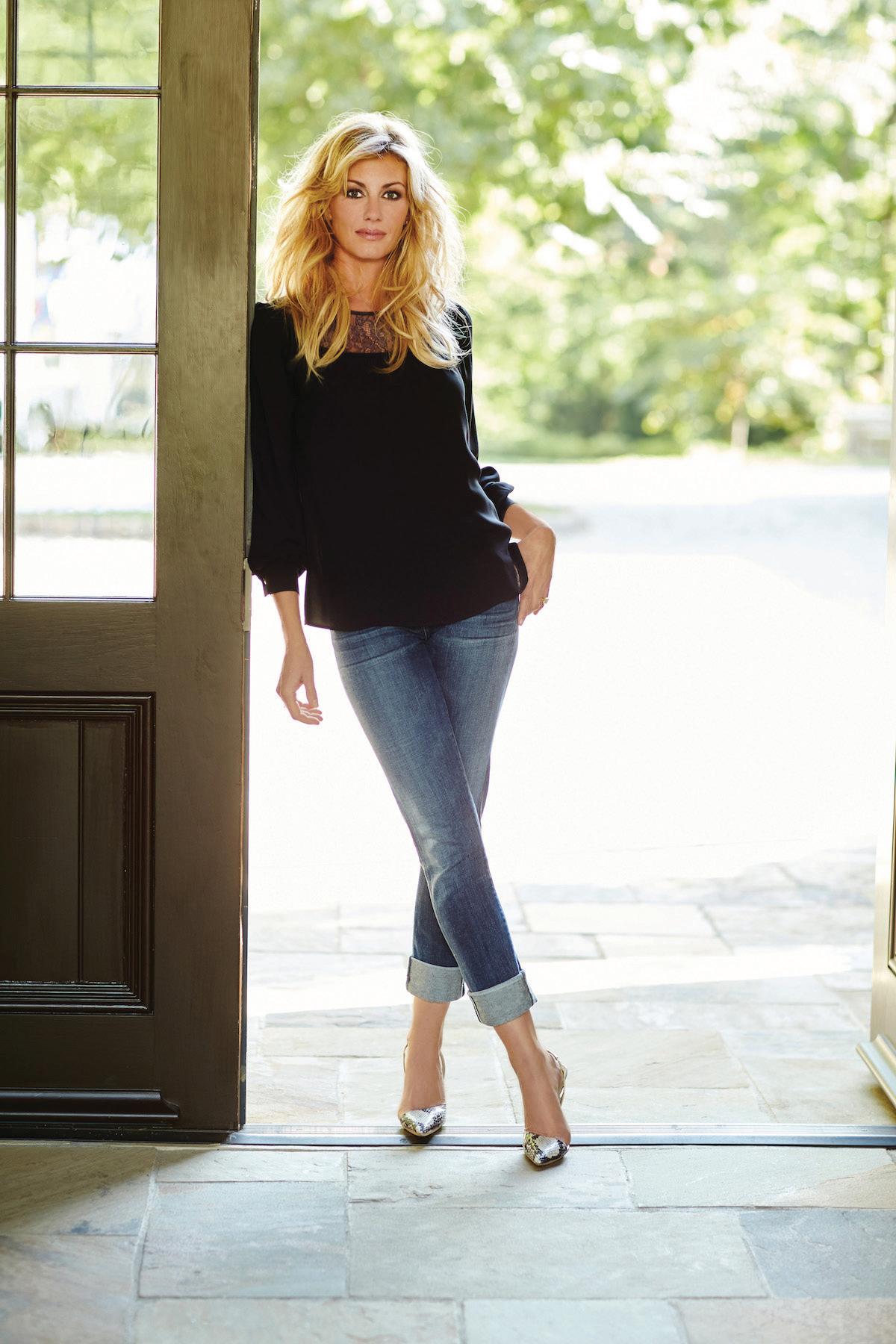
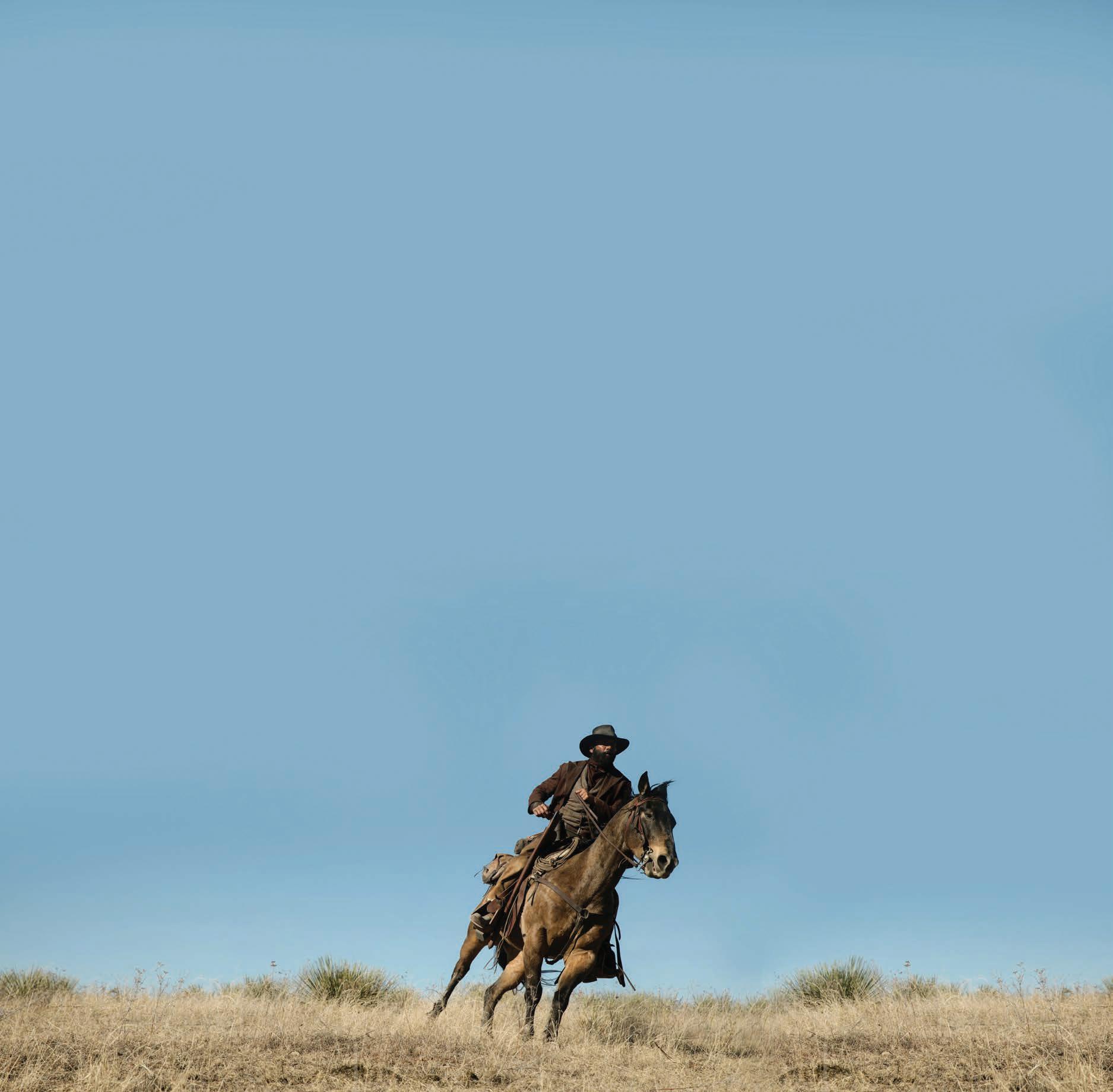
Hill also notes his role as a statesman for the genre: “I’ve seen how hard he works, and how available he is to other artists. And he gets a lot of those calls. He also doesn’t hide behind anyone. He’ll deal with an issue if he’s done something he shouldn’t have.
“Look, I am damn proud of having two women in the Entertainer category this time,” she continues, becoming a bit emotional. “Everyone there is worthy of it ... I take nothing away from anyone. But look up the definition of the category. Take a deep dive into what he’s done. He carries country music with him around the world. Especially when you include the movies, there aren’t many people who have done what he’s done. If any. He’s singular. It’s not really about the awards, it’s about the industry as a whole. I wish he could be better acknowledged for the breadth of his career and how proudly he represents country music.”
intentionally do the same things – signature moves or whatever you might call them – they’re just innate in me now. The best shows I have, I don’t remember. Similarly with acting, the best scenes are when you walk off the set and think, “Wow, I don’t know what just happened.”
Speaking of acting, 1883 must feel like a triumph, right? Thank you. You put yourself in uncomfortable positions and then challenge yourself to rise to the occasion. Faith and I were sitting on our back porch looking at the contracts and I said, “Here’s a few things we need to think about. First and foremost, once we sign this, we’re not the boss anymore. We’re hired hands. Second, it’s going to be a lot of hard work.” And it was – six months of 14- or 16-hour days, six days a week. “Third, there will be a lot of people rooting for us to fail.” Some of that is people not expecting it to be good, some of it is being from outside of that world, and some is that people don’t root for you because of past success. That’s human nature. I said, “The only way that we can beat all these things is to do the best job we can.”
Do you have a sense of responsibility giving back to the industry by helping younger artists?

It’s a dichotomy, right? Back to the competition. I still want to win and have the biggest record out there. At the same time, I’m rooting for my friends, new artists and people that come on tour with me. If I have an opportunity to talk with them, if they want to pick my brain, I’m always there. At the same time, I don’t know the answers. There’s no magic bullet; sometimes God just walks through the room.
Does it bug you or make you smile when younger artists say you’re one of their biggest influences?
It’s a compliment. I’ll take that, for sure. What’s the old saying? Talent borrows; genius steals? I remember being in the studio thinking, “I’m going to sound like George Strait on this record.” After we finished, I’d be like, “Dang, sounds just like me.”
If you could go back 30 years and say something to that young artist whose first single was about to die in the 30s, what would you say? Don’t worry so much; hang in there. I remember thinking, “If this doesn’t work out, maybe I’ll play acoustic guitar in someone’s band. Maybe I’ll work for a publishing company. I’m pretty good at picking songs, maybe that’s something I could
do down the road.” But in the back of my mind, I had a feeling something was going to work out. Even when I was trying to get a record deal, I knew I wasn’t going to walk into a room, sit down with a guitar and blow anybody away. But if given the opportunity to make a record, I could do it. Same with acting. I’m probably not going to read for a part and have them think I’m Brando. But put me on the set, and I’ll hit a home run for you. I was that way in sports as a kid. I was small but fast. I didn’t impress off the bat, but in a game situation, you wanted the ball to come to me.
What’s the vision for your next 30 years or even 30 months? We’re working on an album with so many great songs on it. I don’t know when it will be released, because we really want to set it up right. I’m at a point where I don’t have to rush anything. Beyond that, I feel like there’s a lot of runway ahead of me. I can play music for a long time and be relevant at radio for a long time, though in some sense I have no control over that. All I can do is be the best artist I can, continue learning, growing and improving. This isn’t a career you can coast through. We’ve seen plenty of that. In this business, it’s hard to get there and harder to stay there. You accept how hard it is and figure out a way to make it happen.
CAC
Steel sharpens steel.
PAGE 36 • OCTOBER 2022
914 18th Avenue, South Nashville, TN 37212 615-320-1450 Publisher/CEO Lon Helton lon@countryaircheck.com Sr. Radio Editor Monta Vaden monta@countryaircheck.com Coordinator/Production Emily Parks emily@countryaircheck.com VP/Sales & Marketing April Johnson april@countryaircheck.com Managing Editor Caitlin DeForest caitlin@countryaircheck.com Sr. Radio Analyst Chris Huff chris@countryaircheck.com VP/GM Chuck Aly chuck@countryaircheck.com Manager/Graphics, IT & Administration Kelley Hampton kelley@countryaircheck.com Art Direction Jerry Holthouse jerry_holthouse@comcast.net Volume 17, Issue 3, October 2022 Take the girl: The 1994 CRS New Faces with McGraw and Hill at center.
2 ARTIST
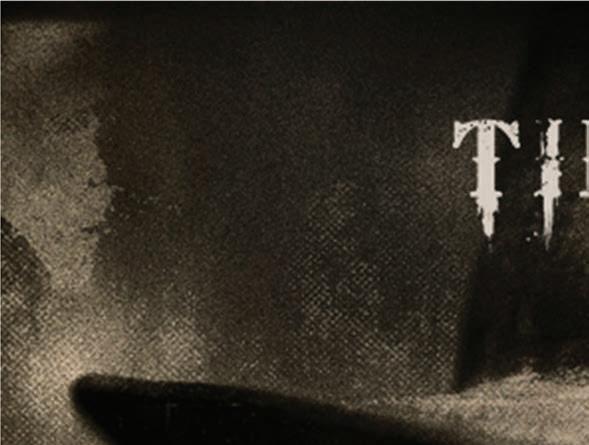
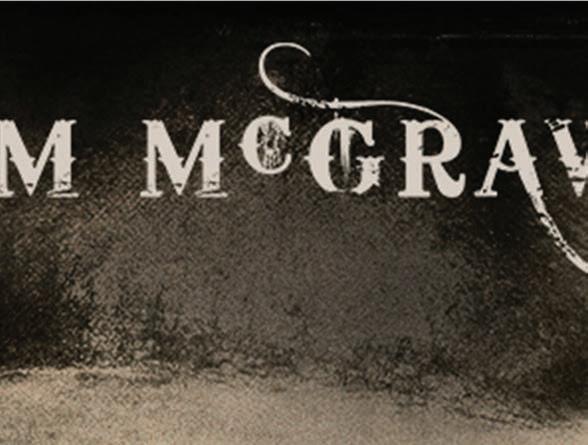
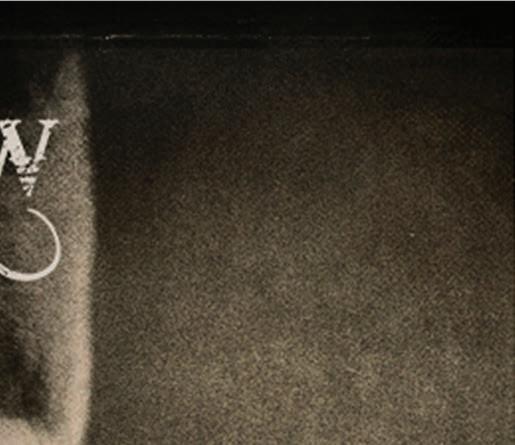
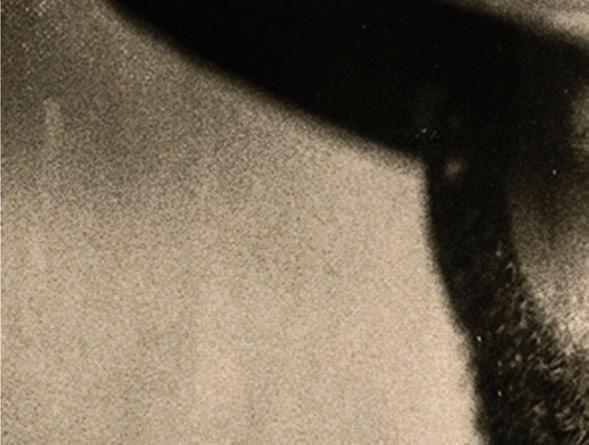
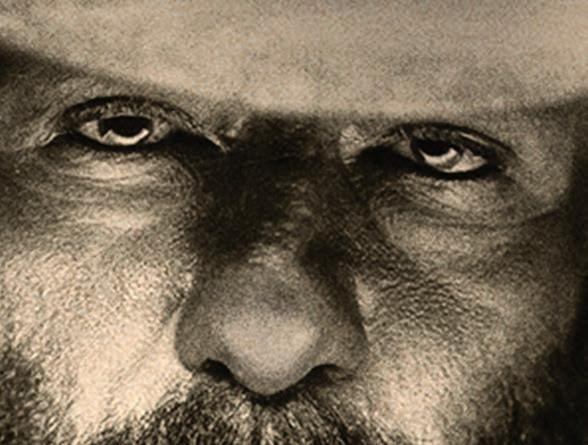
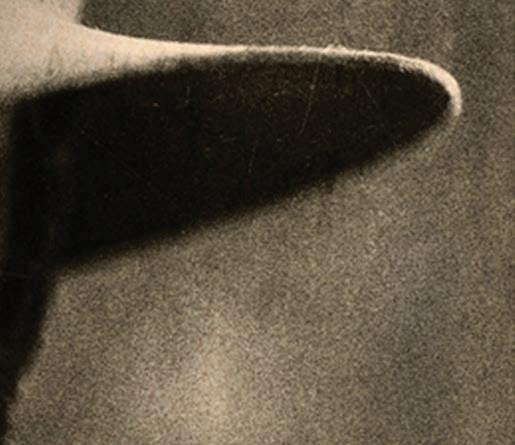
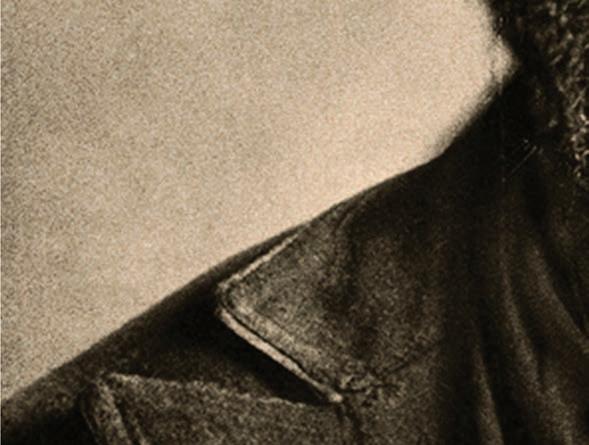
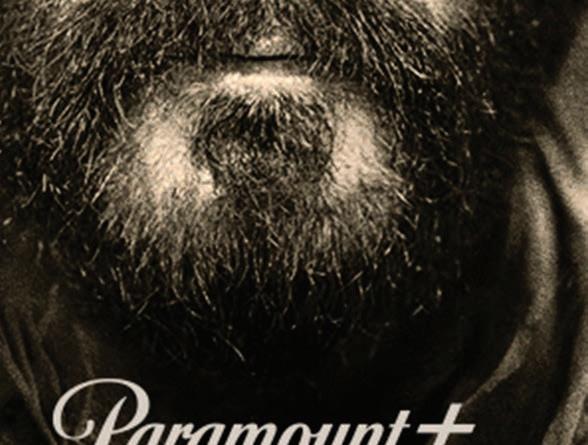
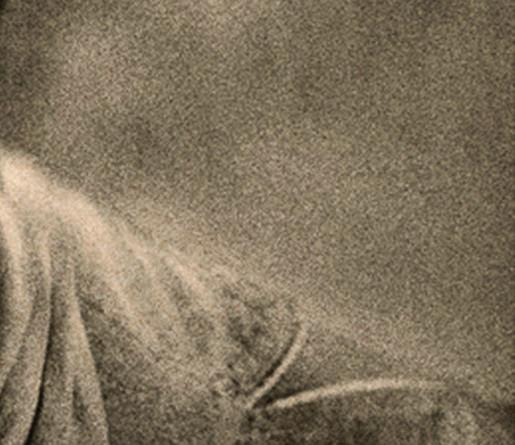
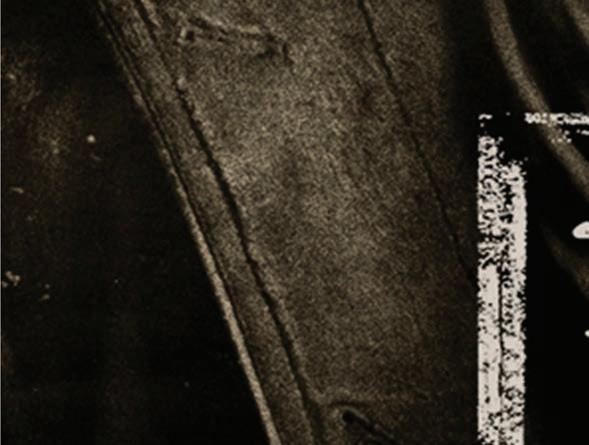
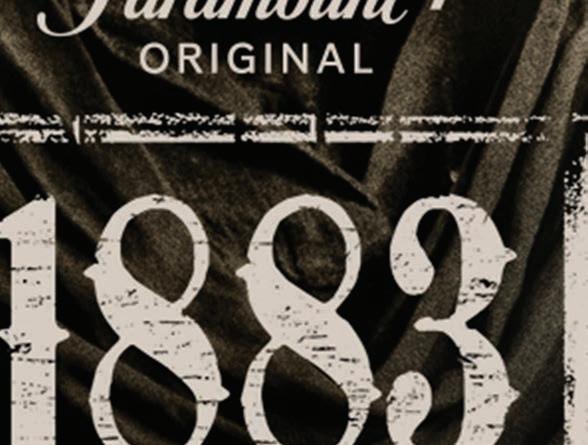
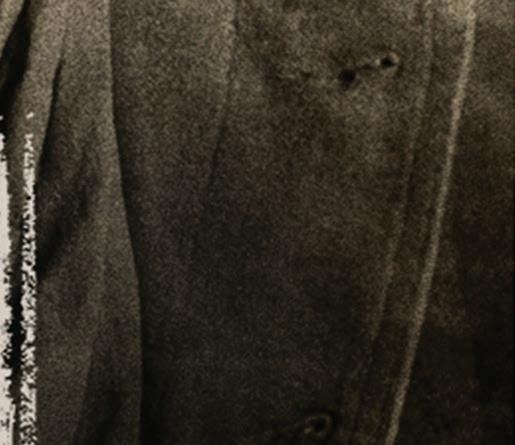

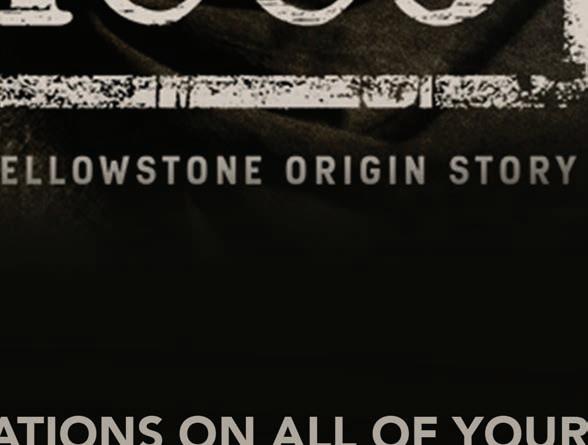
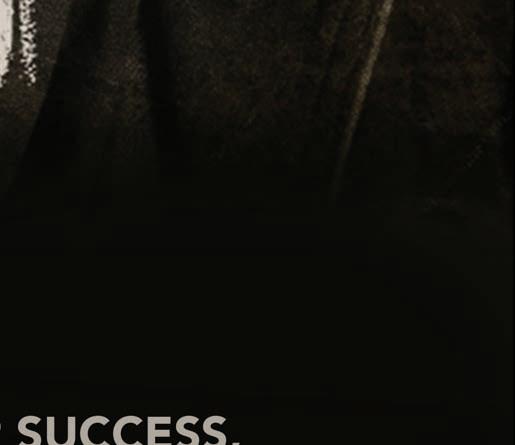
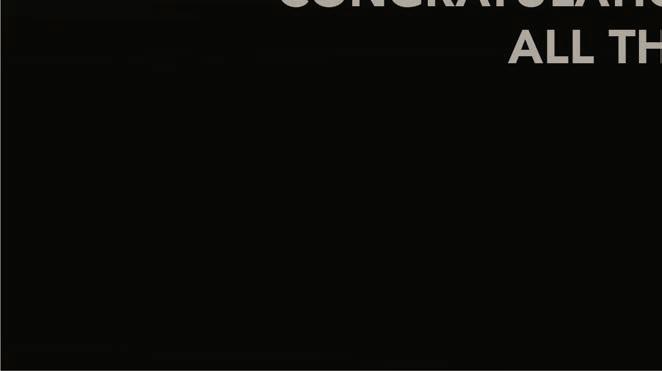
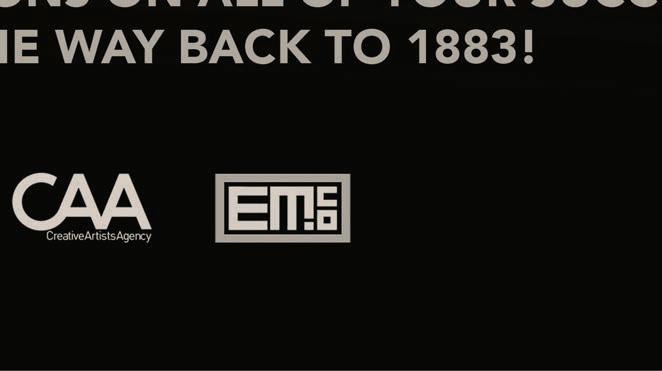
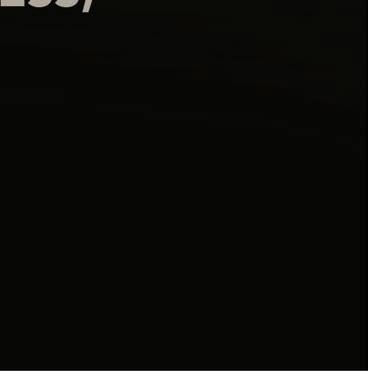

OVER SMART STATIONS ARE ALREADY ON!
IT’S ALMOST TIME...

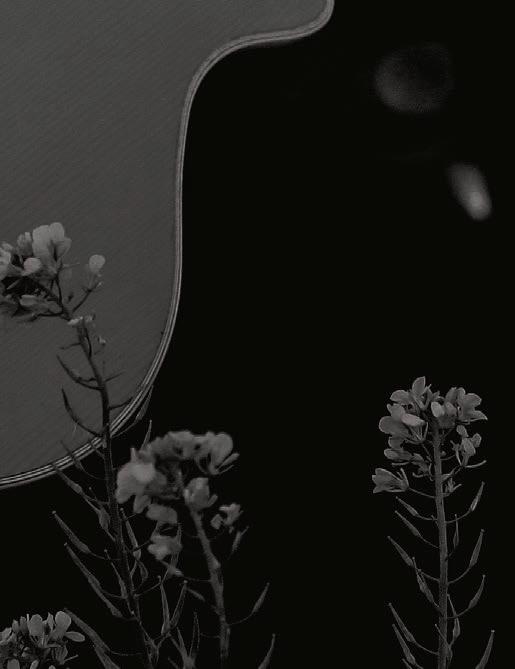
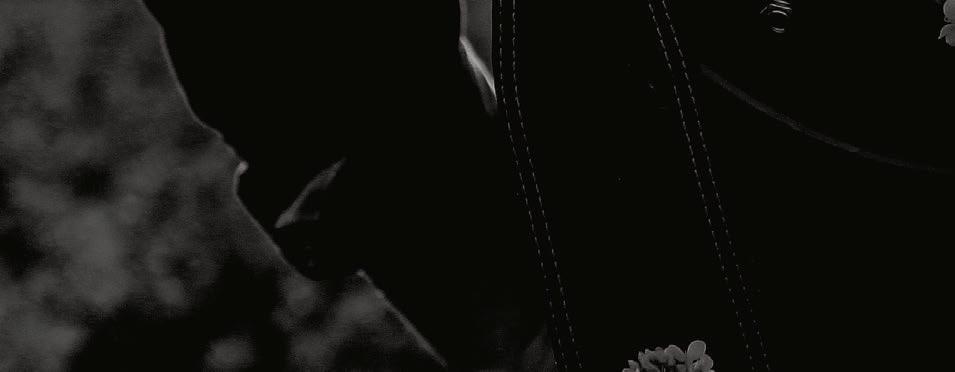




MEDIABASE.COM For more information about any and all of these services, please contact Robin Rhodes ROBIN@MEDIABASE.COM
Joel Raab

Realistically Optimistic





Country Radio Hall of Famer Joel Raab has spent more than 45 years in the business. As an on-air talent, production guru, programmer, consultant and 13-year CRB board member, his open mind and love of creativity allowed him to develop a cohesive consulting strategy while carving his own path in the industry. Raab maintains a bullish attitude toward the format and the medium but has some strong words of advice for those leading the business into the coming decades.
Country Aircheck: Hit us with the elevator pitch: What is a consultant, and what do you do?
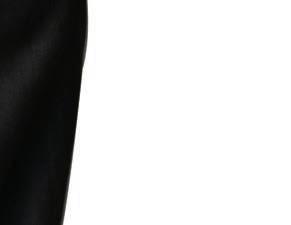
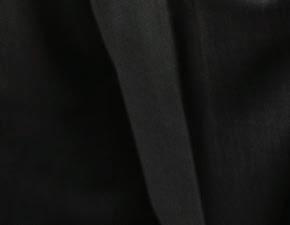


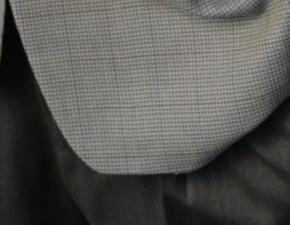
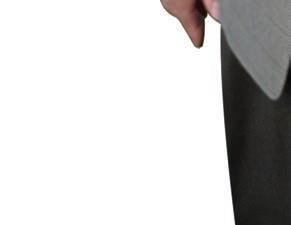
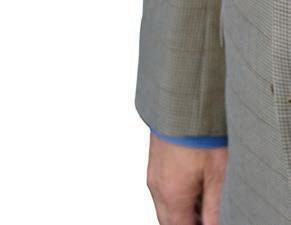



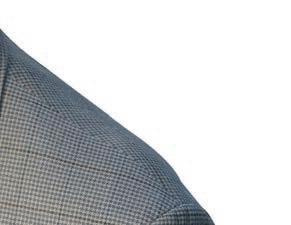
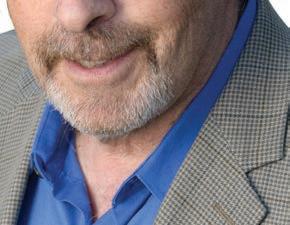


Joel Raab: Consultants are and should be a resource. We are an extra person, brain, set of hands
– and we should be objective and supportive. We should be an idea generation tool and someone to bounce ideas off of while telling the truth without BS’ing the programmer or management. We are there to help; we are on their side. In my collective experience, I’ve been able to help programmers avoid pitfalls they may have otherwise made. I have a deep catalog of knowledge and experiences, not only from my own radio career, but across all the stations I’ve consulted. I’ve often seen scenarios that may be completely new for them.
If a station has a consultant, but the PD isn’t passing that access along to the staff, that’s kind of sad. I work with talent when I’m invited to do so. One company I consulted had me working with talent across multiple formats, which was quite different for me. I’m fortunate to work with stations of every size in markets all across the country. I hear bits, benchmarks and on-air contests and make notes about what works best. When I’m working with a show, I can suggest options that have worked in similar situations in different markets. It’s not exactly stealing ... it’s just helping everyone benefit from recognizing great content when you hear it.
How has consulting changed in recent years?

THE INTERVIEW
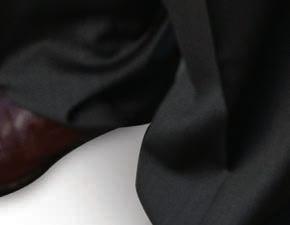
In the early days, we were accused of trying to do the same thing in every market. I don’t think that’s the perception as much anymore. The power of a consultant is having a bank of knowledge to access. From there, I can work with the programmer and the on-air talent to creatively customize an idea to fit their market and circumstances. I can also be the neutral zone if there are disagreements about what will work, or if they’ve gotten too close to an idea and can’t step back far enough to see the problems or pitfalls. Sometimes, it’s a matter of being objective enough to suggest what might work better. Tough love and a straightforward delivery work well. I’m a positive person, but if we see something isn’t working – especially if ratings are going down – empty praise is not helpful.
To what extent has consulting extended beyond the broadcast platform?
Recently, I began working with a client on an idea for after-show content. It may become a podcast, something live on social media or a blog. The goal is to find a home for the parts of the show that didn’t make it to air. As an industry, we are placing more demands on ourselves to meet growing content demands. Too much content for one show is a good problem to have, because there is plenty of consumer demand. Some companies are beginning to see that investing in talent – rather than cutting – yields a greater return with more opportunities to feed the content machine. It’s the best possible ROI.
How did you develop your consulting style? Who were your early influences?
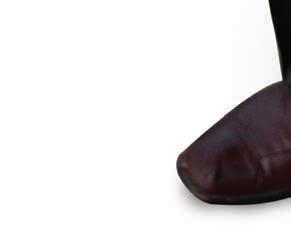
One of the best PDs in my career was a guy named Jim Ferguson in Long Island, who I thought was a programming god. He taught me the basics of programming while I was in college. He wasn’t always diplomatic, but he knew his stuff. He never yelled, but if you did something wrong on-air, he’d certainly let you know in a way that made you never want to do it again.

Of the consultants I had when I was in radio, fellow Country Radio Hall of Famer Ed Salamon was among my favorites. He was so knowledgeable. We disagreed about some things and, ultimately, wound up doing it the way I wanted. At the end of the day, a consultant is there to give advice. I learned that from Ed and say it to my clients now. A consultant can advise, but the programmer is responsible for the ratings. I’m not sure when I knew I wanted to be a consultant, but I knew very early on I never wanted to be a GM. I had programmed in Cleveland, Pittsburgh and New York, and the next step would’ve been to move into management, but I was 30 years old, and consultants were starting to become more popular. I thought I’d give it a shot. I wanted to do it a little differently than any of my previous consultants had done it, so I took the best stuff and found my own path. My focus has always been trying to help my clients create better content – show prep, having more ideas and working with online and after-show content.
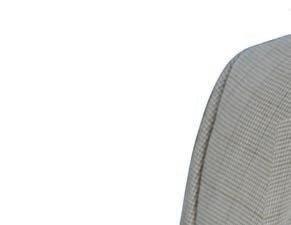
How have your day-to-day business operations changed in a post-pandemic world?
I had not been doing very many market visits and was still working with clients on the phone and via Zoom. Only recently have there been more requests for actual station visits, and that makes me happy. There’s no substitute for seeing people and listening in the market. You can listen online, but it’s not the same thing. What the pandemic changed is the number of virtual market visits I’ve done. Now, I’ll sit in front of a screen for a couple hours laying everything on the table with all of the air talent, programmers and managers. It’s not as good as being in person, but it’s the next best thing and has reduced my travel. My workday is much more efficient, because I’m not spending time on an airplane, checking into hotels, getting to and from the radio station and going home. My time is also more segmented. I can spend a few hours on a virtual market visit then jump to the next market with no travel time, all from my office with no travel expense. I have an office outside of the house where only I work, so I only spent about three months at home during the pandemic. But I did like having the dog around when I was working from home.
What do you see in terms of a shift back toward business-as-usual?
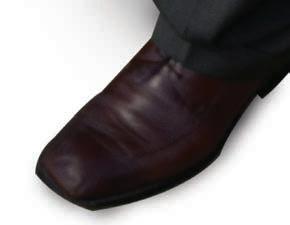

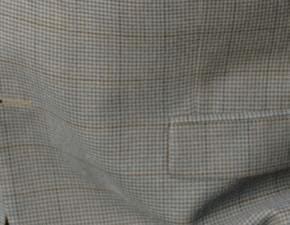
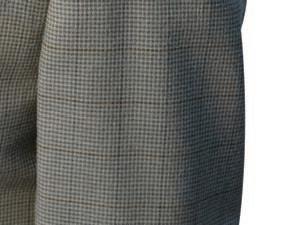
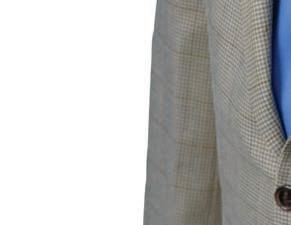
Concerts are obviously back, and stations are back to doing remote broadcasts and appearances. In terms of advertising, my stations are 75-80% back to pre-pandemic levels. Unfortunately, we’ve seen a lot of companies make financial adjustments, and some are still making cuts. The big problem was the automotive business. Auto dealers weren’t advertising, because there were no cars available. That segment really suffered.
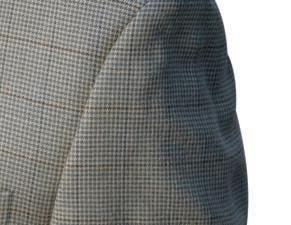
PAGE 41 • OCTOBER 2022
How have staff cuts impacted your stations?
If a company or station hires a consultant, they are obviously looking for ideas and still care about programming. While we may be working with fewer people inside each station, those who remain are still working toward a common goal of creating great content. It’s just more challenging to accomplish, because everyone is having to work harder and cover multiple posts. I remember being a Dir./Production and thinking how cool it was going to be to make promos and sweepers, but by the end of the day working on commercial production, I was gassed. Radio today is 10 times worse; I can only imagine how difficult it would be to get the creative juices flowing after being spread so thinly.
What tips can you offer for breaking out of a creative rut?
THE INTERVIEW
I hit a creative block recently, so I took a notepad to a nearby restaurant and sat there alone observing. After a while, some new inspiration came to me. I’m a big believer in changing your scenery to clear mental blocks – take a drive, or even visit a friend you
can bounce ideas off of. My voice notes app is full of thought starters and ideas I record and listen to if I’m in need of inspiration. It’s a lot like the process some songwriters use. Plus, I can’t read my own handwriting.
Much has been made about radio’s “bench” disappearing. Where should we be looking for the next generation of great talent?

The “traditional method” of starting in overnights or weekends and moving up to nights has become less of an option. If you can find a talented person who can speak clearly and is interested in radio, you can teach them how to run a board. You can’t teach them how to have a personality, be funny or be interesting. If they want to do radio, put them on the air. Teach them how to say the name of the station at the right time, but throw them right in. When we find someone with a desire to make a career out of radio, we have to say yes. That has to be the new method. Personalities being discovered outside of radio already understand the importance of social media. They’re either high-frequency users or creators
an element of larger companies, but the individuality of a station can come across in other ways. Tone of voice, social elements, contesting, liners, imaging, genuine content breaks filled with personality – all of that stems from on-air talent and programmers aligning with the personality of the brand. There isn’t going to be much separation in music unless one station leans into gold selection or is far more aggressive with new music, so differentiating a station lies with the creative elements between the songs.
What is your advice for programmers in terms of song selection?
Music has to make you feel something. Most of us in the Country format get it, because we love the music. I’m a fan! That doesn’t mean we can rush a song to the studio as soon as we hear it, but if you hear something with hit potential – no matter where it is on the chart – you have to consider giving it a shot. Even if you have a fairly small playlist, you have to find a place for something you really believe in.
There’s more product now than ever, but that’s actually good for radio. We have more to choose from, which can be frustrating, but isn’t it far better to have a pile of great options instead of a small stack you only partially love? I wish we had more independent stations where shots could be taken, but that’s a whole other issue.
What exactly is that issue?
When we look at the charts, decades past where we had songs on for 12, 13 or 14 weeks probably wasn’t enough. But now, we have 50, 55 and 60 weeks, and that’s a bit much on the other extreme. I’d love to see real hits move more quickly up the chart then hang on longer. I told [Warner Music Nashville SVP/Radio] Kristen Williams that Cole Swindell’s “She Had Me At Heads Carolina” was a hit in my research and had – in my mind – been a No. 1 for more than a month. Even though it hadn’t yet made it to No. 1 on Mediabase, because each label is taking their turn at the top. I’d rather have a bonafide hit stick at No. 2 and stay in heavy rotation with good research than be forced to the top, drop like a rock and leave the audience’s memory forever.
As someone who believes strongly in data and research, what are your key music
We are all wrestling with streaming, because so many songs stream well but aren’t on the radio. We don’t always know who is streaming those songs; do they listen to our radio stations? Some aren’t, but when we test music with our listeners, we know they are ours. I don’t think streaming data is the be-all, end-all, but it’s certainly worth looking at – especially when you see something performing like Bailey Zimmerman’s song, which is now starting to research at radio. Some songs stream like crazy for weeks before the radio audience finds them, but it isn’t until radio picks it up that the radio audience becomes familiar.
Regular music testing is a great tool, but many stations don’t have access, which can make it beneficial to work with a consultant. I provide national music testing for a pretty large sample, which gives my stations at least an idea of what’s fairly safe with currents and recurrents. Stations without access to testing can also look at streaming numbers, airplay, sales – elements of
The next step in great research is to conduct consumer and audience research. We need to be learning about listening habits, consumption habits, buying habits and personalities of the demos we serve. Our talent need to understand what these folks are interested in – what they watch and buy, where they go and what they do in their spare time. As an industry, we are guilty of not spending enough time researching those audience habits in favor of spending too much on what they think of our radio stations.
are seeing more and more users on TikTok, whether they are creating content or just watching videos. Being on-air isn’t the only way to touch people, and we have to reach people where they are. I prefer when social content emanates from what is happening on-air and is then pushed out, but some companies prefer content to originate on social and then drive people to the on-air product. As long as you are producing great content on all platforms, they will benefit one another.
What’s your view on differentiating a station from a crosstown competitor?
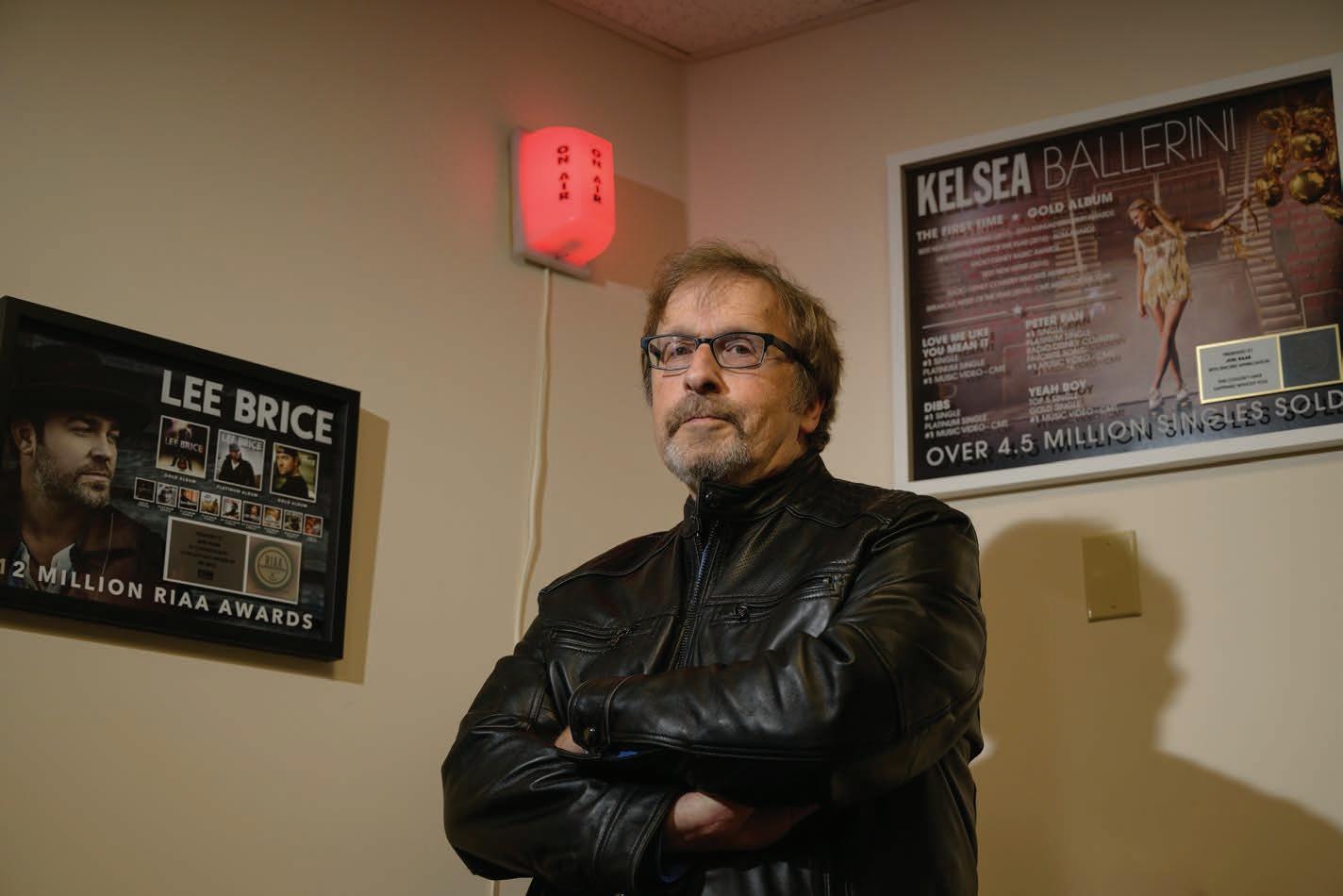
Radio stations will, to some degree, reflect the personality of the PD or Brand Mgr. The station and brand have to have a heartbeat –some kind of soul or pulse – and that starts with the person picking the music, brainstorming the contesting and hiring and training the talent. They create the vibe and build the bridge that connects to the community.
I created the theme “family” at the first station I personally programmed. We wanted the audience to feel like part of our family, so everything we did was built around that. It wasn’t a buzzword, but a filter through which we passed all of our ideas about content, contesting, messaging and marketing. Great brands need an idea or standard to which they hold everything and around which the talent knows creation should center. You know those stations when you hear them. They have their own personality – they live and breathe. You may not be able to pinpoint exactly what it is, but like a person, I can’t list everything about your personality in five words, but I know who you are.
What is the biggest threat to Country radio in terms of content creation and the on-air product?
The trap we must avoid is becoming too generic. We start to have the same voice guys, read the same liners and use the same imaging. I hear a lot of sameness, which may stem from so many programmers handling multiple stations. We should be careful to craft each station with its own personality reflecting the community in which it lives. I’m fortunate to work with stations that are still striving for individuality. Music programming is becoming centralized, and national contesting is certainly
For a “cradle to grave” format, how can we bridge the gap between those doing the programming and those we are programming to and for? I once did an imaging writing exercise with a guy who was maybe 10 years my junior. We were stuck and pulled in some people from the staff, which is a tactic I learned from one of my other stations. We brought in people in the 18-34 demo from around the building to ask how they talked about radio. We made notes about the verbiage they used to describe radio and the station and were able to create some great imaging based around that.
We aren’t a young industry, me included. We’ve been doing it for a long time, and there’s nothing wrong with that, but we need to keep ourselves open to what younger generations are into. We need to be conducting focus groups with younger staff and listeners – learn and lean in so we can lead into the next decades. Every home once had a radio in the bedroom, kitchen or living room. Now, Alexa is kind of the new radio, so we have to reach people where and how they live.
Using your consultant’s crystal ball, what we can expect for 2023?
I’m very upbeat about country music right now. Being on the road listening to a lot of Country radio, I’m personally enjoying it a lot more lately. We’re in a great music cycle, and it bodes well for the format going forward. Tim McGraw, Keith Urban, Jason Aldean, Luke Bryan, Kenny Chesney, Carrie Underwood and Miranda Lambert are all still making viable radio hits while Luke Combs, Morgan Wallen, Gabby Barrett and other young artists are bringing smash records to the table and pushing their way to superstar status. The country audience is loyal and, as long as great music is being presented, the health and viability of our format feels strong. New life and new blood are what keep us relevant and vibrant, and superstars are what keep ticket sales on the rise.
Personally and professionally, I was recently able to visit two markets for the first time since before the pandemic. I’m hoping to see more of that normalcy return. And I’m also hoping for a focus-shift within our industry to prioritizing local talent. Let’s scout them, support them and let them lead us into the next years of success for our medium. I love radio, and I love this music; I’ll do this job for as long as you’ll all have me.
PAGE 42 • OCTOBER 2022
CAC
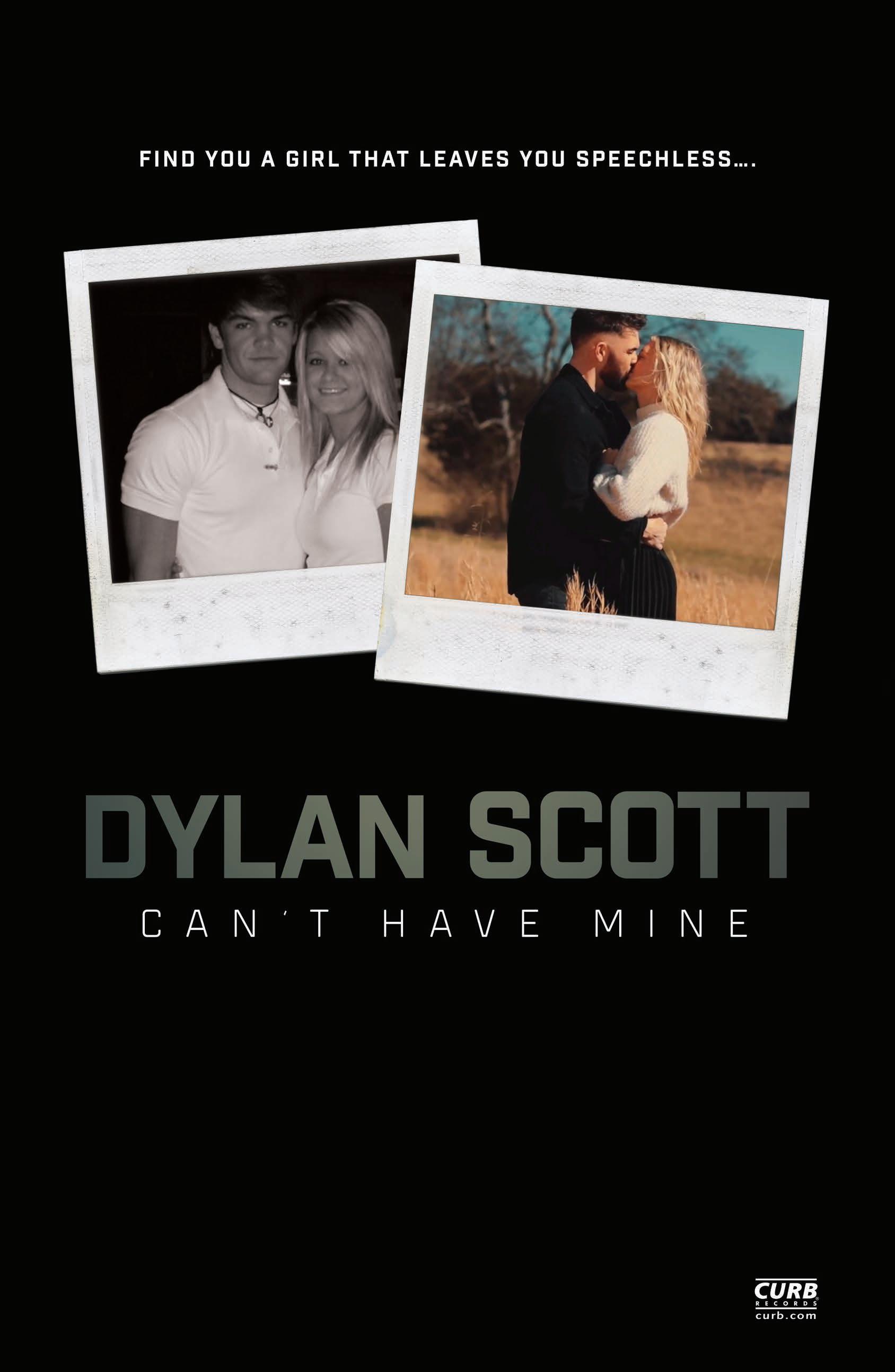
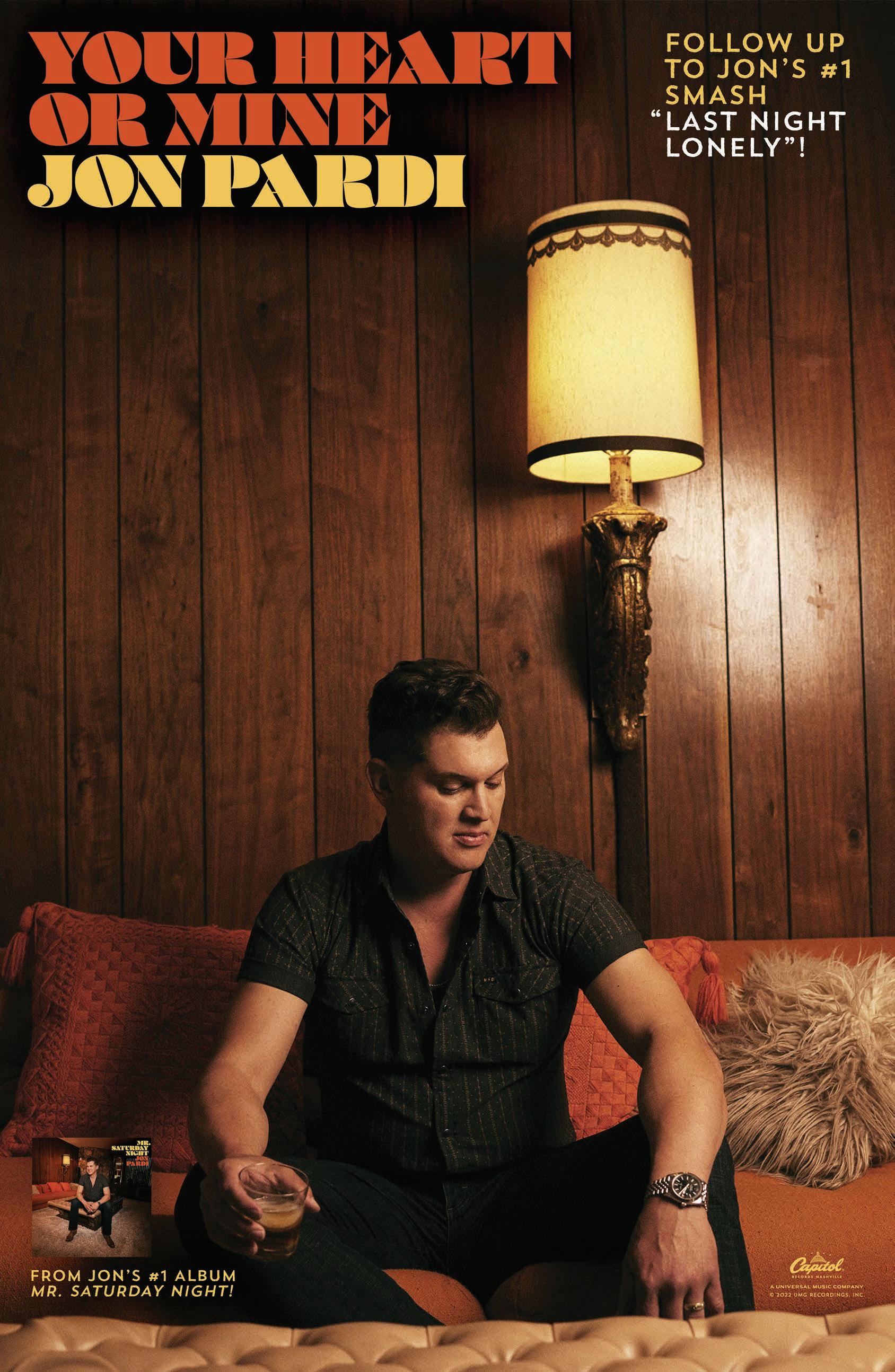




















































































































 David Friedman UMG/Nashville VP/Promotion
David Friedman UMG/Nashville VP/Promotion












 29Ali Matkosky
29Ali Matkosky












 Gerry House
Coyote Calhoun
Gerry House
Coyote Calhoun





















































































































































































































































